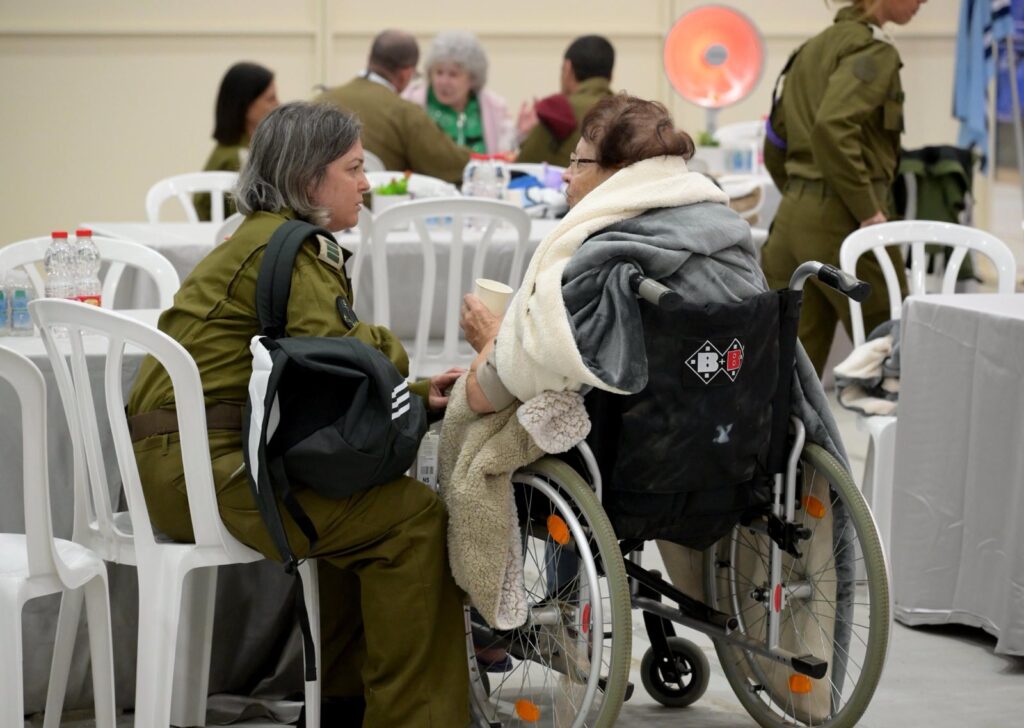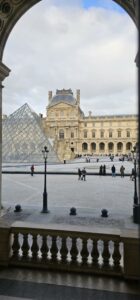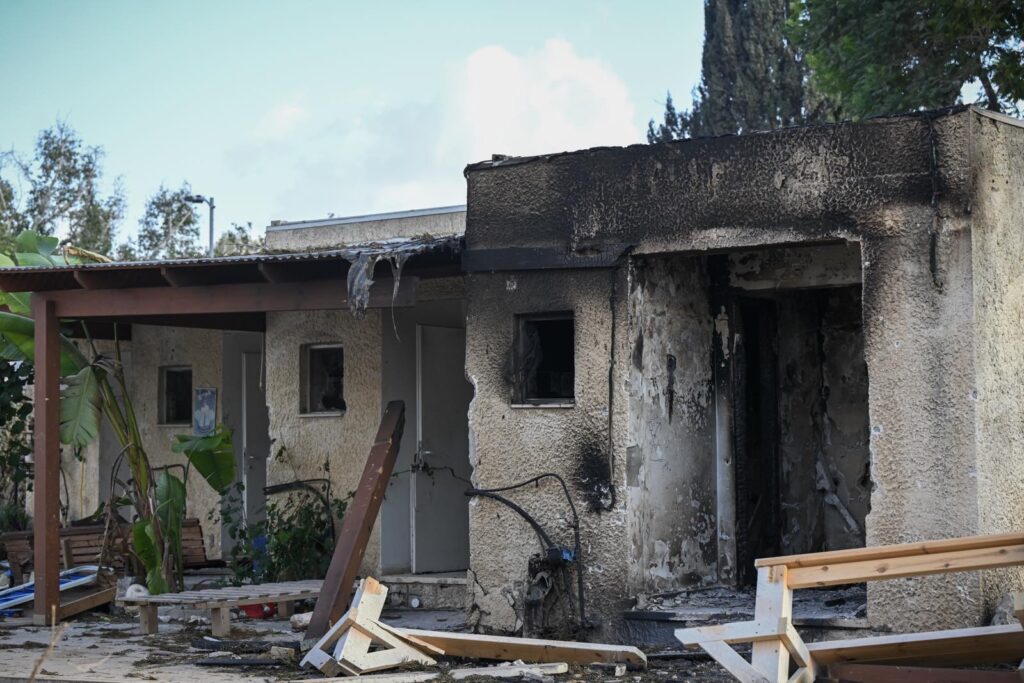
(photo credit: Israeli Government Press Office)
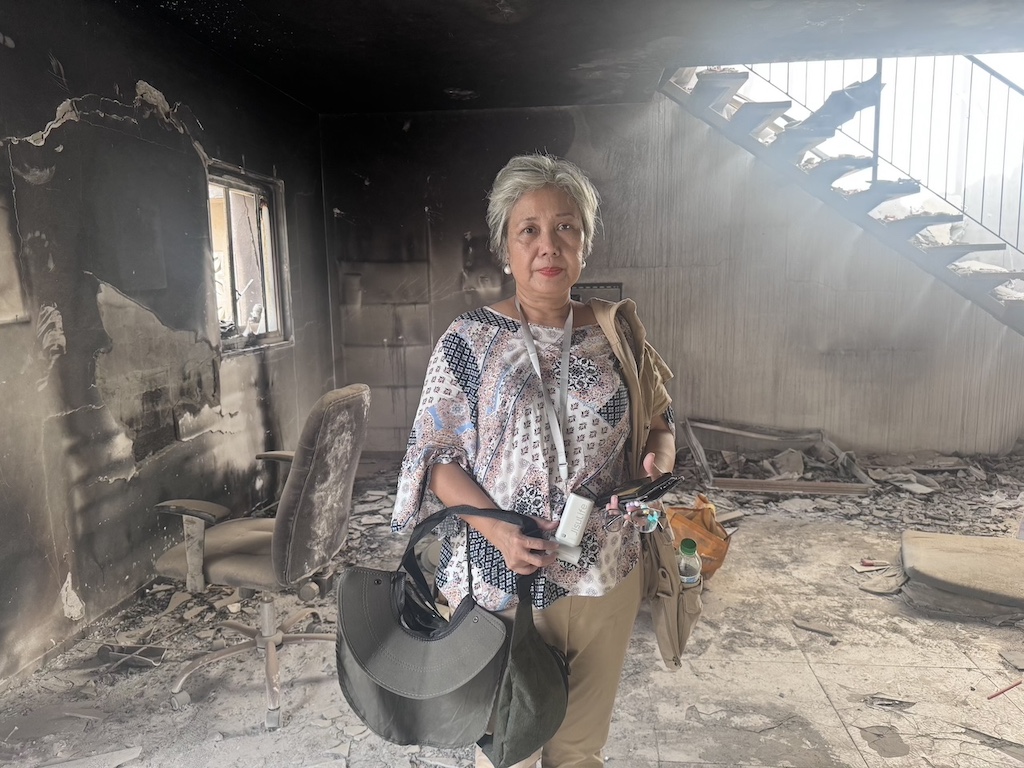
Against the backdrop of pain and rubble, a glimmer of hope.
Against the wall of bitterness, a flickering light.
Can a badly battered and wounded Kibbutz Be’eri in Israel rise to its feet again and regain the days of children playing and neighbors exchanging smiles?
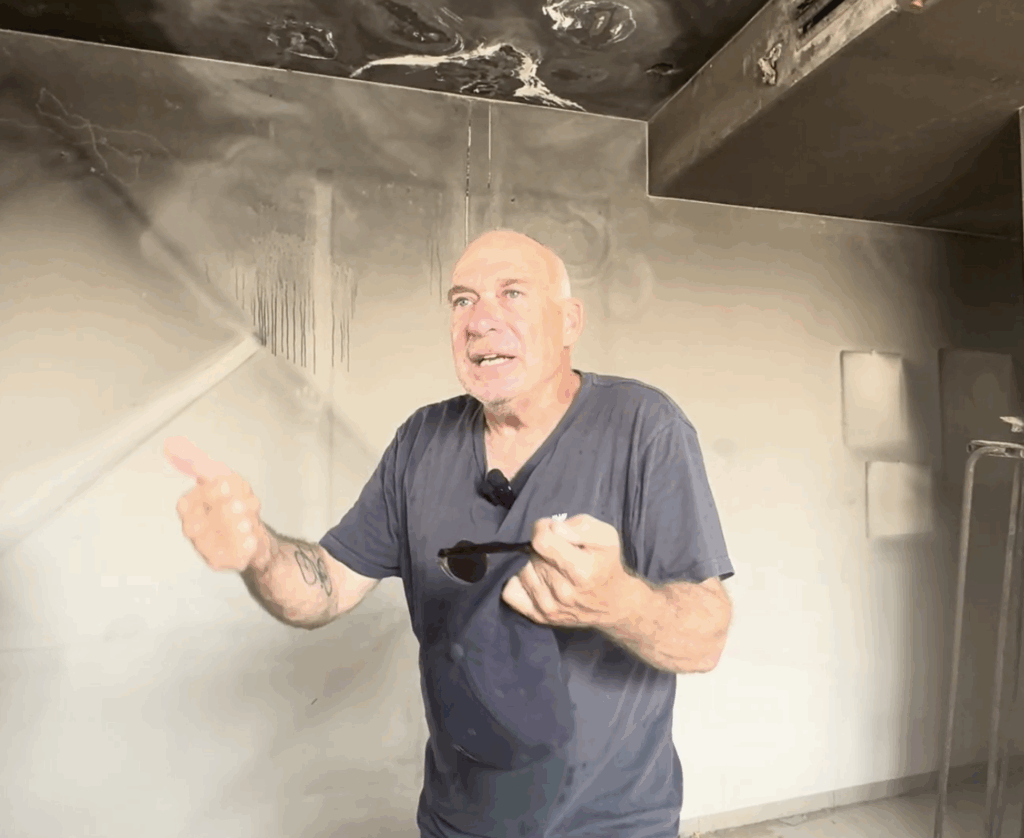
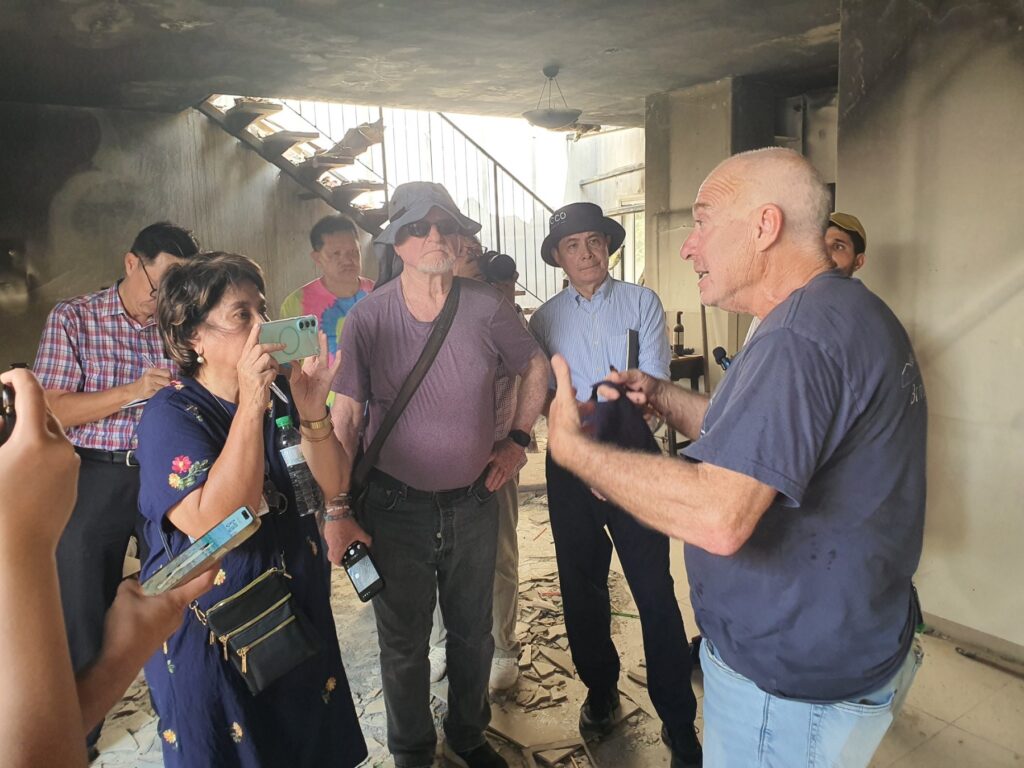
Thus is the hope of Australian Israeli Danny Majzner, a survivor of this once joyful community, full of life and camaraderie among its inhabitants.
He lost his eldest sister to the brutal and barbaric Hamas attack on October 7, 2023, just almost two years ago.
“She was murdered around lunch time to Hamas terrorists. Two bullets in her head and then she’s gone,” Mr. Majzner recalls.
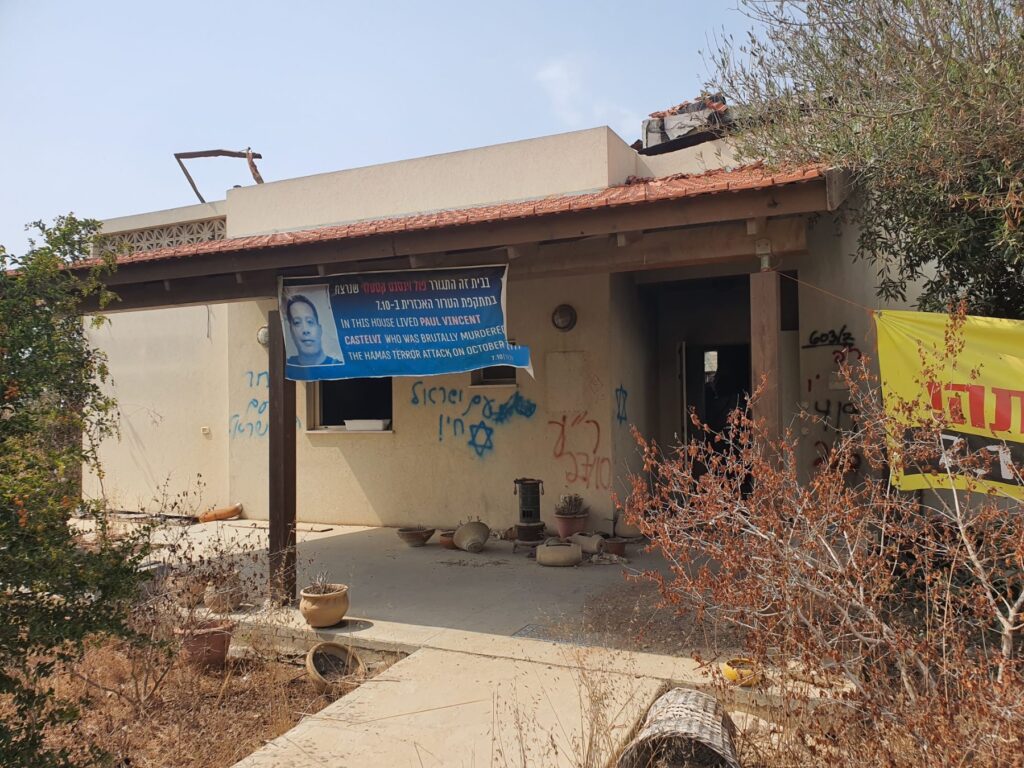
Aside from his sister, another victim of the terrorist group and among the 102 killed in this Kibbutz was a Filipino caretaker, Paul Vincent Castelvi, who came out of the house during the commotion at 8:00 or 9:00 in the morning, thinking it was the IDF which came to the community.
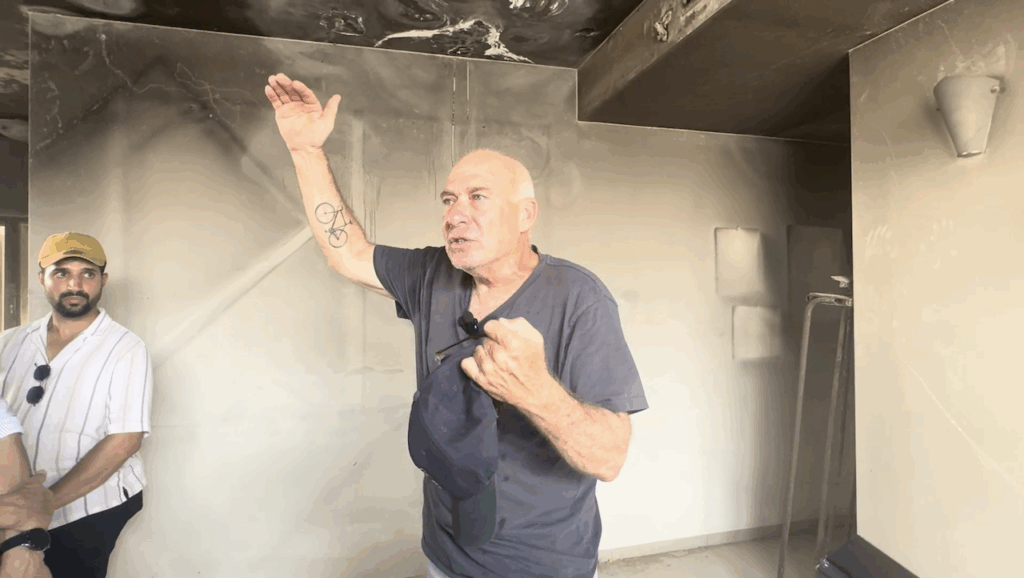
“I knew Paul very, very well, because he was friendly to Tali. Paul was definitely one of the most beautiful persons I have ever met on earth. When I talk about him, I shiver. I really want to cry when I talk about him. His wife was pregnant and was living at a distance when the attack happened. It was really heart-breaking to tell her what happened to Paul after the attack,” Mr. Majzner says.
“The guy he was working with, Tali, and wife Lilac were all murdered in the same place and their house was burned. We don’t know whether they were still alive when the house was burned, or afterwards. But it was a very usual technique for the Hamas to burn houses. When the people are inside in the safety rooms, they burn the house, they hope to smoke out the people, so they come out, jump out of the windows and they will murder them,” he adds.
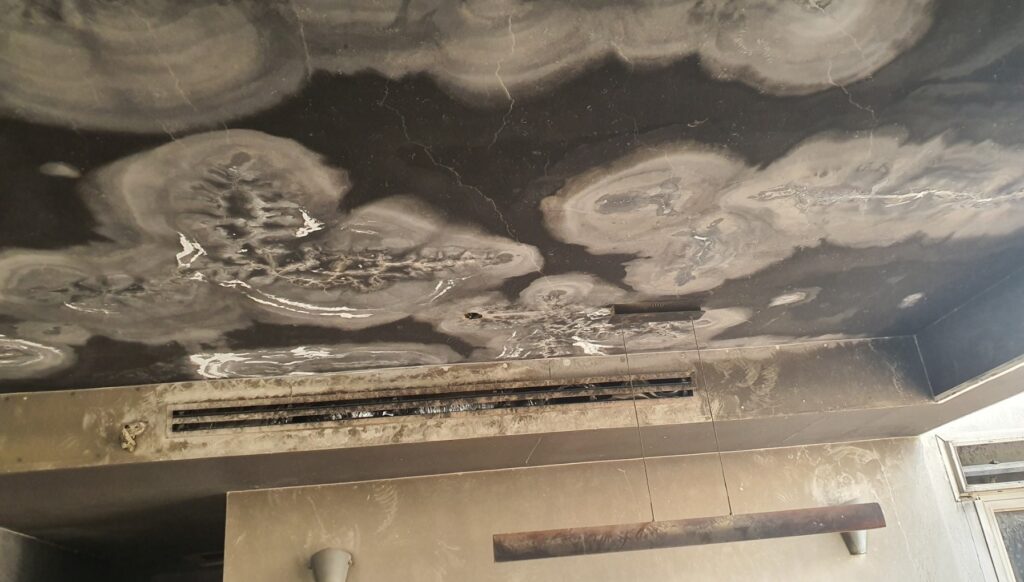
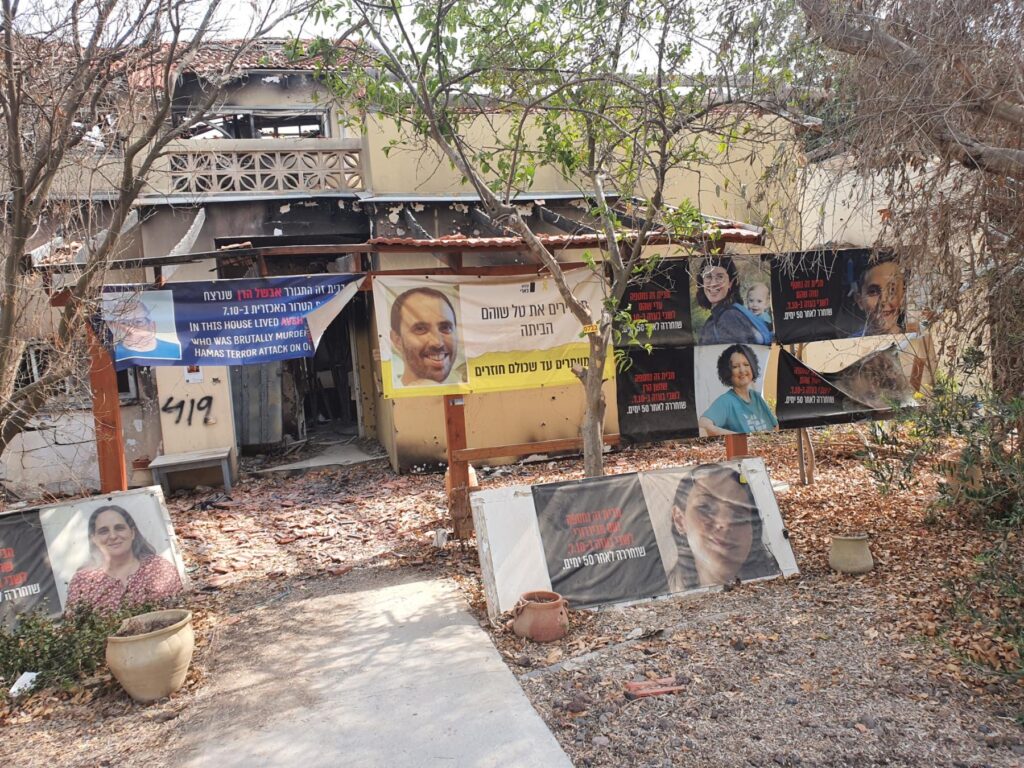
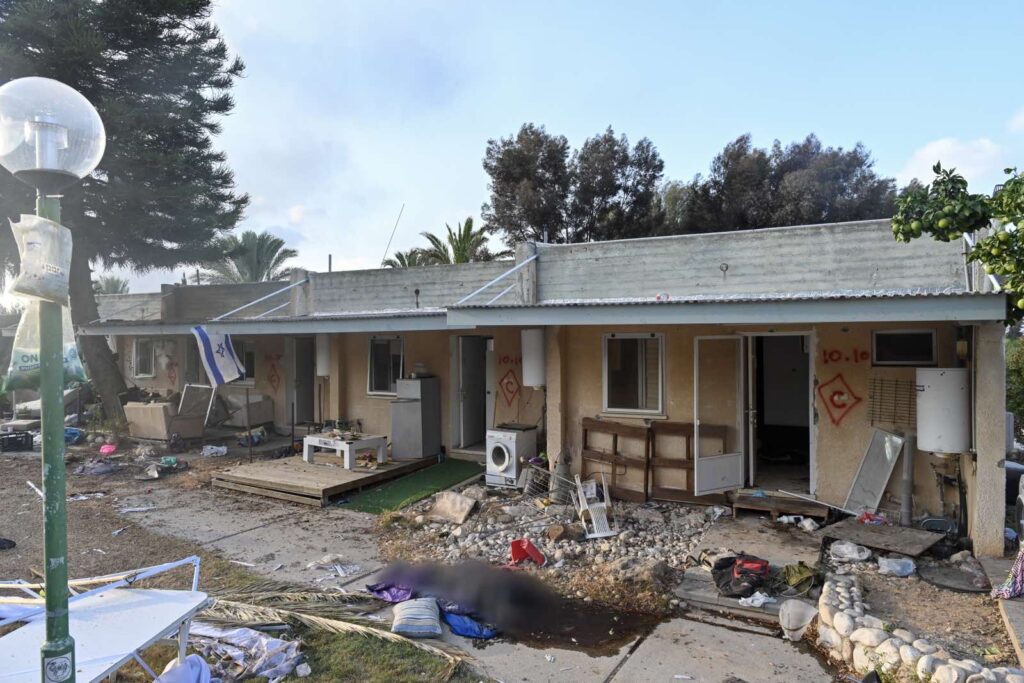
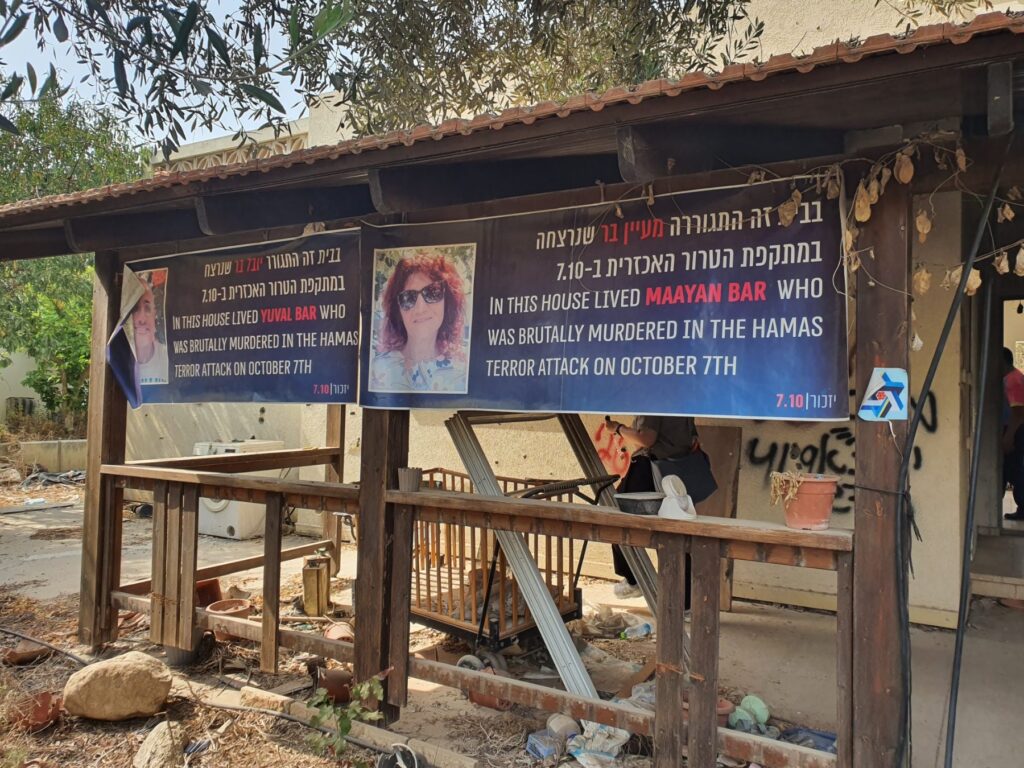
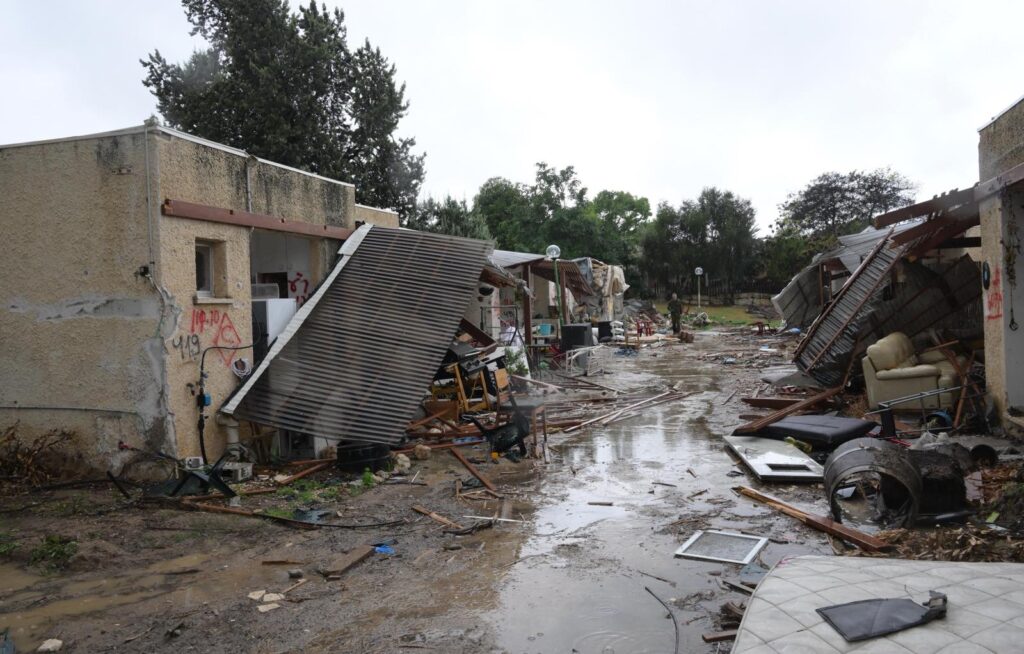
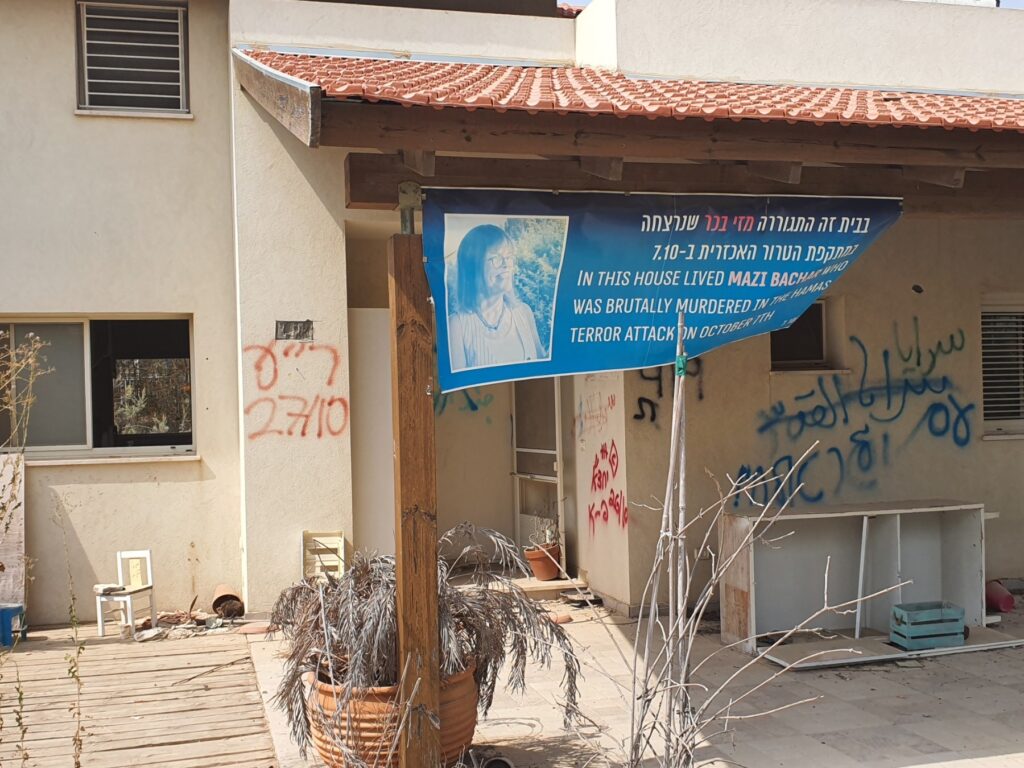
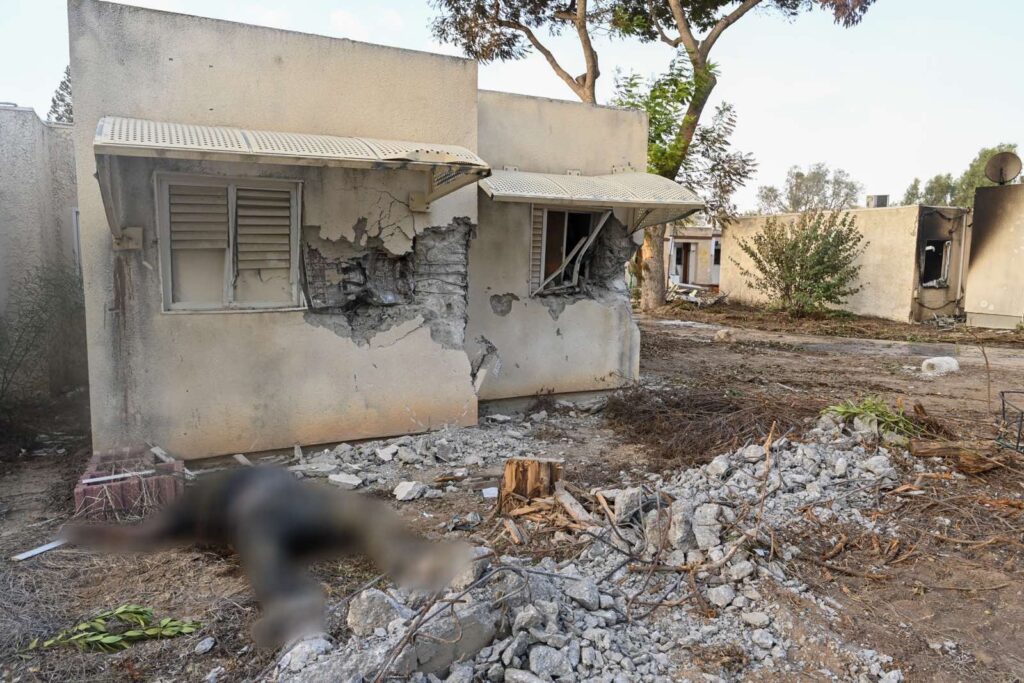
Mr. Majzner goes on to say one family, composed of five members, were killed. Other families lost four, three, two or one member of their household.
Several of the former residents of this Kibbutz were kidnapped and five of the slain have their remains still in the Gaza Strip.
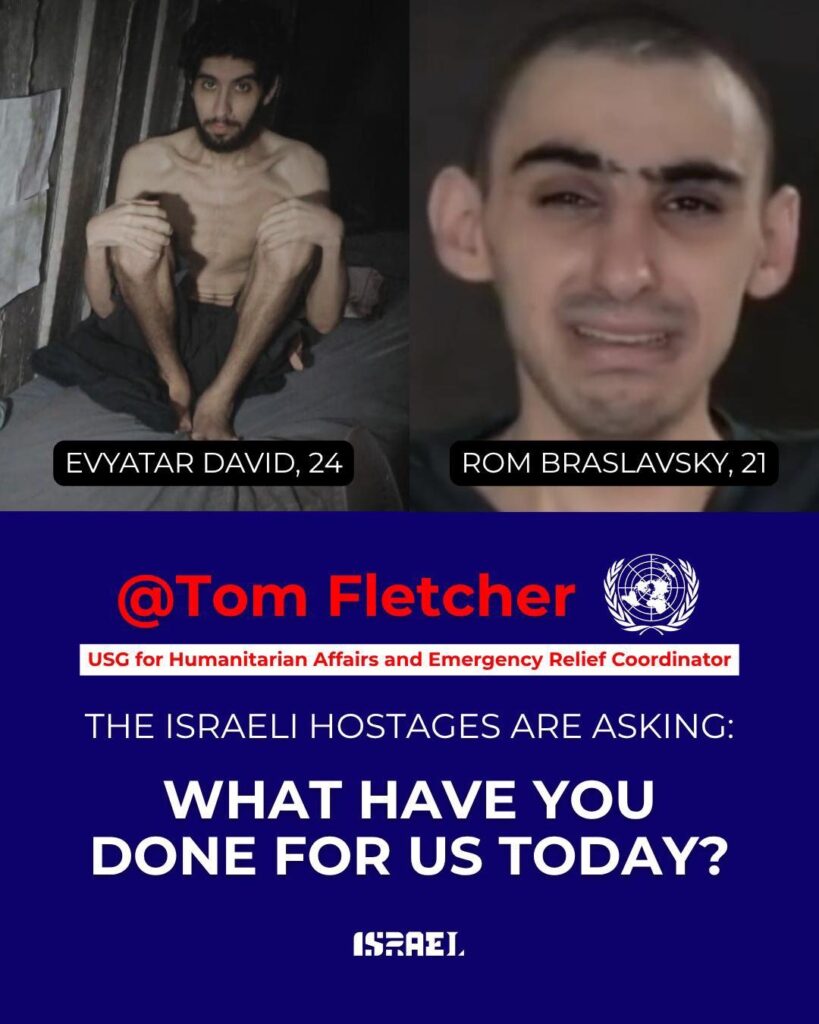
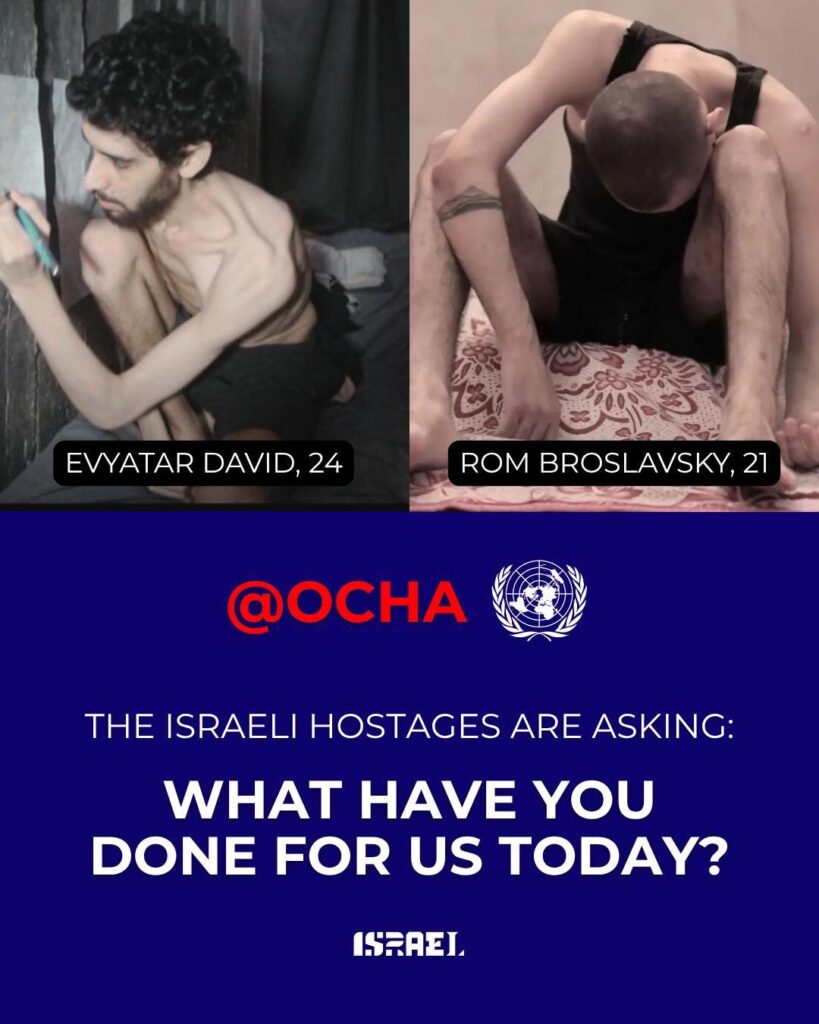
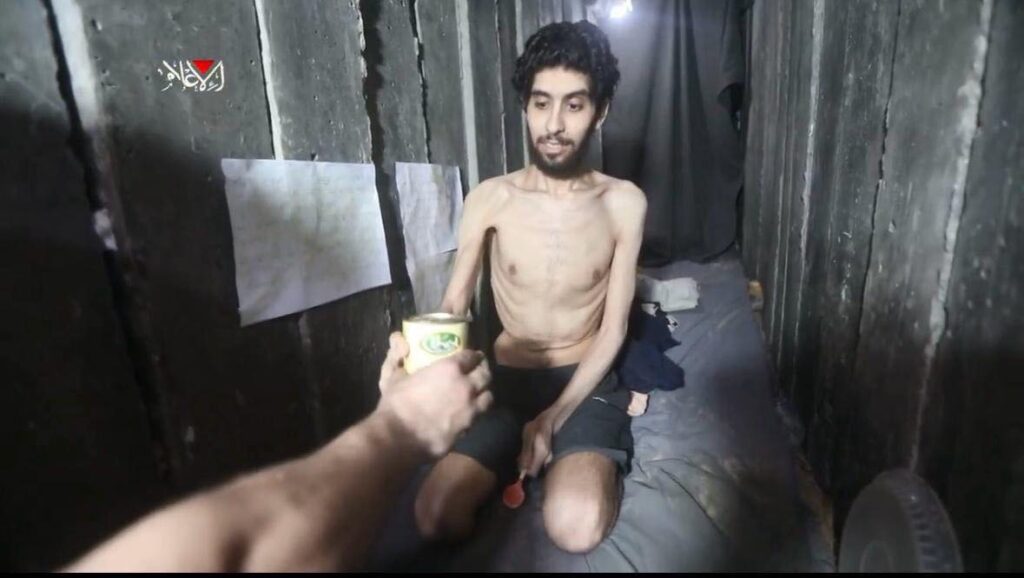
“When you hear the cliché that you can’t go on with your life unless all the kidnapped are back, that’s what I am talking about. Our lives are still there. You know, I can’t go to sleep well at night, they’re down there in the tunnels, they’ve shed around 30 to 40 kilos of their body weight, that’s the reality we have to live with each day,” Mr. Majzner notes, his voice steady, but his emotions raw.
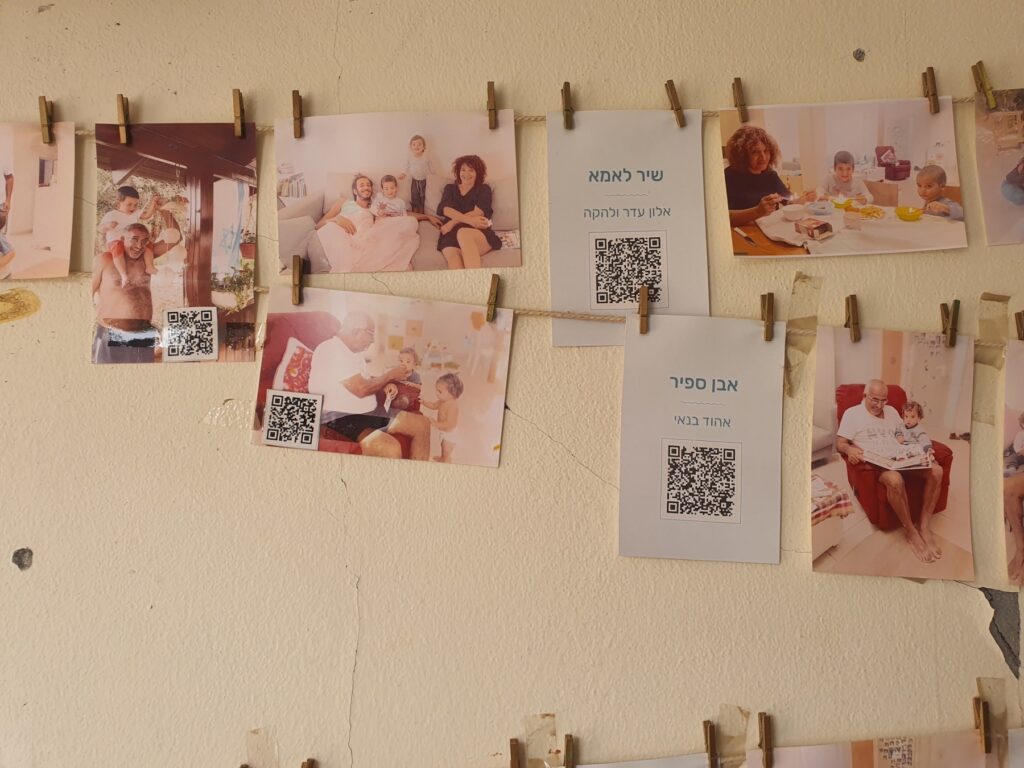
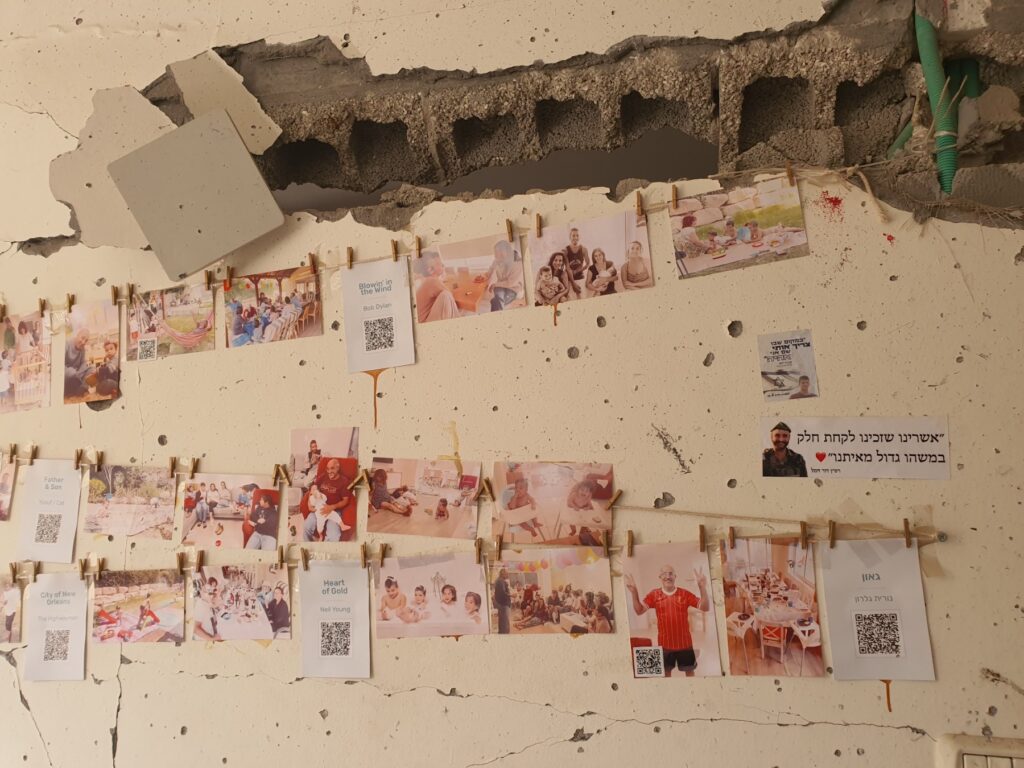
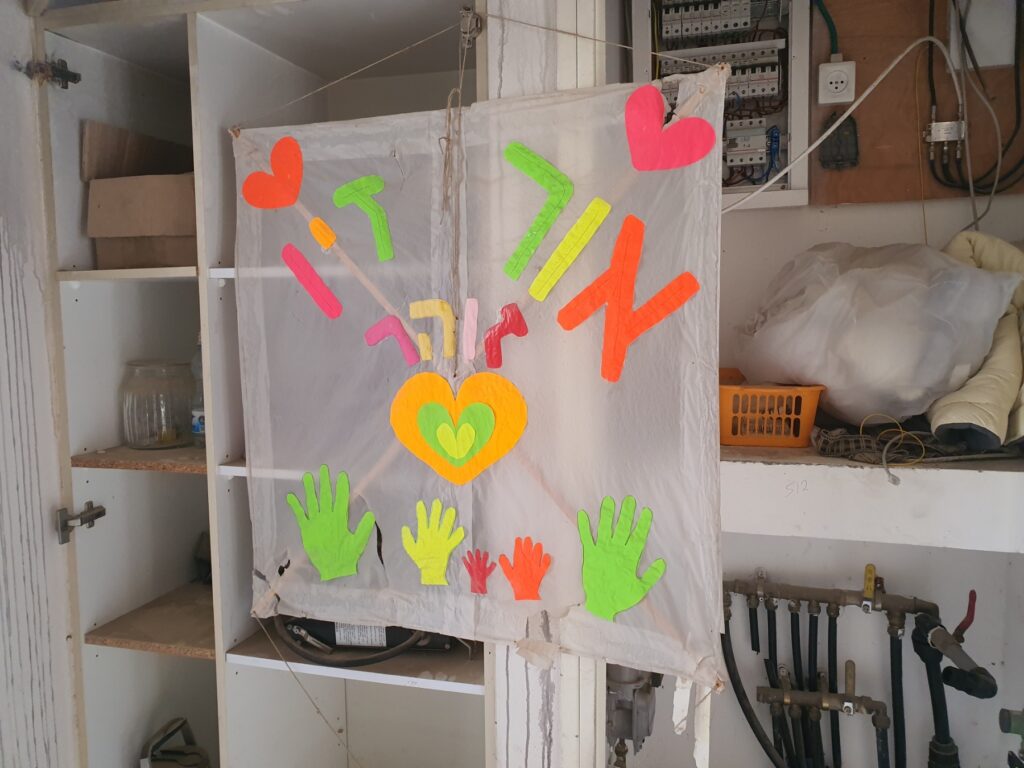
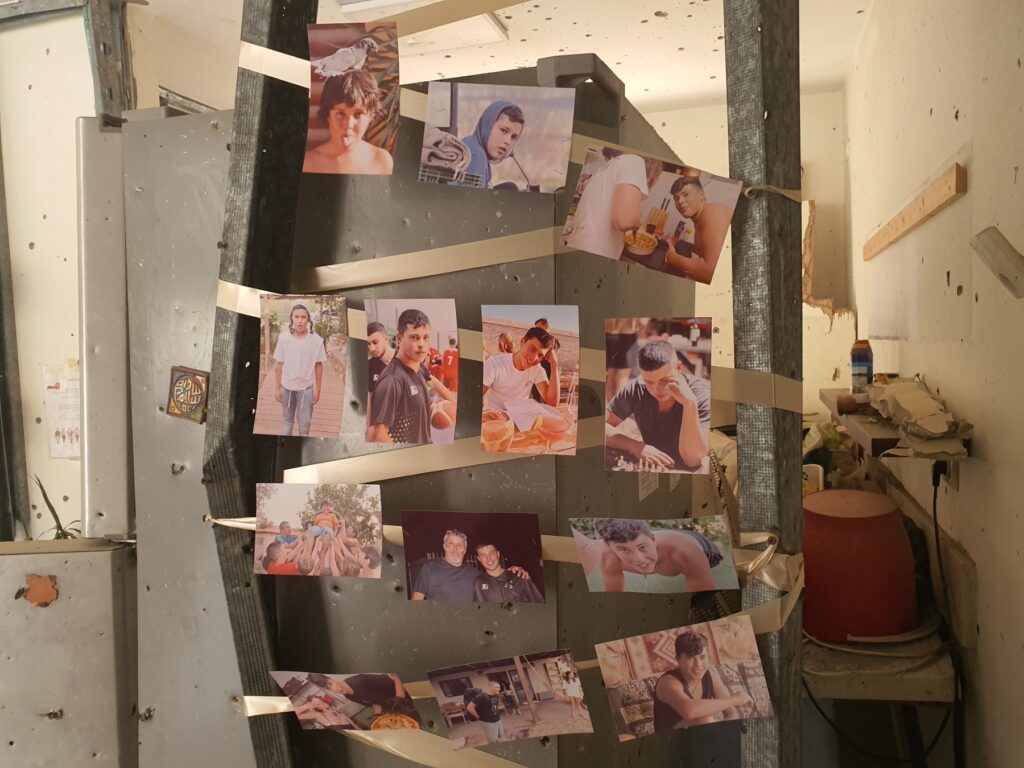
He notes that at one point during the attack, there were around 350 Hamas terrorists in Kibbutz Be’eri, which used to have around 1,200 residents. To this day, 140 houses are totally lost and at least one had to be torn down on the day Filipino journalists visited the area.
Despite the continued destruction of this Kibbutz, Mr. Majzner is hopeful the area will spring back to life.
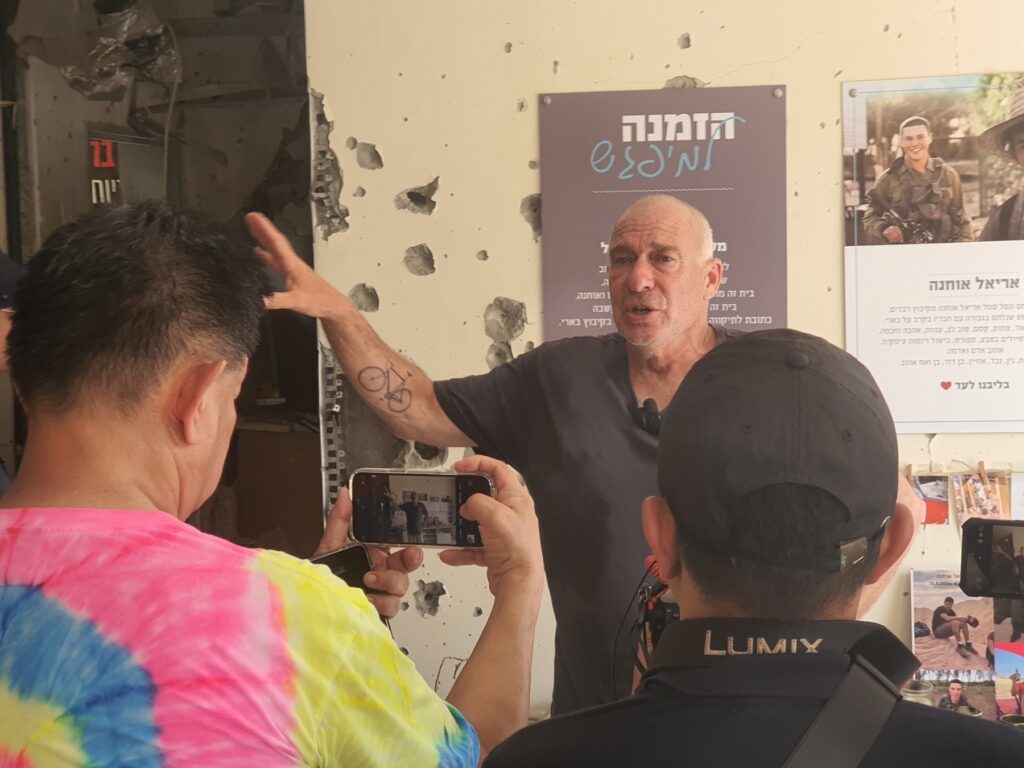
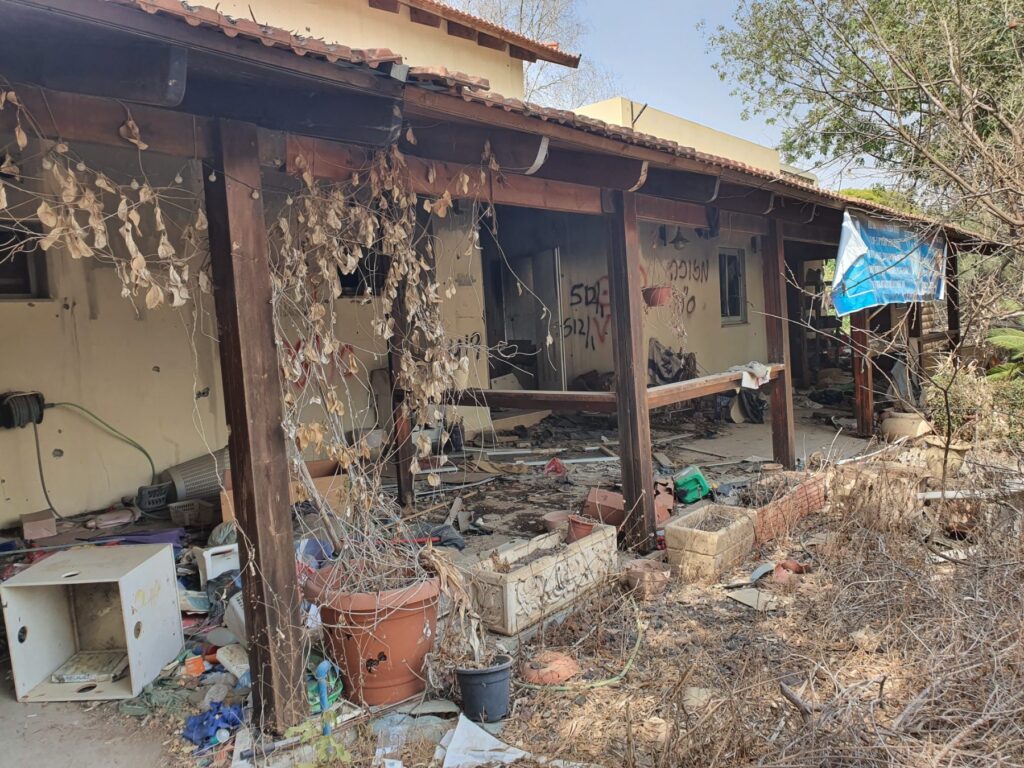
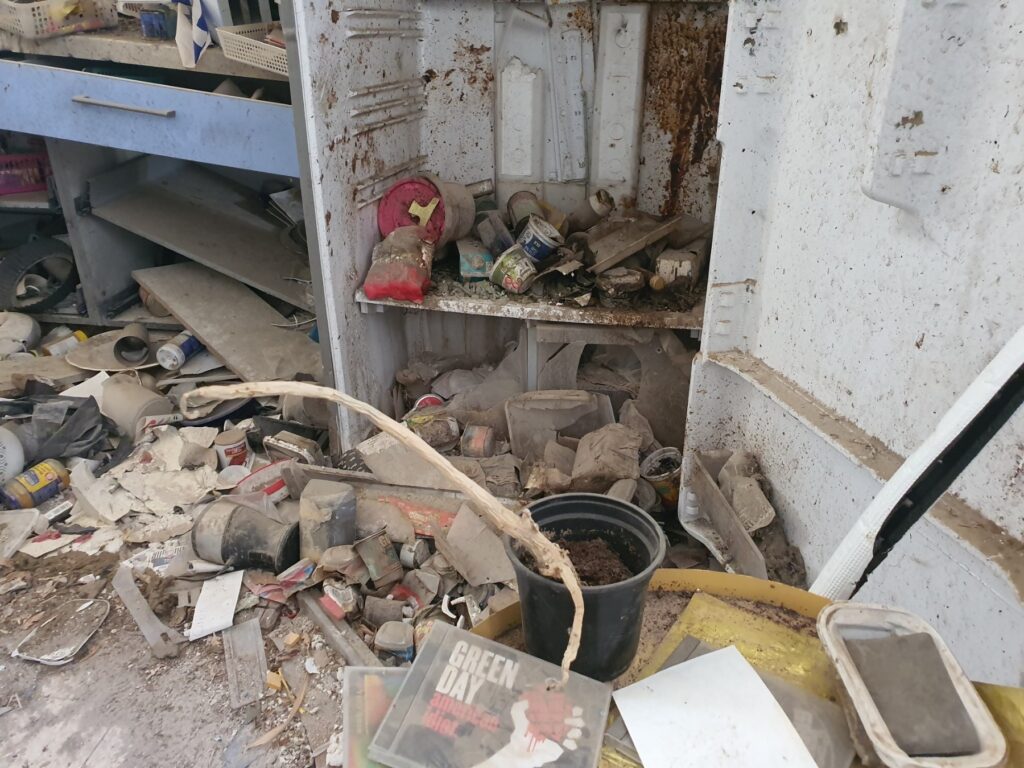
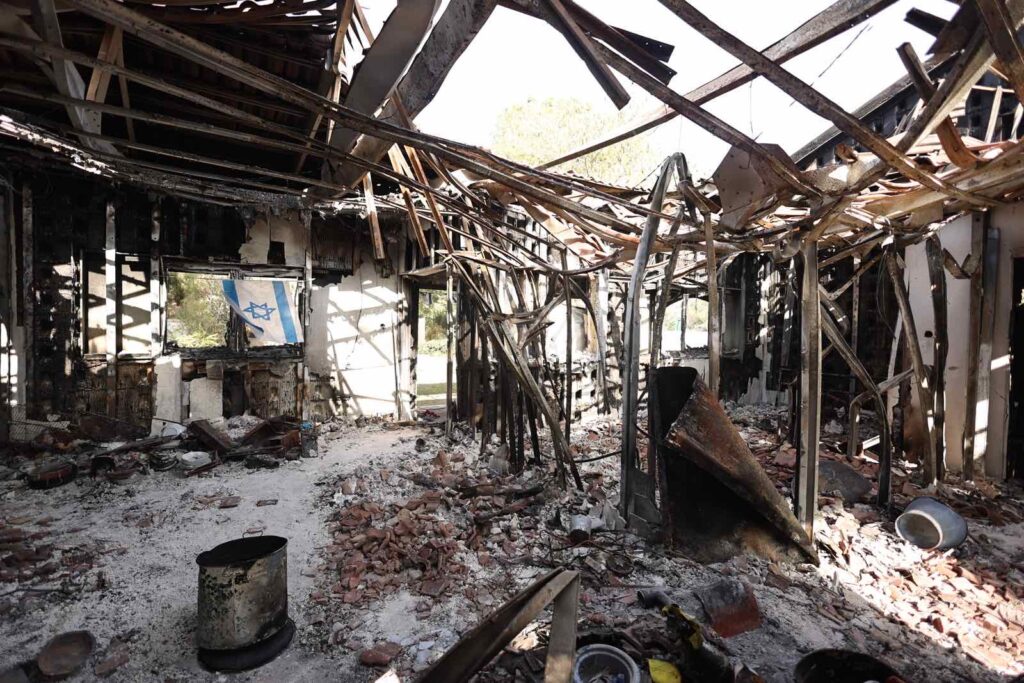
“I believe in rebirth. On the other side of the Kibbutz, we are building 120 new houses/ new units and we hope people will come back and live there,” he says with much optimism in his voice.
He says he will go to Australia and he hopes to meet with Prime Minister Anthony Albanese.
“I want him to acknowledge that there was an Australian citizen and the government didn’t do anything about it. There was one kitchen aid worker, an Australian Thai national, who was unfortunately killed by an Israeli air force attack. She was all over the first page of Australian newspapers. And my sister’s incident on the 7th was on page five, at the bottom. That upsets me. You’re talking about a terrorist attack against a very bad mistake by the Air Force. I just want him to acknowledge that it happened and that’s about it.
“When President Trump flew hostages with Israeli and American citizenship, he made sure that all of them are out. All the Americans holding passports, all of them are out from Gaza, none of them are left there. Because Trump made sure about that,” he explains, a semblance of envy evident in his tone.
“The only Australian citizen killed on October 7 was my sister. Yes, the ambassador came here during her funeral, but that was about it. The foreign minister was here in Israel, never bothered to call us, to ring us, to come down to visit, to say condolences. But nothing. It’s really, really… I don’t want to say antisemitic government. But they’re not really pro-Israel, to say the least. And it really, really makes me upset,” Mr. Majzer adds.
He then shifts to what some countries are intending to establish in the not-so-distant future.
“I’m sure you heard that Australia and four other countries are declaring a Palestinian state. That for me as an Australian citizen is a knife inside the tummy, really. Because if the United States is Israel’s best ally in the world, I thought Australia is the second best ally,” Mr. Majzner explains.
He, however, laments that “politics got in the way,” and that this Labor government of Australia has something against Israel.
“By you, Mr. Albanese, going and declaring a Palestinian State, what are you doing? You’re taking Yahya Sinwar, who is a mega terrorist, and you’re taking him to the level of a god, on the pedestal! You’re giving the Hamas a prize by saying ‘okay.’
“What type of a state will it be? Who’s gonna rule it? Is it gonna have its own army? Currency? Politicians? Is Hamas gonna still be in the Gaza Strip? What are you talking about a Palestinian State? You want to do a Palestinian State? Get all the hostages out, disarm the Hamas. Now we can talk about a Palestinian State. And I will, maybe, my personal views, go to saying, yeah, there could be coexistence. At the moment, no coexistence.
“Macron declared that he is for a Palestinian State, while other countries, Italy and Brazil, and now Germany, which is one of our biggest allies here. Biggest allies. Without them, I don’t know where we would be! Now, Australia,” Mr. Majzner says, aghast.
He intends to go around Australia’s major cities when he visits his country soon.
“I’m gonna do a lot of talking, just to hopefully pass the message: Guys it happened. And in order for it not to happen again, what does the world need to do? What does the UN need to do? Not to ignore it. We were not in wrong here. We were attacked viciously on the 7th. We’re just trying to defend ourselves,” Mr. Majzner notes, before leading the journalists to the ruins of Kibbutz Be’eri.

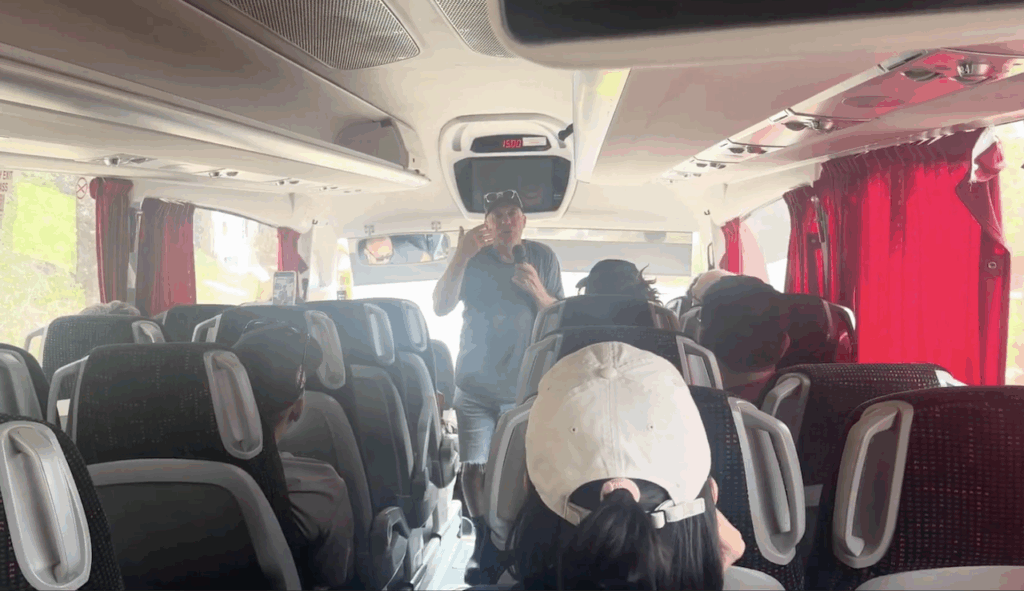

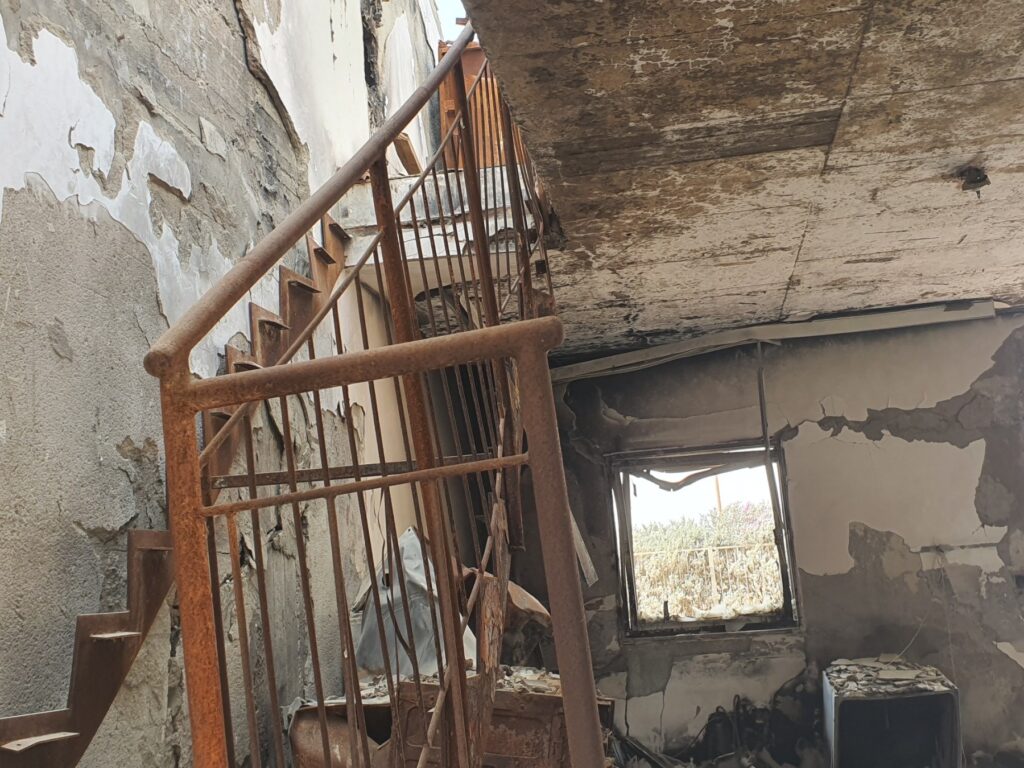
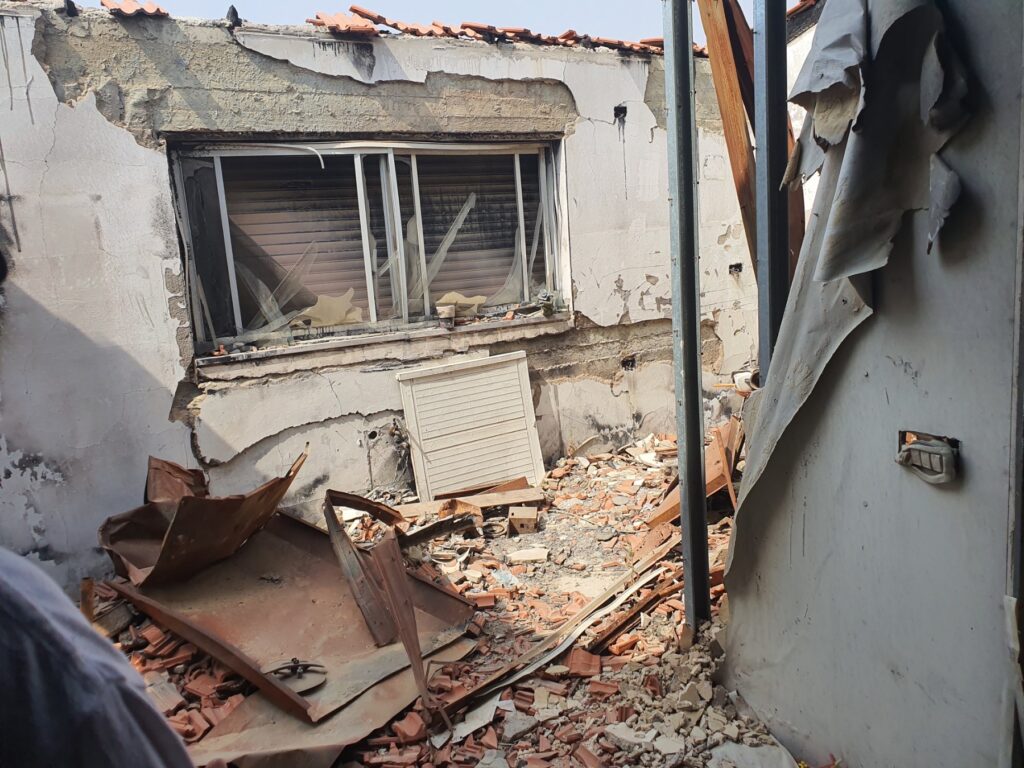
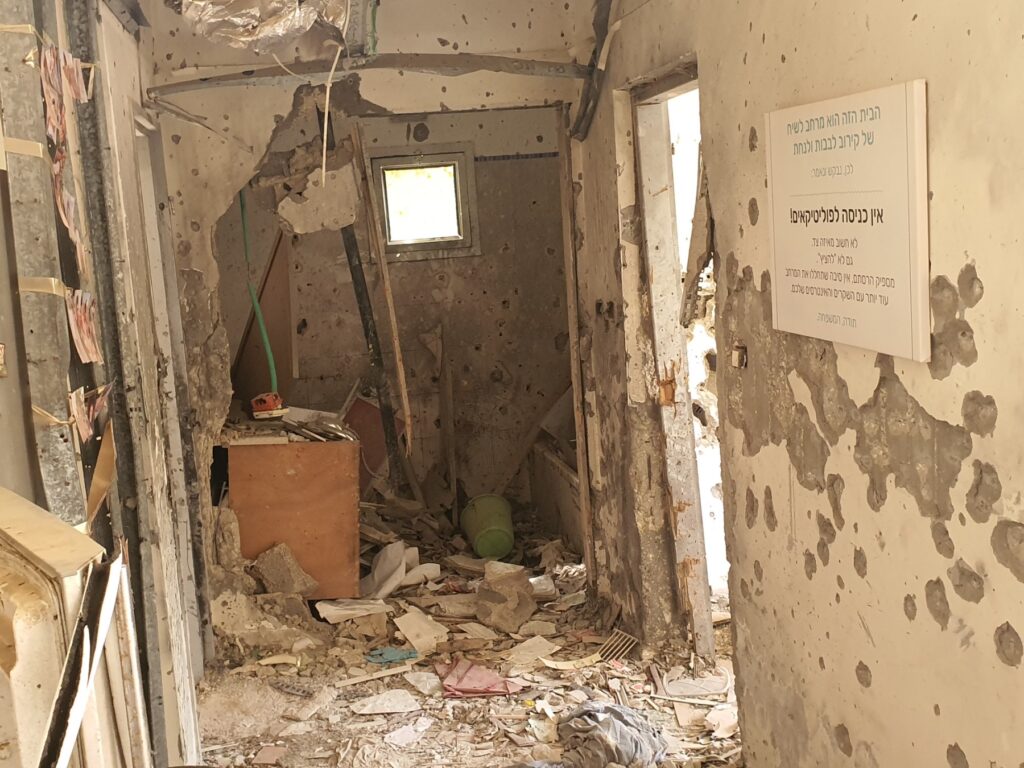
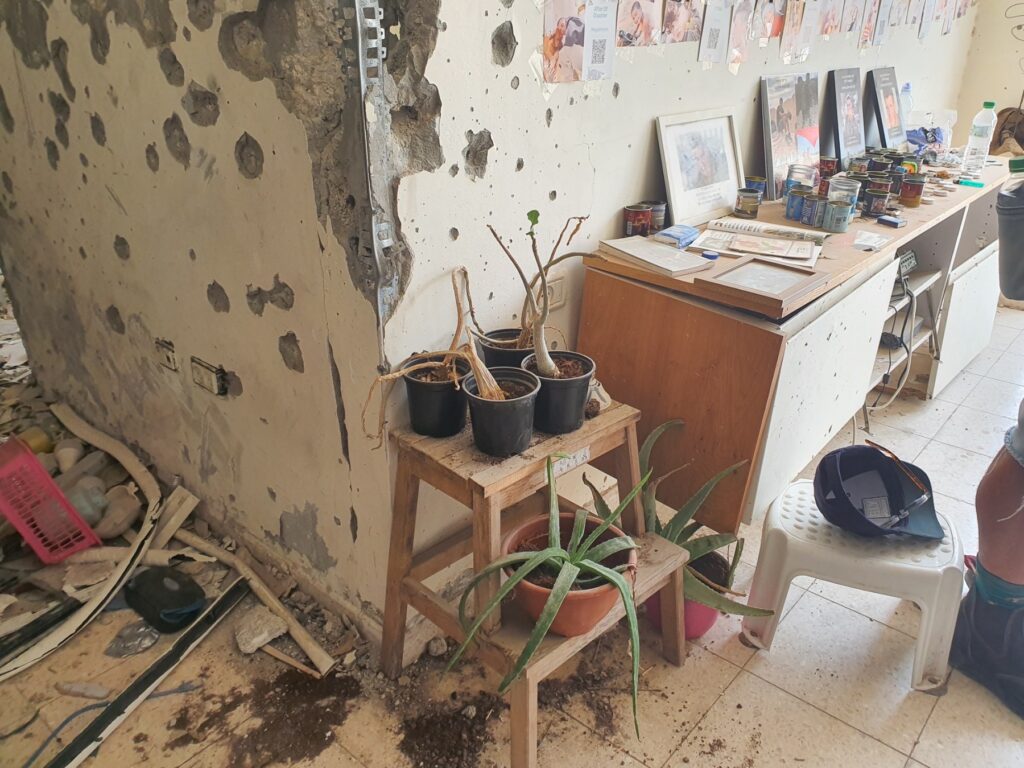
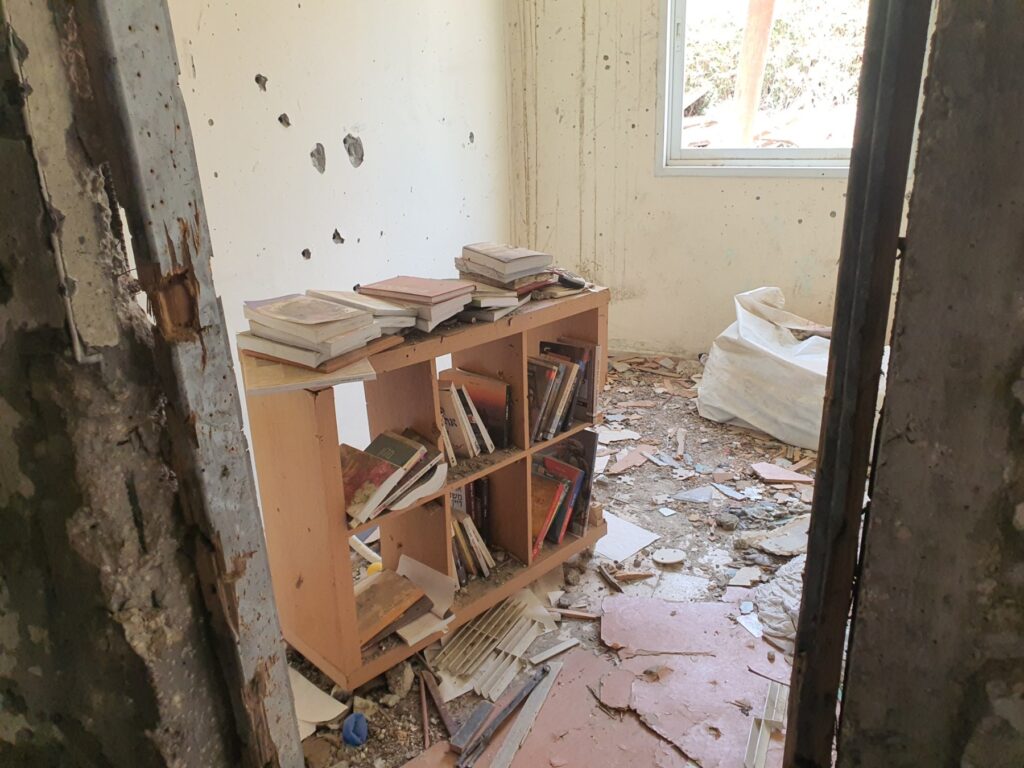
After the briefing he made on the bus that took the journalists to the Kibbutz, Mr. Majzner took them to the devastated area. Just a few steps from where the bus stopped, the horrifying sight of the burnt and destroyed houses was beheld by the journalists, who then went in and around the former homes of the victimized families.
While in the area, Mr. Majzner answered the journalists’ questions, but he also voiced his personal questions, which he says he shares with other survivors of the attack. He said it’s a question they ask “500 times a day.”
“Where was the army? Seriously, we live here, believing that the police will protect us. We had this unspoken contract with the Israeli government in 1946, when the Kibbutz started here.
“David Ben Gurion, the first Israeli prime minister, said to the youngsters, 18, 19 years old, ‘Go to the Negev Desert and make settlements there.’ That’s where our ancestors, who started the Kibbutz, came here and they did it. We worked the land, the agriculture and everything.
“On the 7th of October, we were still here, holding the place. We took our side of the bargain, between the State and us. But the State of Israel betrayed us. It’s not a nice and easy word to say, but we ask, where was the army?
“Seven hours it took you guys to get here? Where were the helicopters to shoot down all the terrorists that’s coming out of the Gaza Strip? Where was the army? Where’s the elite unit? You practiced for that for so long. That’s what you practiced for, that’s why you were in IDF for three years. Where were you? Unfortunately, there’s no answer,” Mr. Majzner says of the regretful situation.
He can only surmise that there was a series of blunders made.
“Someone at one stage, if it’s a ranked officer, or officers, failed on their duties. They did not take it seriously. All we heard from our beloved prime minister was that he was not woken up at night and so he did not know what was happening. But something went wrong, and then another buildup is wrong and another thing is wrong. It’s one after another, chain reaction of wrong stuff that happened. Ask me how come? I’ve got no idea. One of the strongest armies in the world, definitely in the Middle East. You saw what we did in Iran, in Lebanon, in Syria, we can’t do it here. No answers,” Mr. Majzner again laments.
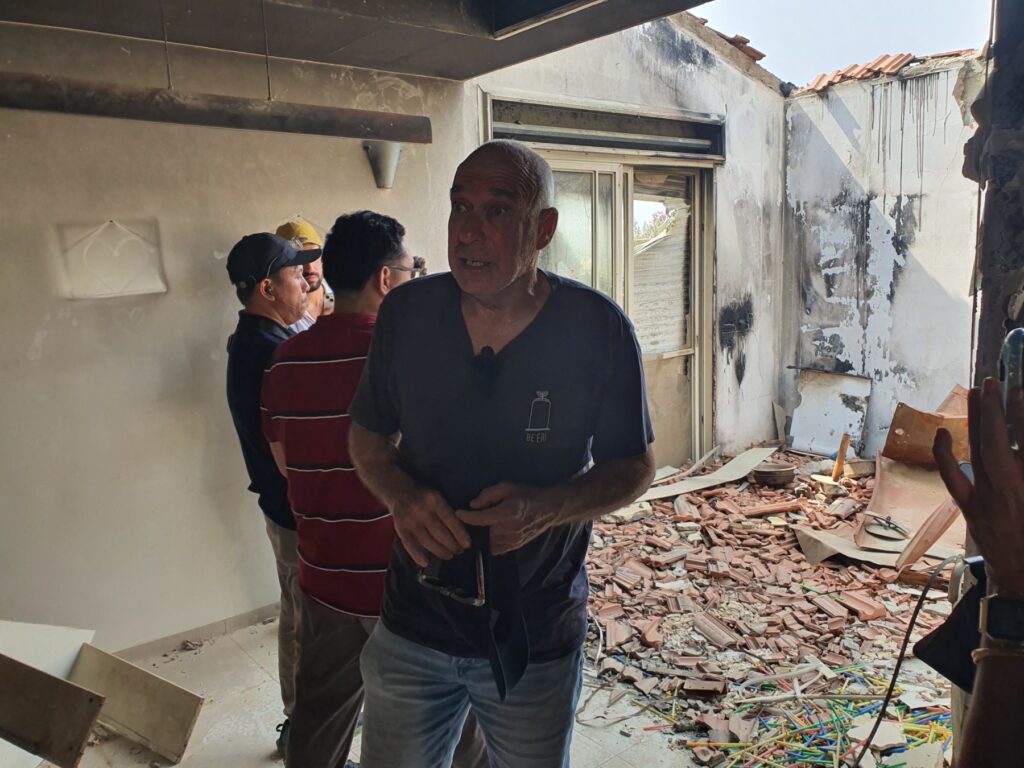
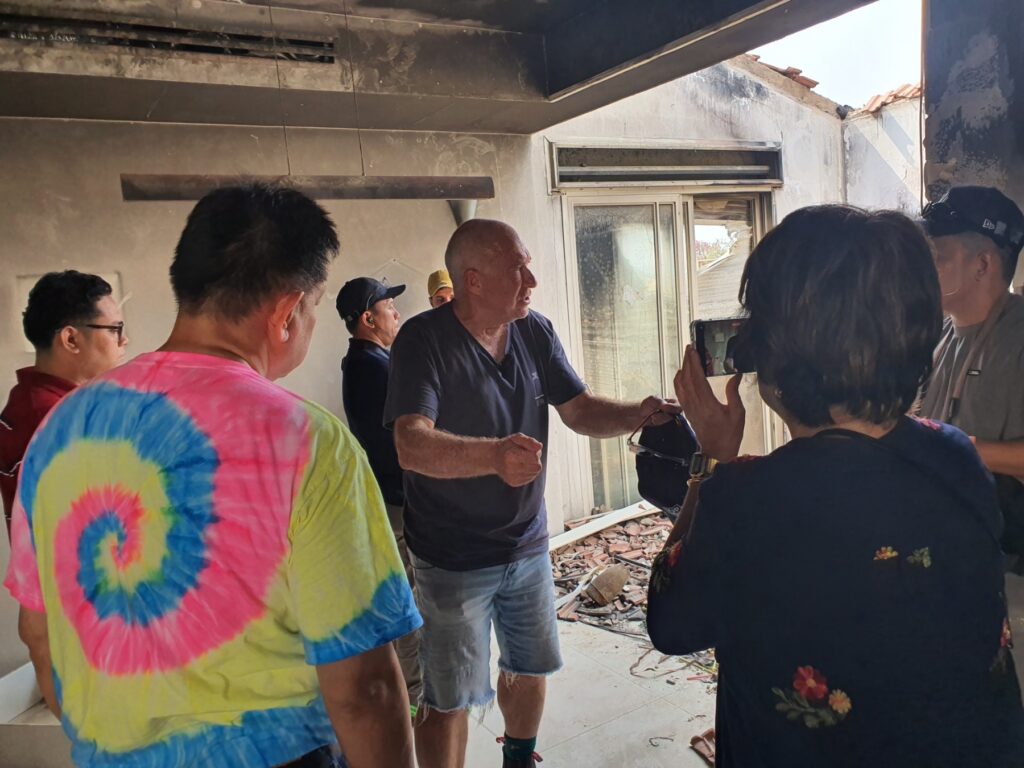
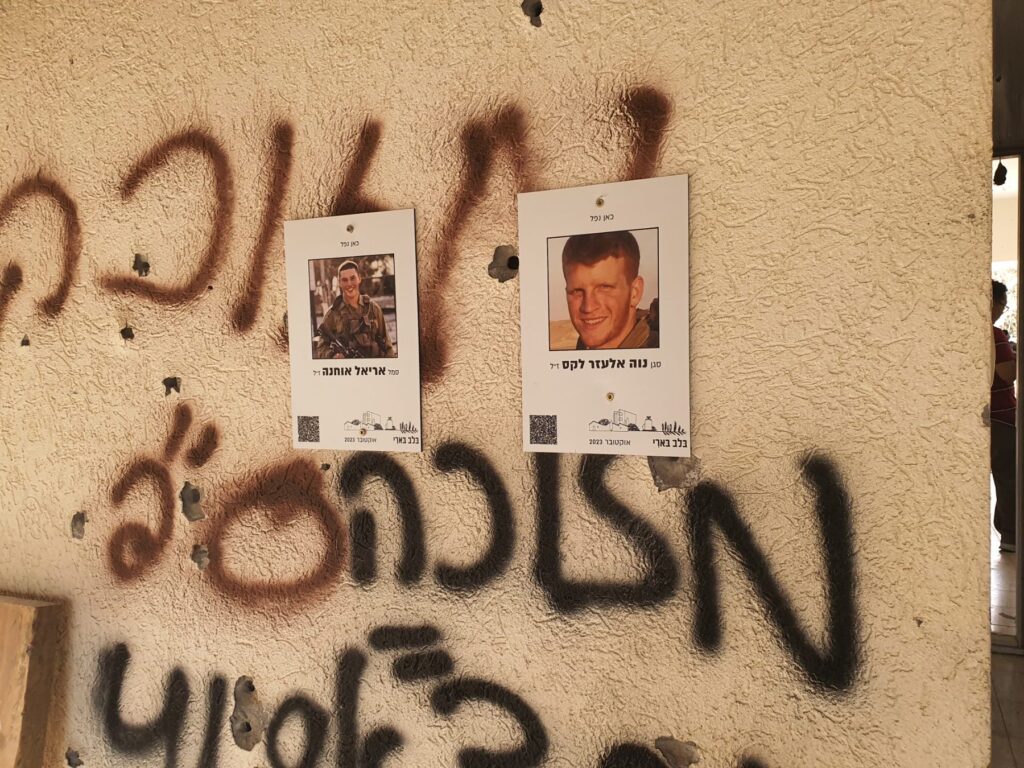
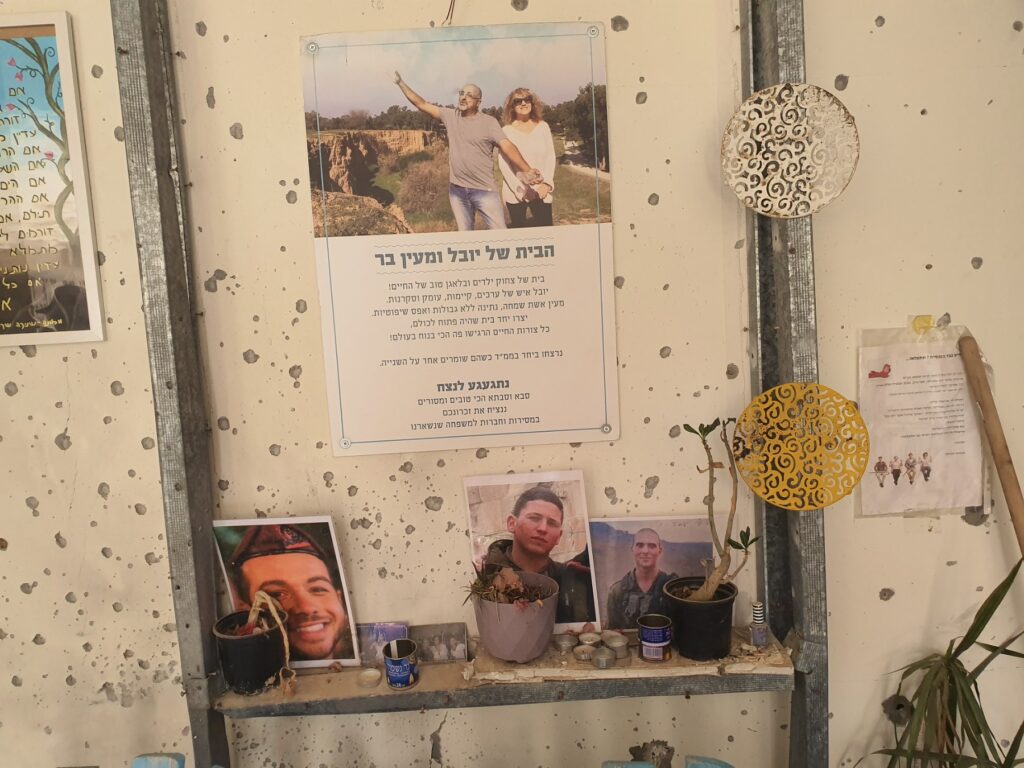
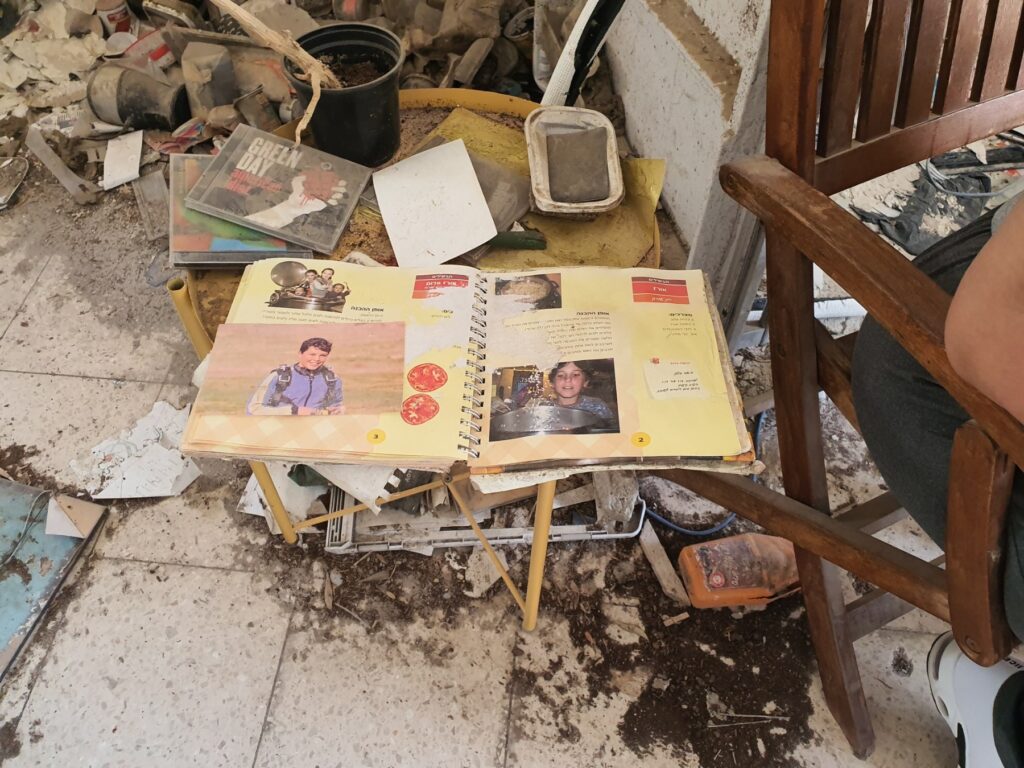
He goes on to say residents of his Kibbutz are asking for a deeper probe.
“We want a proper inquiry about what happened on the 7th, but the government, maybe because they are afraid of the results, I don’t know why they don’t want to make a proper inquiry squad to investigate what happened here, unfortunately.
“Only a number of officers that did an inquiry about this Kibbutz and another Kibbutz, but those results have no teeth, no meat. Nothing. And we cannot do anything about it.
“What we want is really to know was what happened, why it happened and to do something that it won’t happen for the near generation coming there. Because who’s to say that the next seventh of October is not just around the corner? I don’t know. I don’t know if my daughter and my granddaughter would want to come back and live here back again, as long as the Hamas is still in power there,” he asks.
In the middle of the interview, the journalists heard explosions which sounded like they were coming from nearby areas.
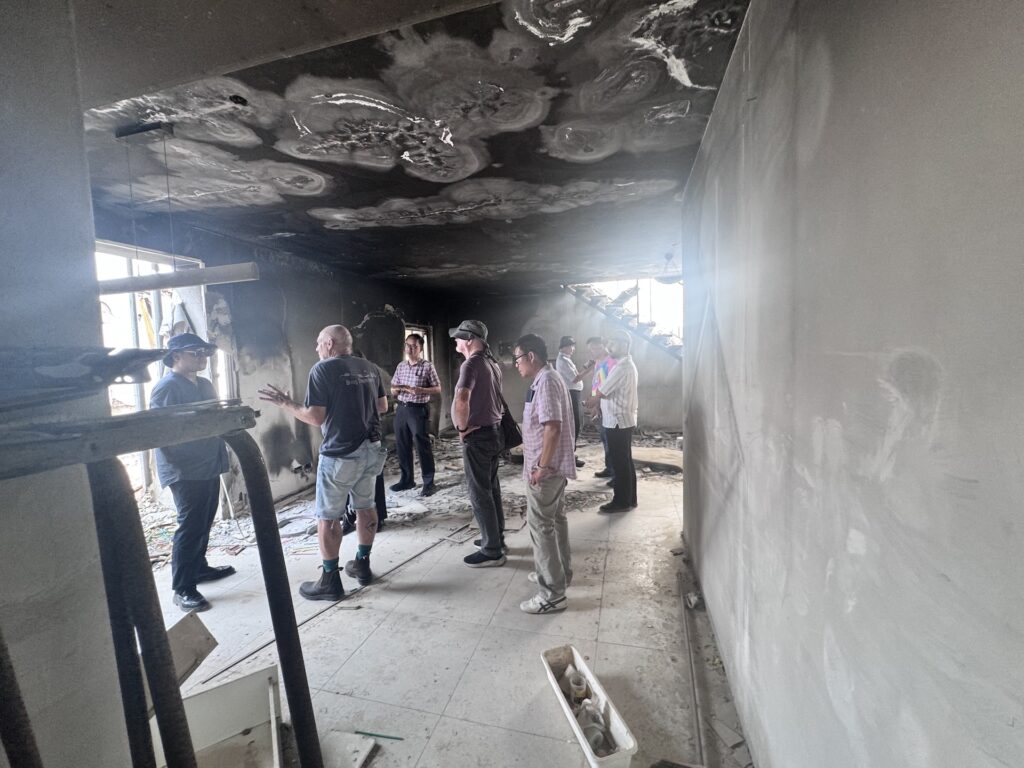
Mr. Majzner, amid the serious setting, manages to kid the surprised journalists. “Don’t worry, it’s ours. If there is an attack from the Gaza Strip, don’t worry, we have plenty of time to defend ourselves in 10, 15 seconds, ok? Plenty of time. You know what you can do in 15 seconds!” he says, eliciting laughter from his visitors, assuring them they will be contained in a safety area, in case things turn south.
After going around other areas in the Kibbutz, Mr. Majzner continued to answer some more questions and then bid the journalists adieu.
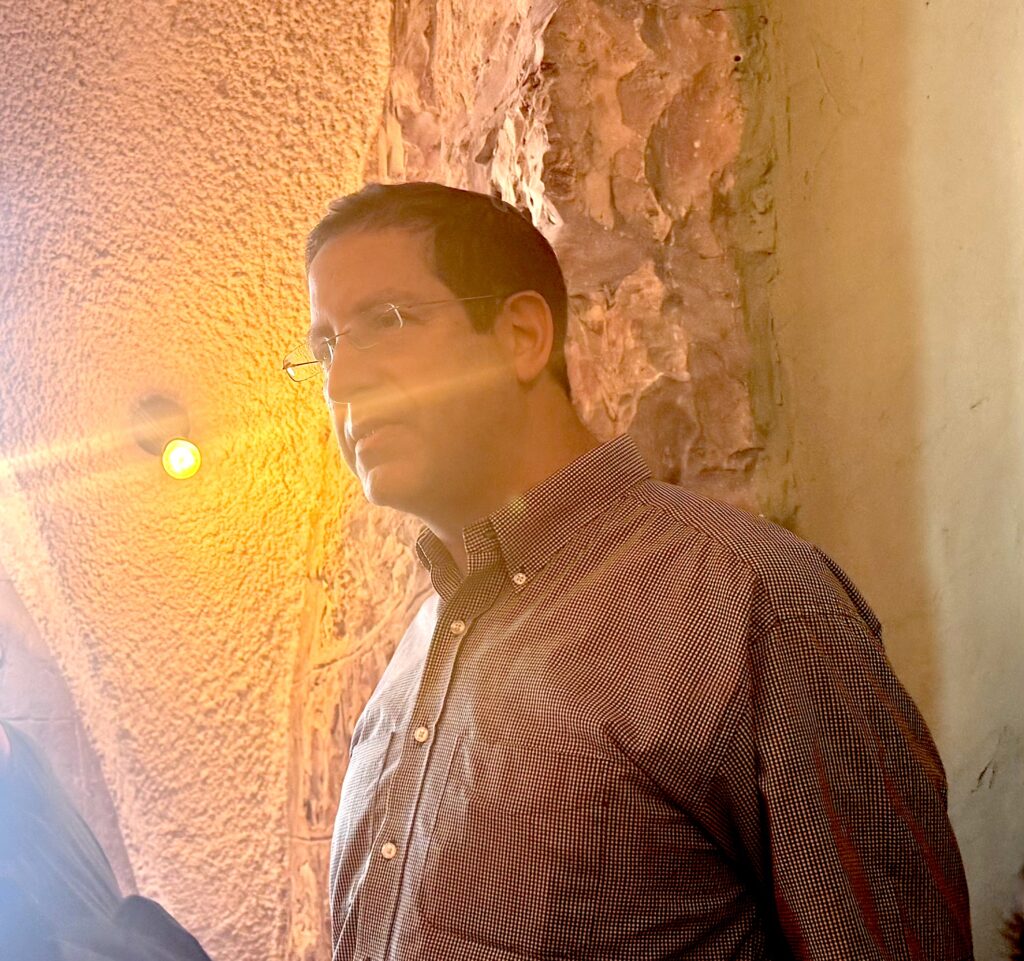
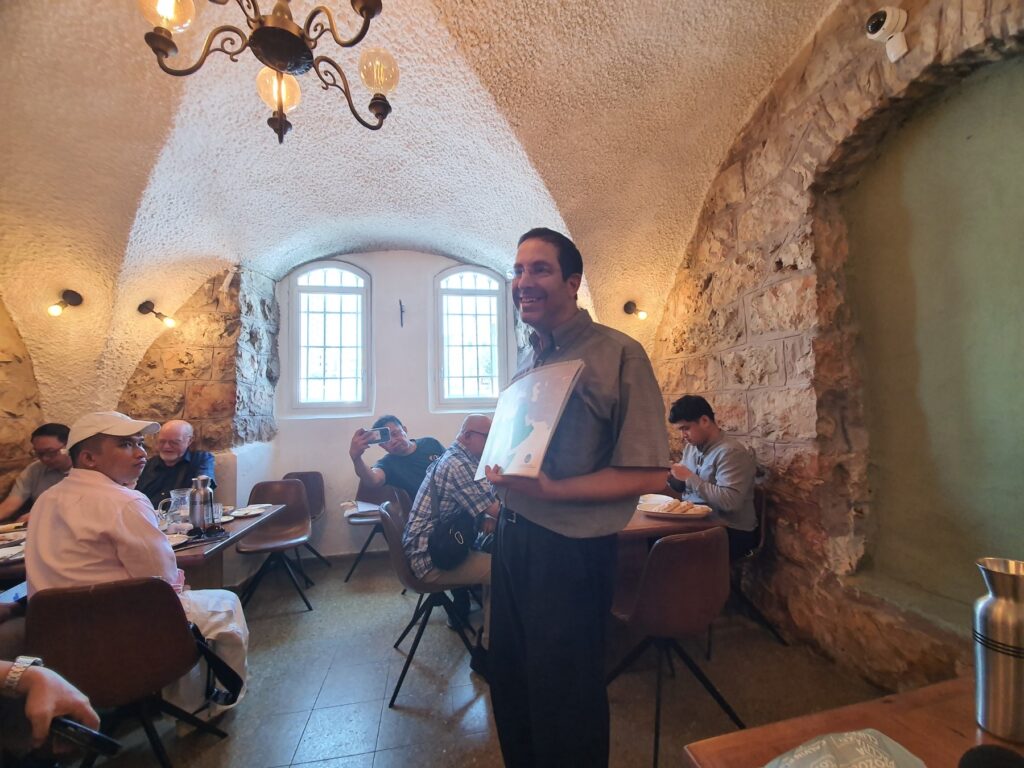
Two days later, a lot of his questions were answered by Gil Hoffman, an Israeli-American journalist, a political correspondent and the executive director of Honest Reporting. He was also the chief political correspondent for the Jerusalem Post.
It turns out there were deep and massive investigations conducted by the government on what transpired on October 7, 2023. The magnitude of such a probe cost the position of a host of government officials.
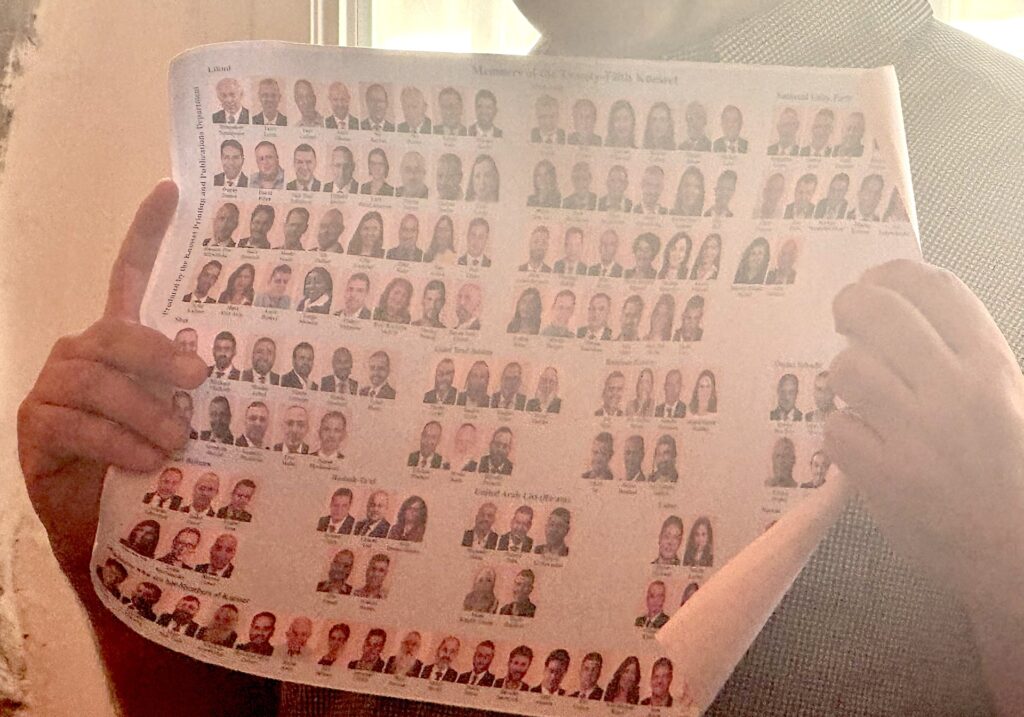
“Little by little, they have all been replaced: the chief of the Army, the head of the Southern Command, the head of Intelligence, and the only one that wasn’t replaced is Netanyahu,” he reveals.
He adds even the Israel Security Agency failed to suspect something was off the day before the attack.
“The Shin Bet should have handled the situation differently. They saw the people of Gaza, so many of them were putting different SIM cards in their phones. Why didn’t that make them tell the Army to deploy thousands of troops on the border? It was the day after the 50th anniversary of the Yom Kippur war,” Mr. Hoffman notes.

Moreover, there were a lot of events that seemed to have put Israeli security officials in a more festive, if not relaxed, mode.
“There’s fewer soldiers on the border, between Israel and Gaza than there have ever had before,” he goes on to say.
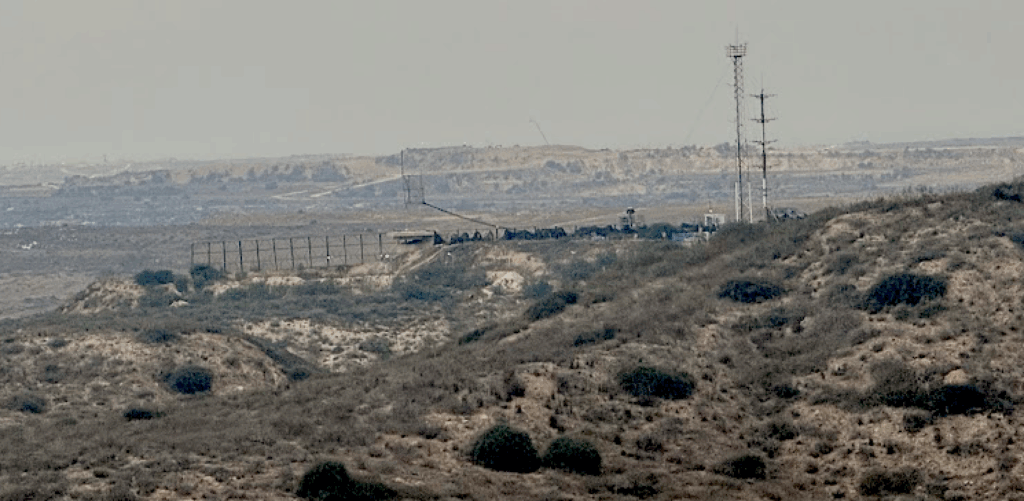
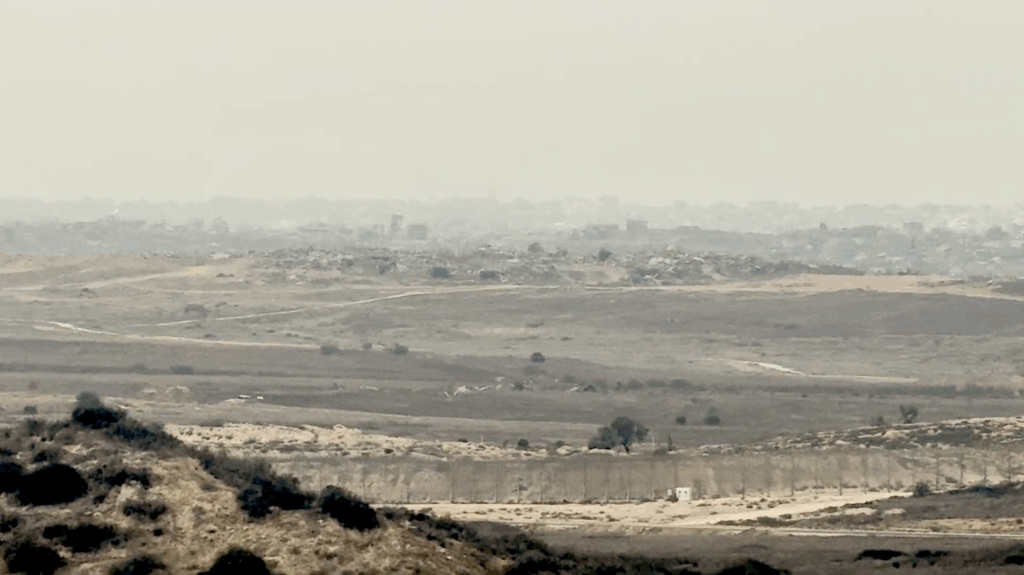
“Plus, there may have been an over-reliance on a $3-billion fence that was supposed to have helped guarantee safety.
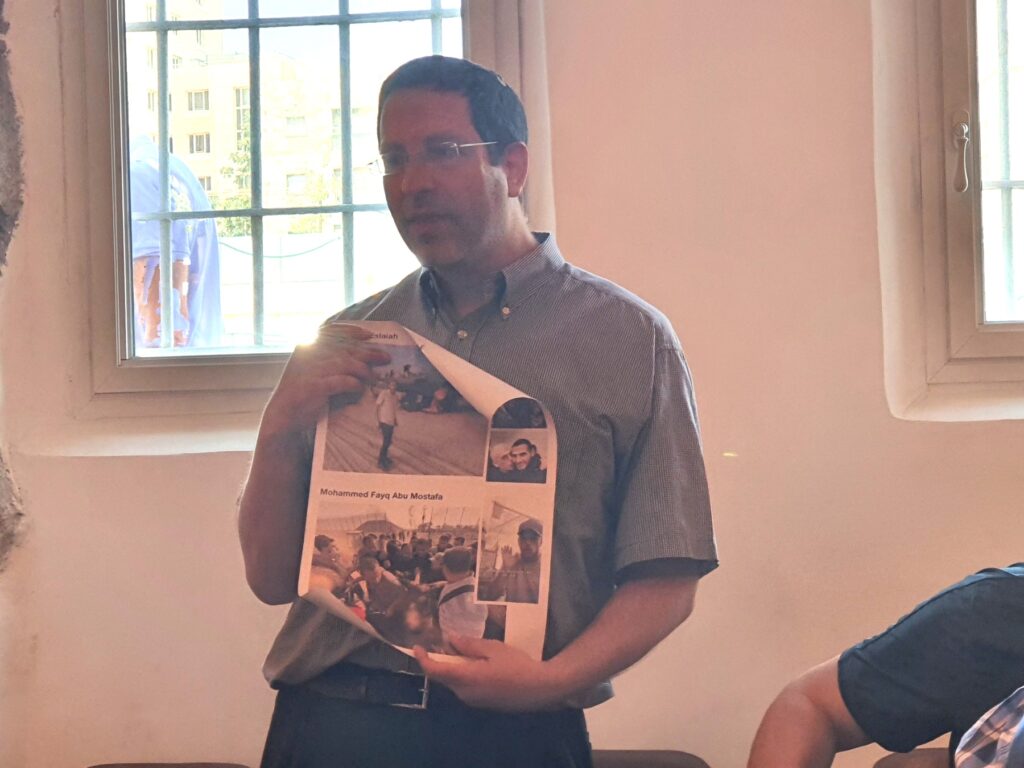
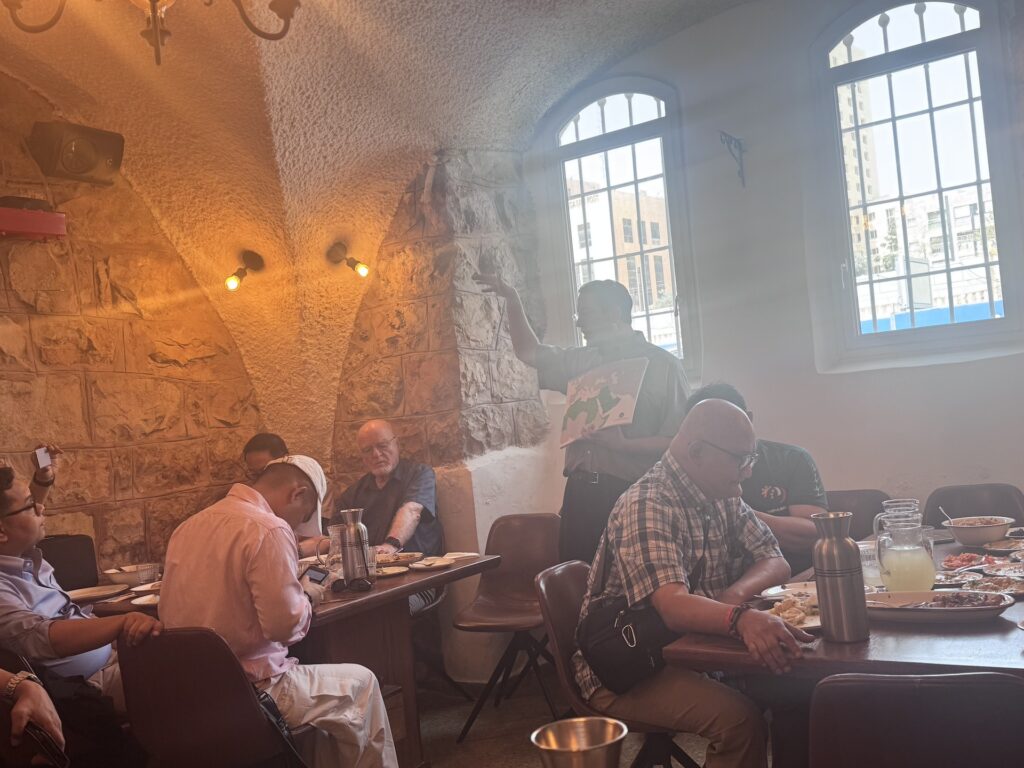

“The fence did something good. On October 7, when we were attacked through the fence, above the fence… and the gliders, way above the fence, and we have a sea. We had no – terri tunnels that introduced the underground, not under the sea on October 7, or since then. Because the fence wasn’t deep underground. Until there are a few other tunnels. Also in Lebanon, at the North. That gave you a false sense of security, because we don’t need it. We have a fence! And we don’t need soldiers there, because there are cameras on the fence and the cameras have guns!” Mr. Hoffman adds.
Regretfully, he says Israel was not ready.
“Little by little, they’re all taking responsibility, with some who made mistakes rather than great things. The head of the Air Force made great things in this war, but should he have handled October 7 differently? Of course!” Mr. Hoffman notes.
He also says past administrations should have also learned tunnels were being built in those 17 years, until Hamas launched the deadly attack.
“They all should not have permitted this to happen. They weren’t worried about Hamas. You see what they did to Hezbollah in Lebanon. They could have done the same with Hamas. They could have done so much intelligence,” Mr. Hoffman adds.

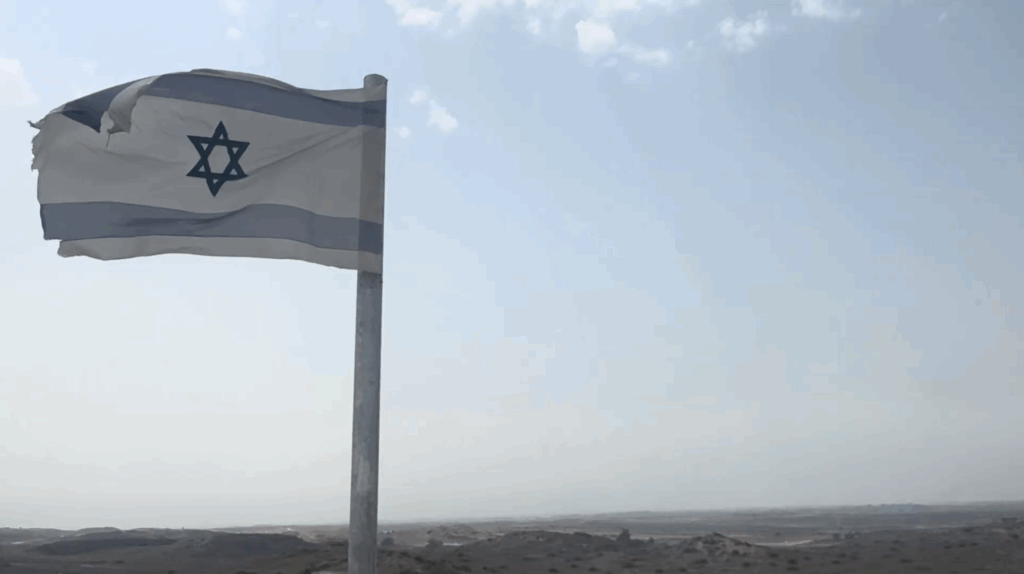
Despite all the blunders, he remains optimistic about Israel’s future, even as he views attempts to erase Jews from the face of the earth began since the time of Abraham.

“This is how long we have been fighting, to live safely and securely here in this land that God promised to the Jewish people. And I truly believe that better days are ahead after going through terrible, terrible days. We’re wounded, but we’re going to go forward,” Mr. Hoffman says with unbridled confidence.
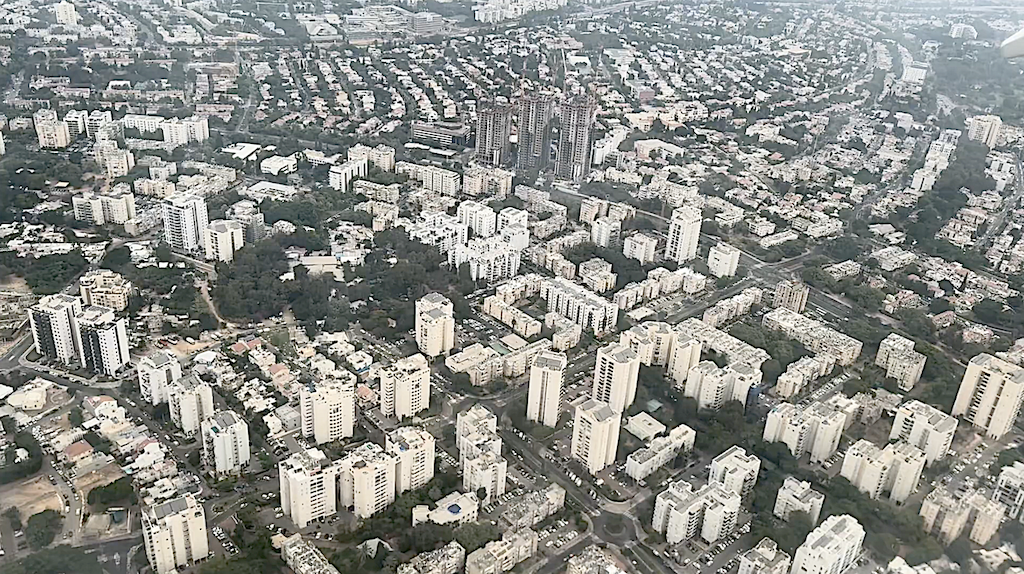
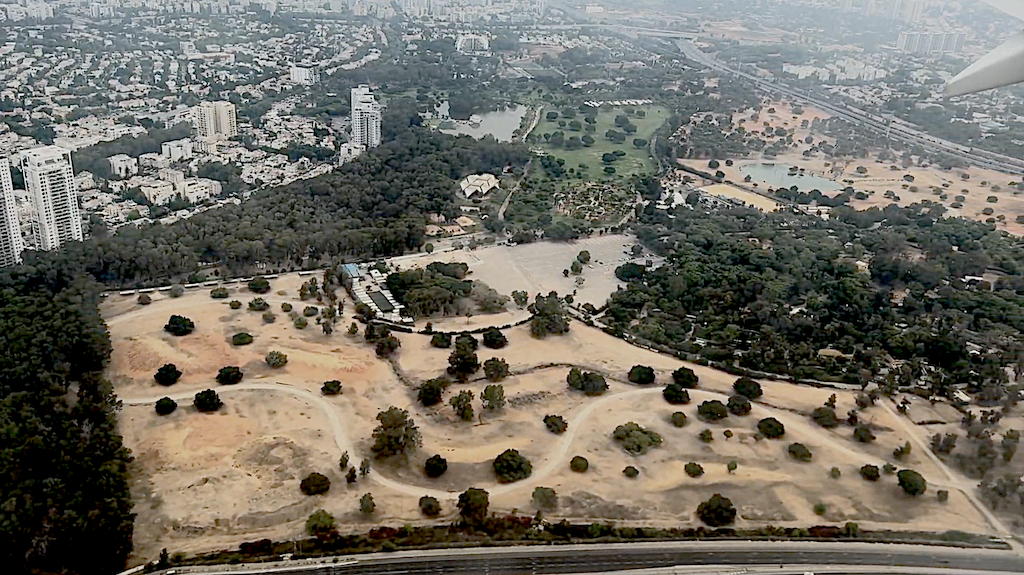
“The Abraham accords are going to be expanded.
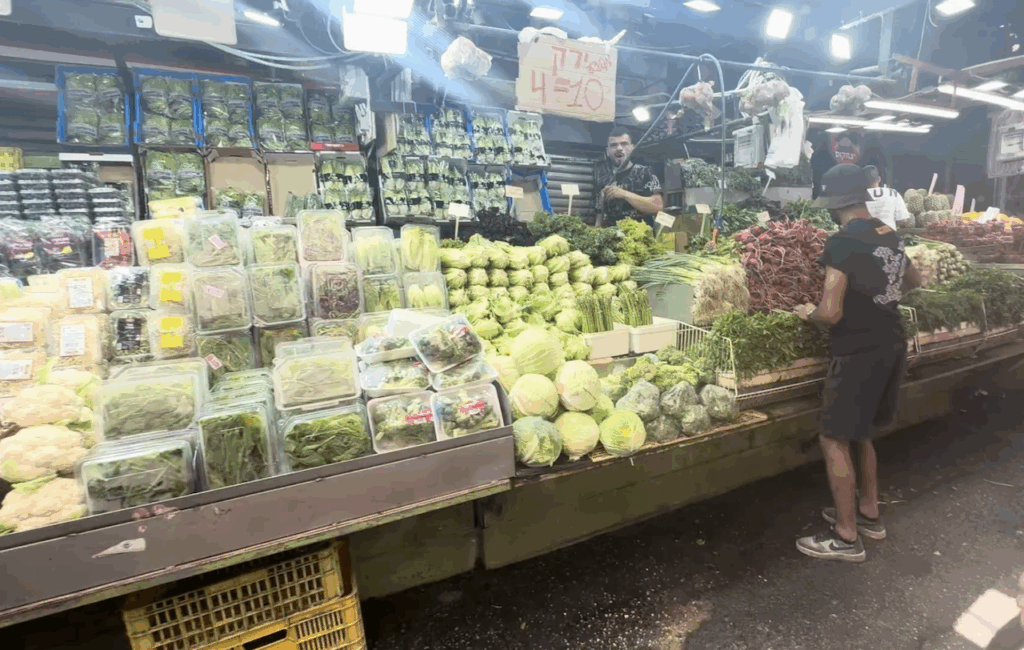
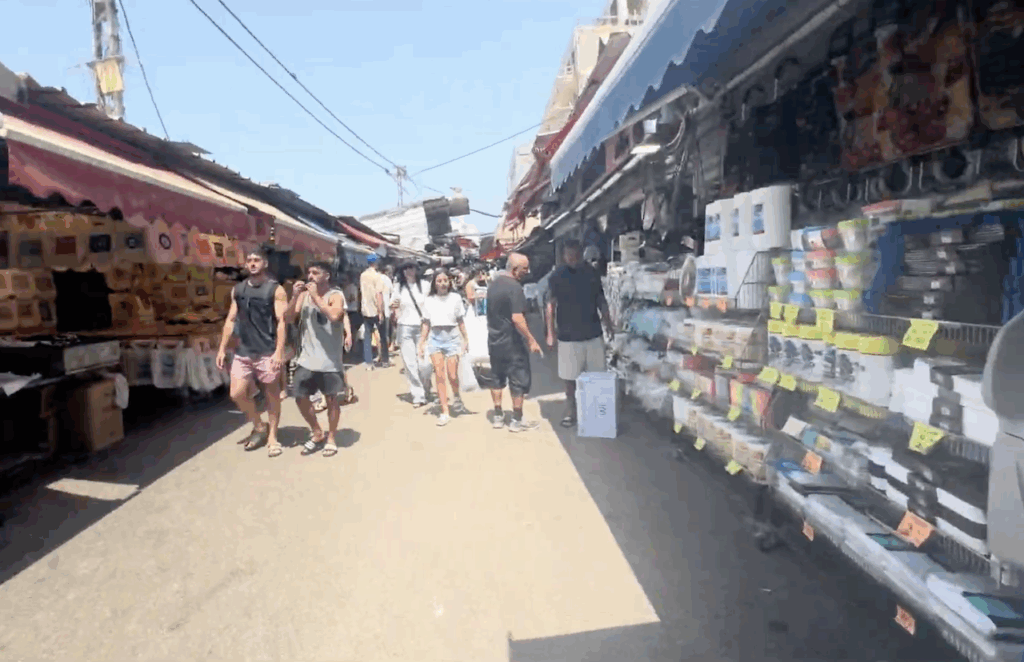
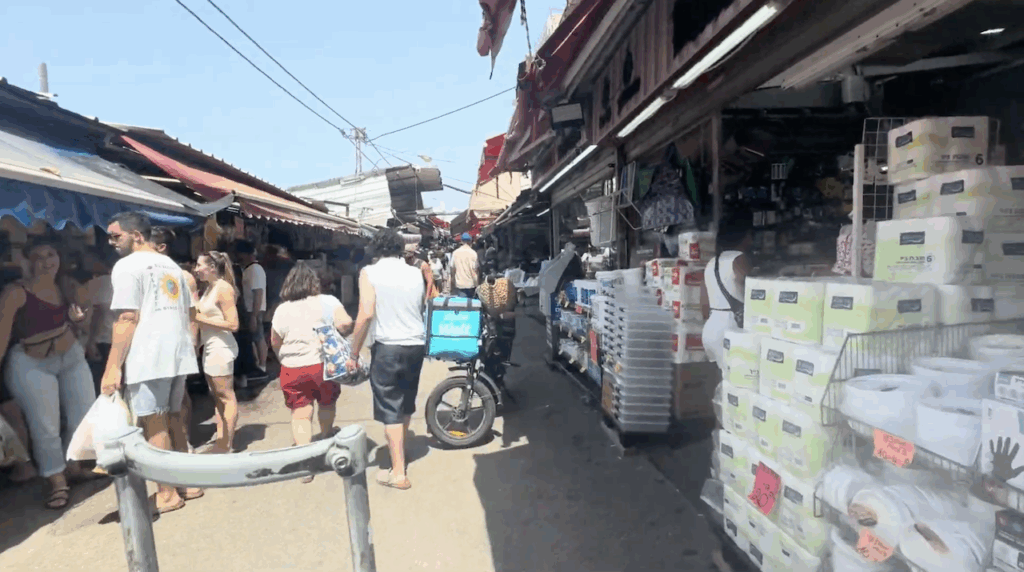
“When the war ends here, there’s going to be an economic boom, like there was, in any other country that has a war, afterwards, there’s going to be an economic boom. This country whose economy is based on tourism and high-tech, that has been hurt by war and the pandemic. People have not been here since 2019.
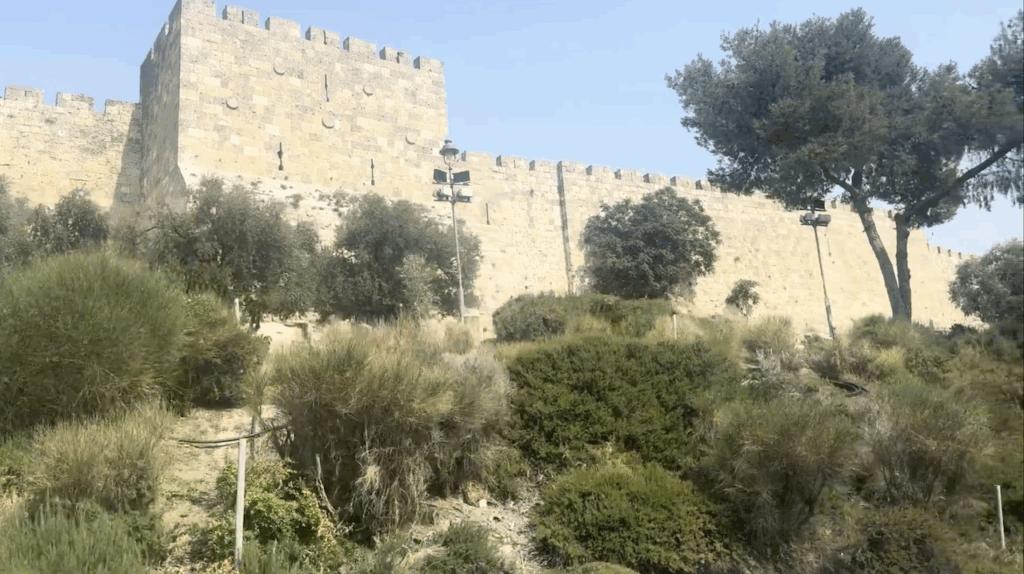

“Christians around the world want to come back to the Holy Land. They’ll be able to come back.

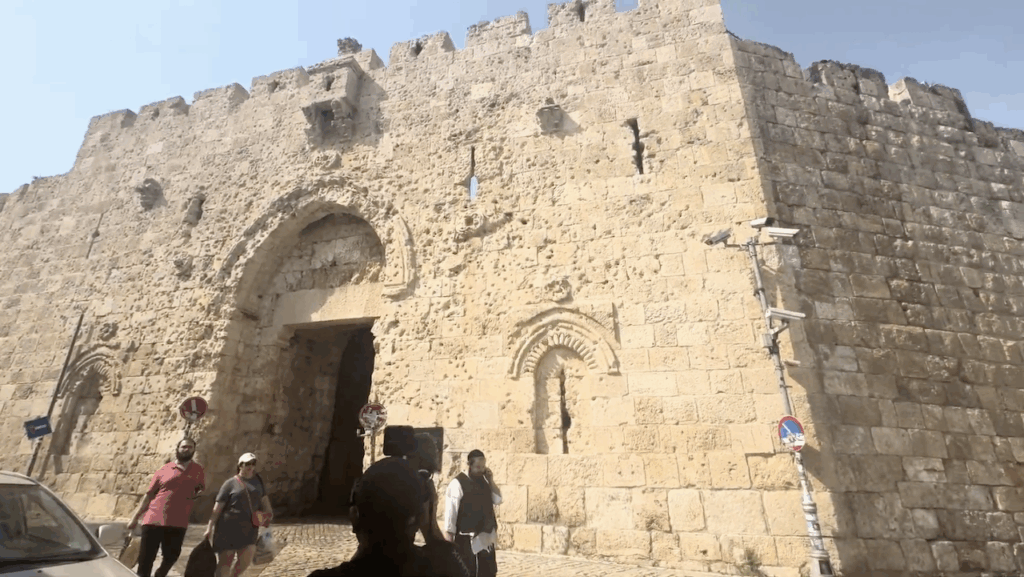
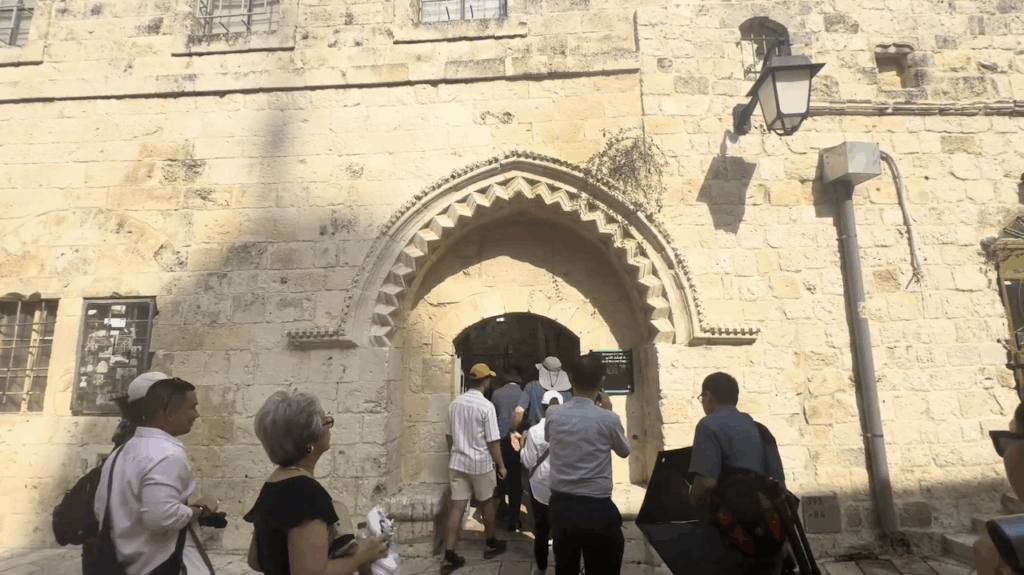
“But we need the world to understand the narrative or people aren’t going to feel comfortable here. And people think that Israel are these aggressors, that starve children on purpose and as bad guys. Who’s gonna come here?
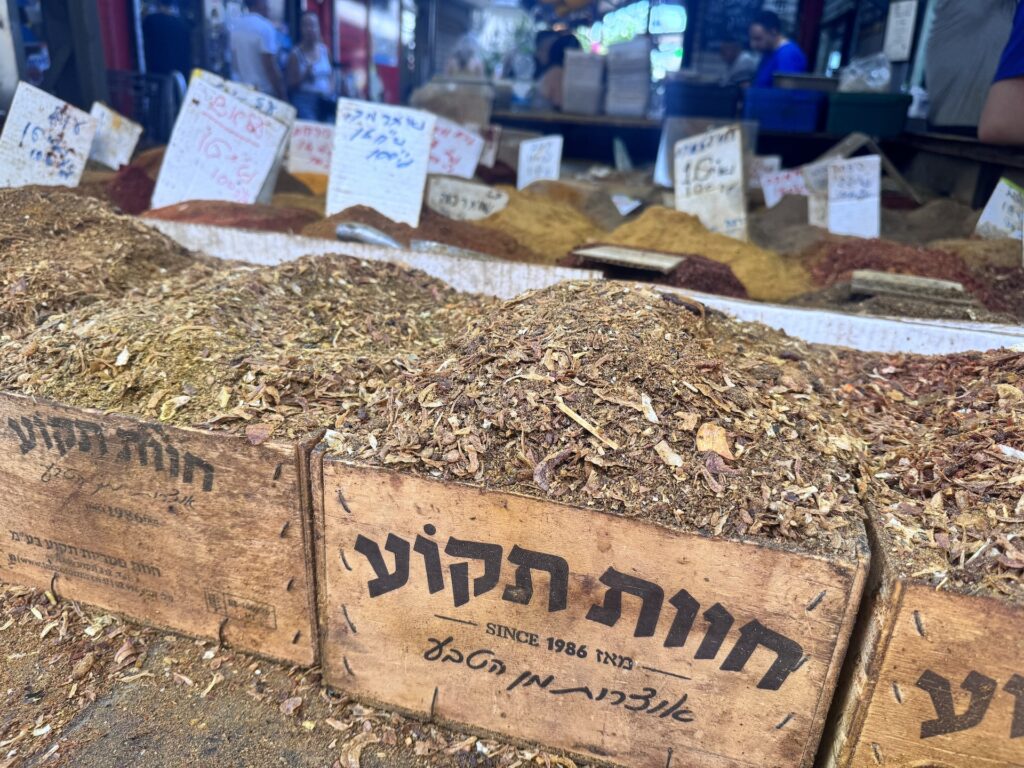

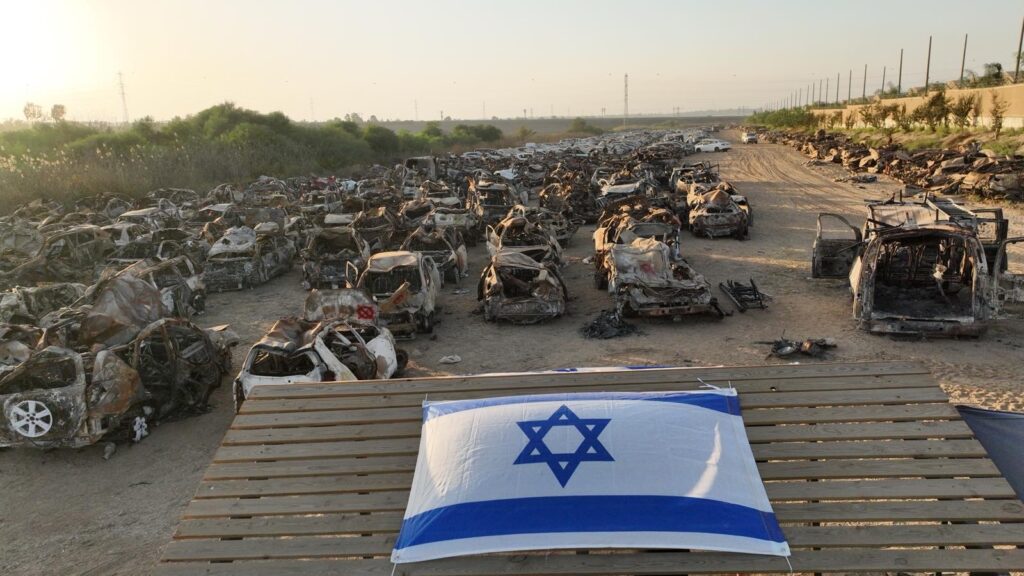
“But if people know the truth, then people know that we’re the victims, whether we like it or not, then people would know how much we’ve done to make the world a safer place. How we’ve defeated the Islamic fundamentalism that was gonna get a nuclear bomb that would threaten the entire world, they’d know that we’re at the forefront fighting terror to make the entire world safer, and we did it successfully, then everybody wants to come here. And everyone’s wanna invest here. And our economy will be so much better. So the narrative of war is really what decides the future,” Mr. Hoffman stresses.
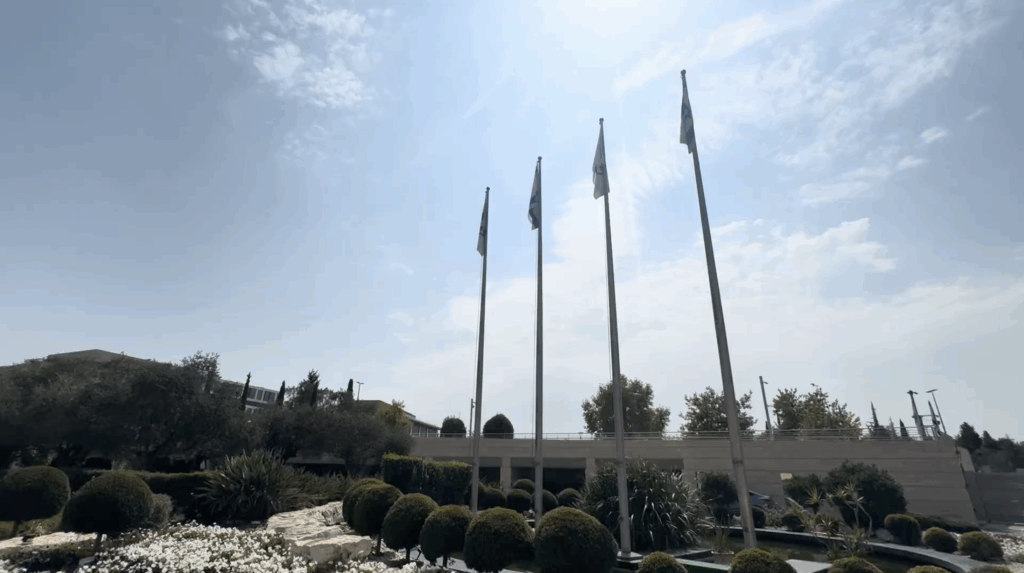
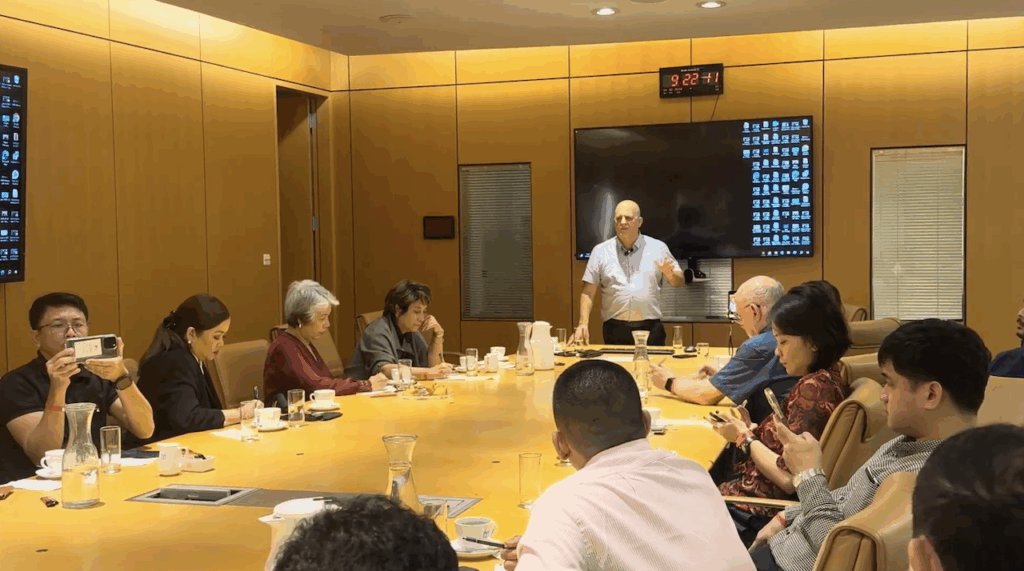
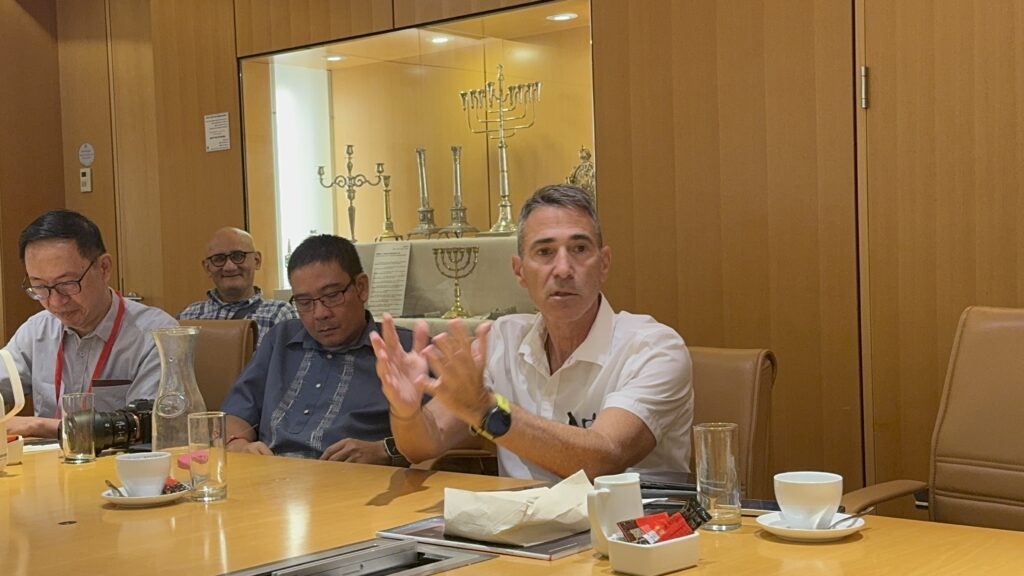
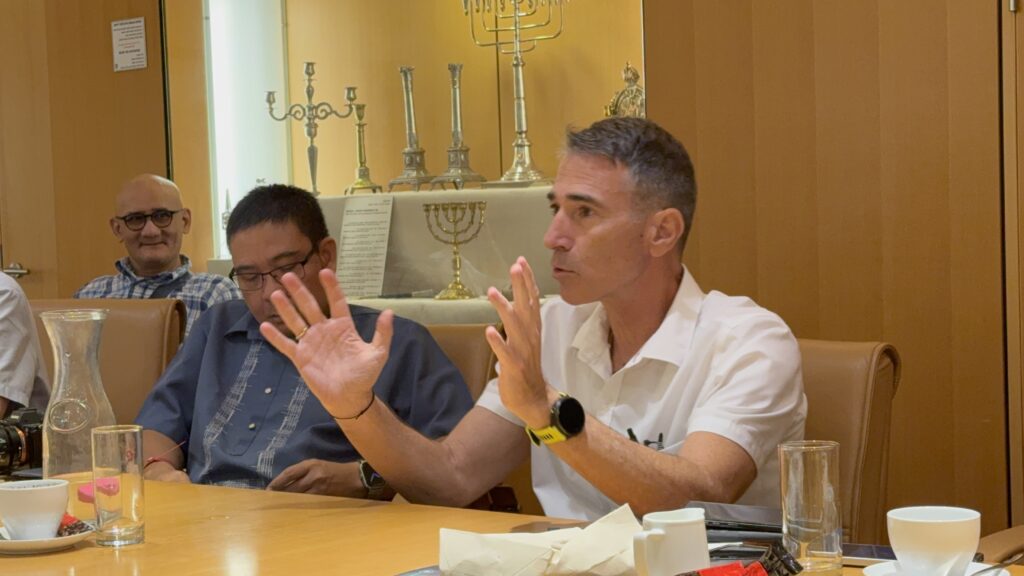
As nations take different sides on the Israel-Gaza war, and a host of them seemingly inclined to support the establishment of a Palestinian State, Israel Foreign Ministry Head of Bureau for Southeast Asia and India Sagi Karni stresses the need for moral clarity.
This is especially true to some countries who used to give their all-out support to Israel for decades, like the Philippines.
“There is a need to have some moral clarity. Filipinos have been killed by Palestinians and Iranians. So why would you vote in the UN, in New York against Israel, when your people have been killed by Palestinians and Iranians?
“I understand the sentiments, but even in such difficult situations and circumstance, there is a need to have some coolness and understanding of basics here: what started the war and what can end the war.
“The prime minister has said there is no wish for Israel to control Gaza. This is a military operation. We want to free Gaza from Hamas.
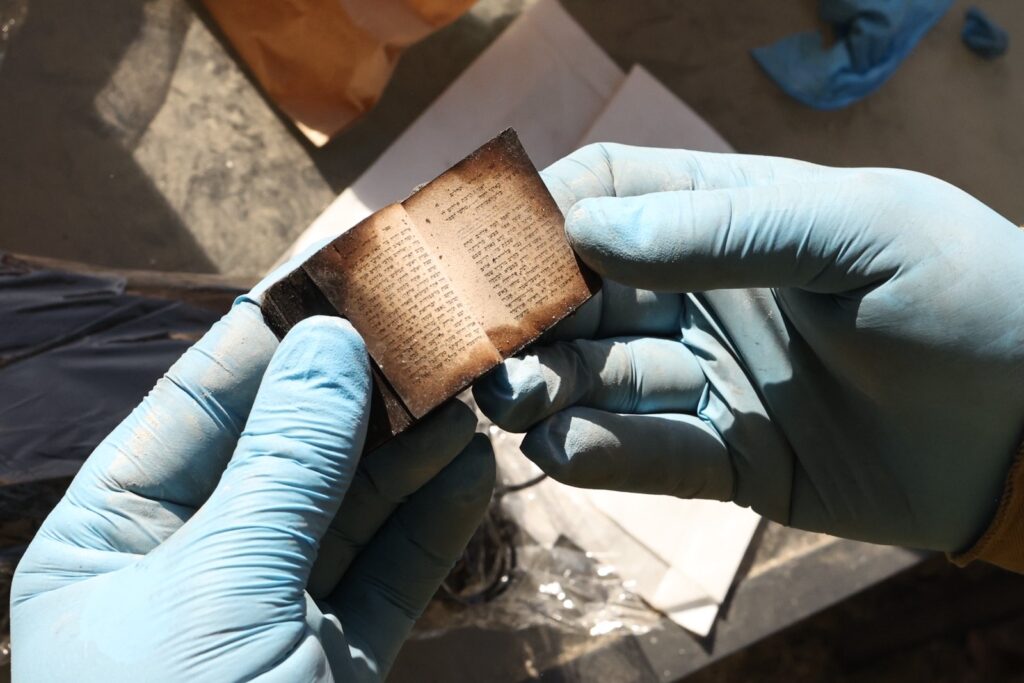
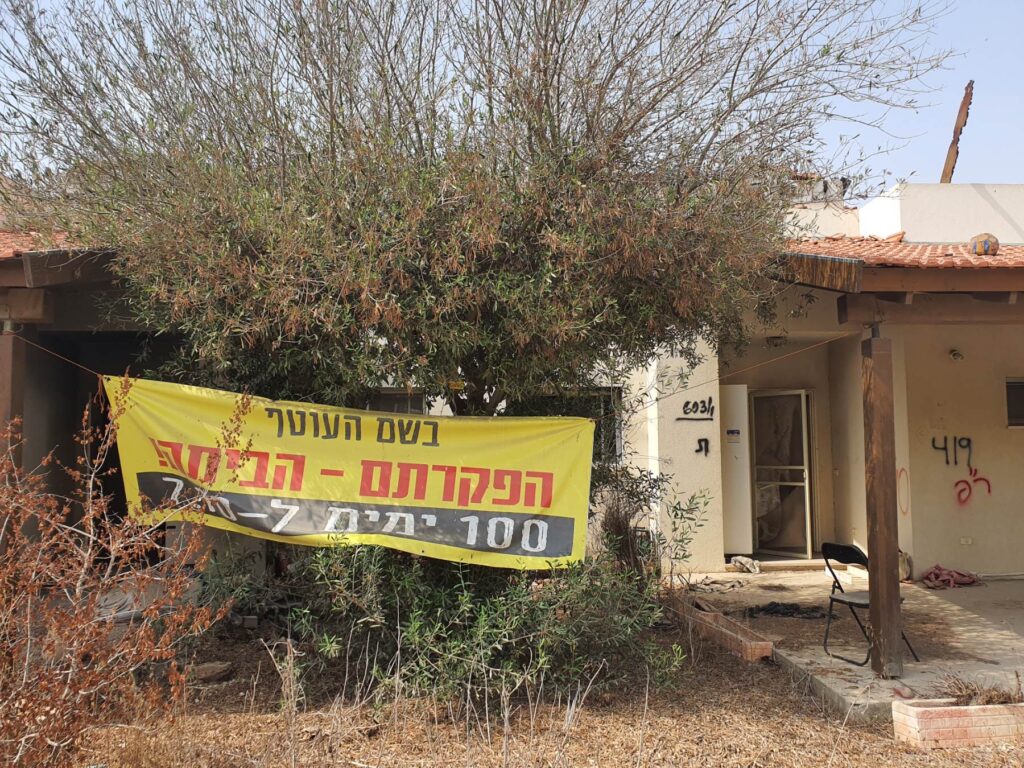
“Israel does not wish for the continuation of the war. War would be over. And, as you know, Filipinos have been killed here. They have not been killed by Israelis. They have been killed by Palestinians and Iranians. This is the central fact, despite what people see on TV screens or the phones,” Mr. Karni explains.
Losing the misinformation campaign may be expected from a small state like Israel.
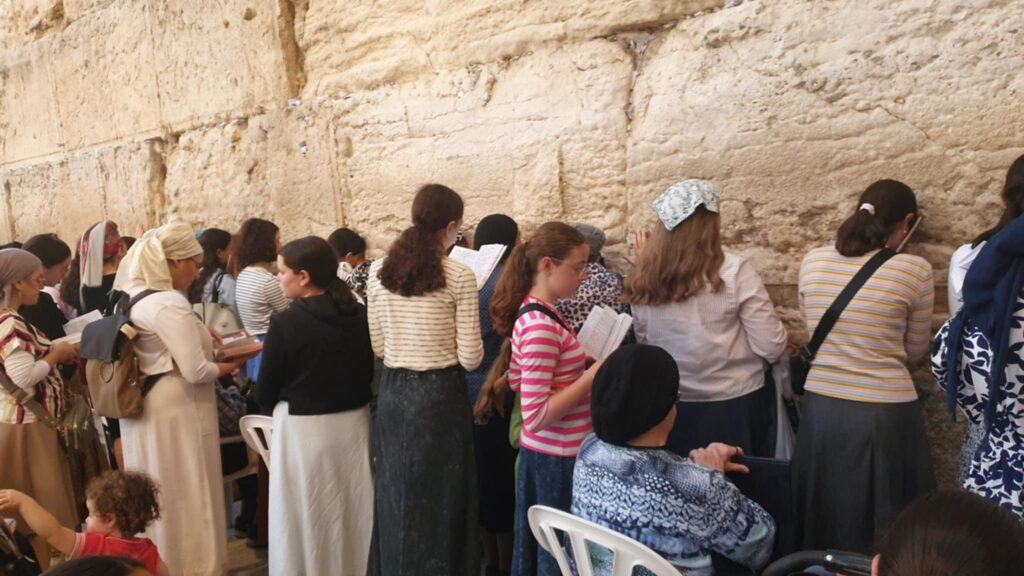
“In our old, very ancient history as the Jewish people, we have always been a minority. In this country, we are only eight million Jews. All around the world, maybe 15 million Jews. It’s very difficult to fight fake news and lies. Just see the numbers. It’s very difficult to renounce every lie that is spread against Israel,” Mr. Karni laments.
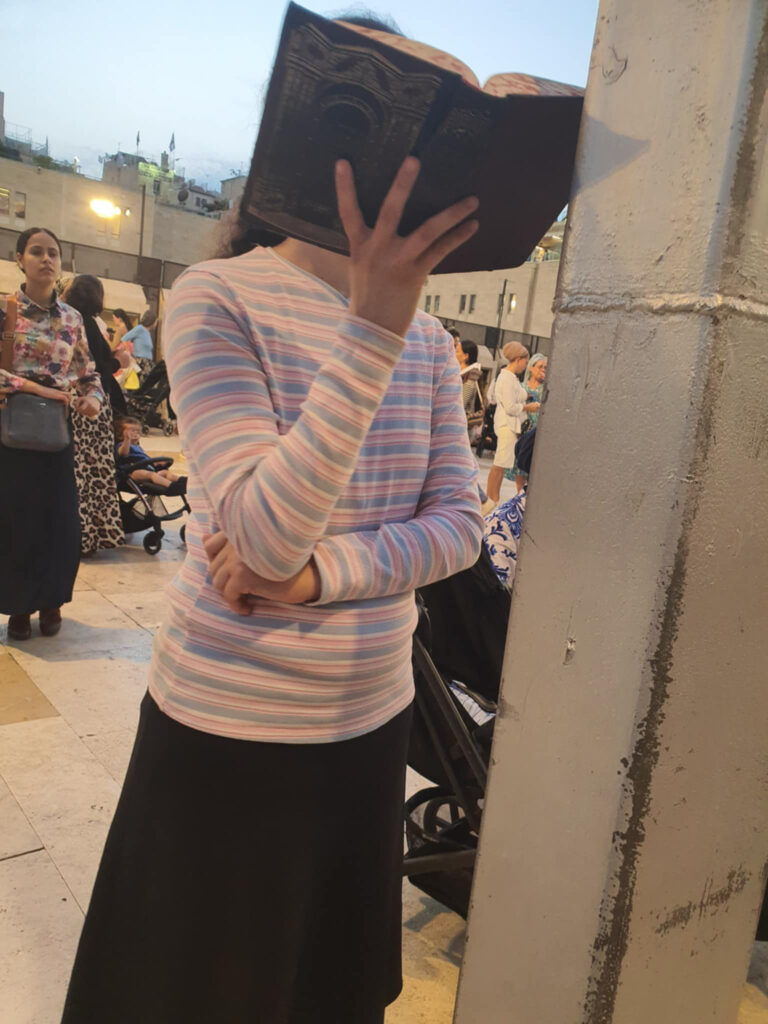
He goes on to say, however, that Israelis always speak the truth.
“You can see on our official sites, the Embassy in Manila or the Ministry of Foreign Affairs official channel, Facebook, Instagram, etc. We disseminate information. Information is available. The problem is that people prefer not to read and not to listen to the reality because they follow the majority,” he adds.
The quest for moral clarity on the ongoing Israel-Hamas war is also being pursued by Architectural and Design student Mazal Tazazo, an Ethiopian Israeli who survived the gruesome Hamas attack on October 7, 2023 at the Nova Music Festival, now named Re’im Memorial.
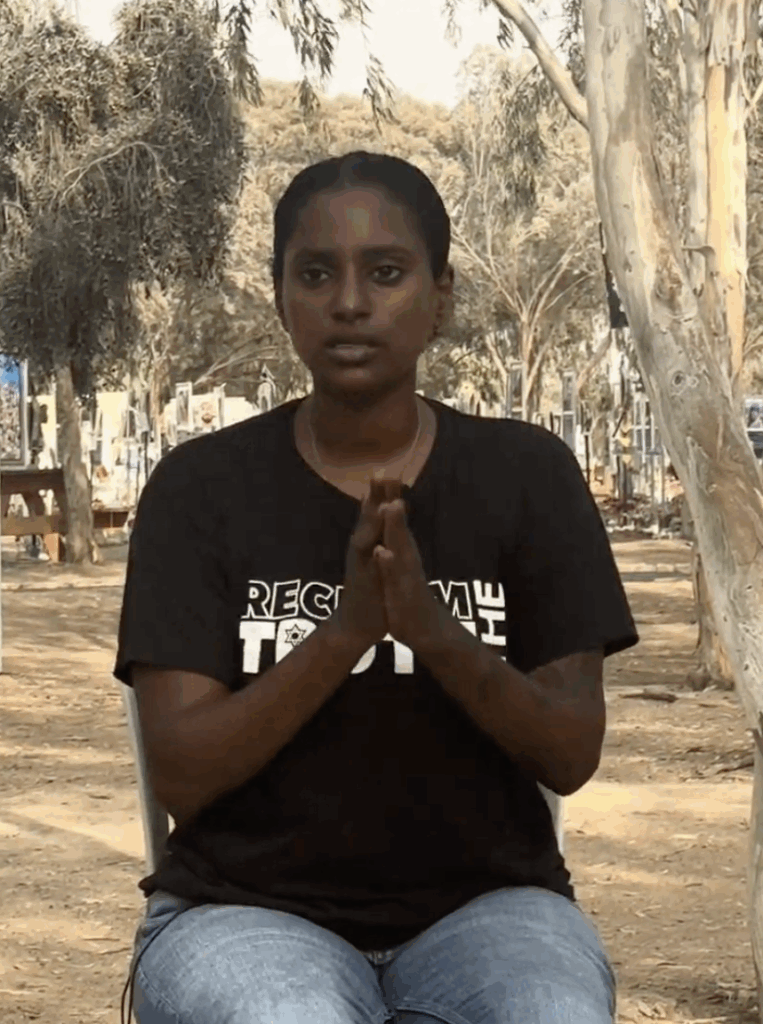
Friends and loved ones come here from time to time to pay their respects to those who perished.
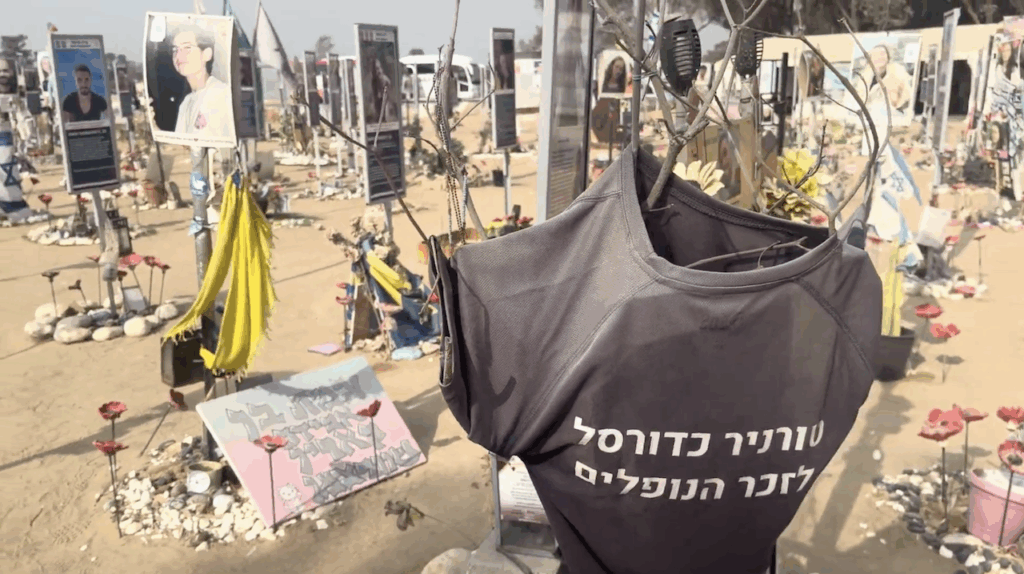
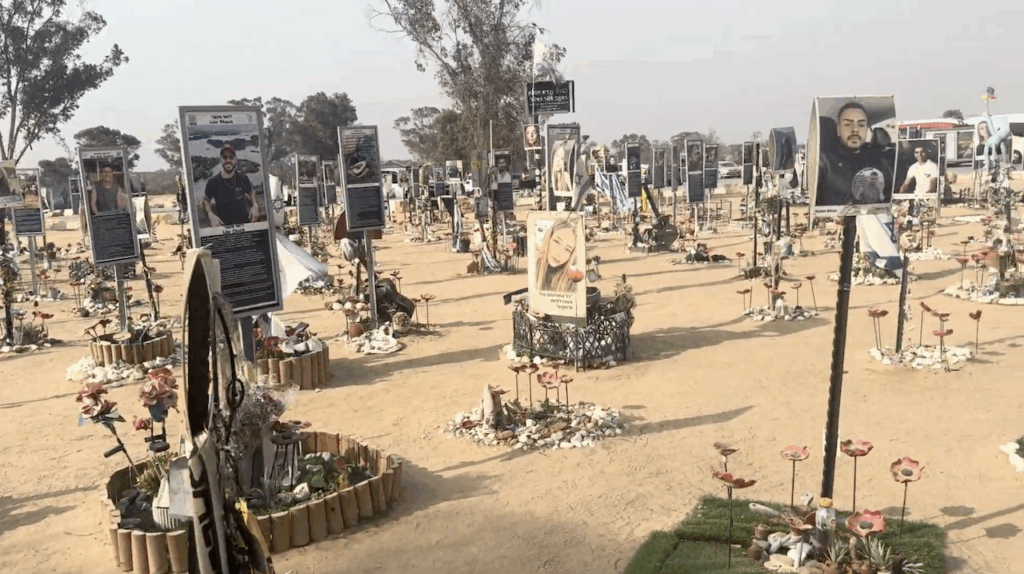

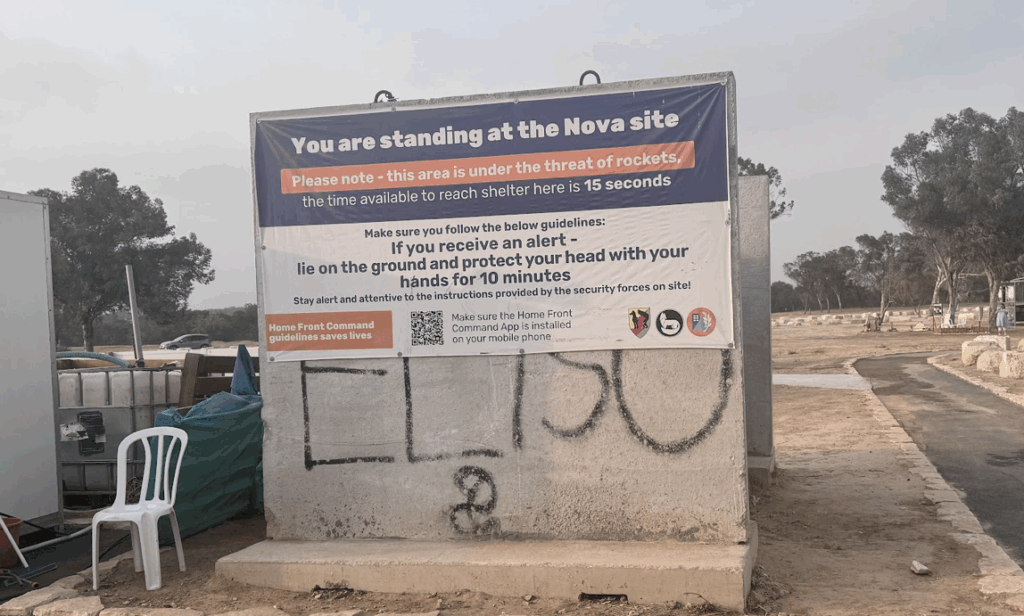
Unlike other memorial sites, Re’im Memorial is not exactly a place of quietness, as explosions are heard every few minutes, because of its proximity to the Gaza border where war is still raging.
Visitors do not seem bothered, however, and continue to stay in the area for relatively long periods of time.
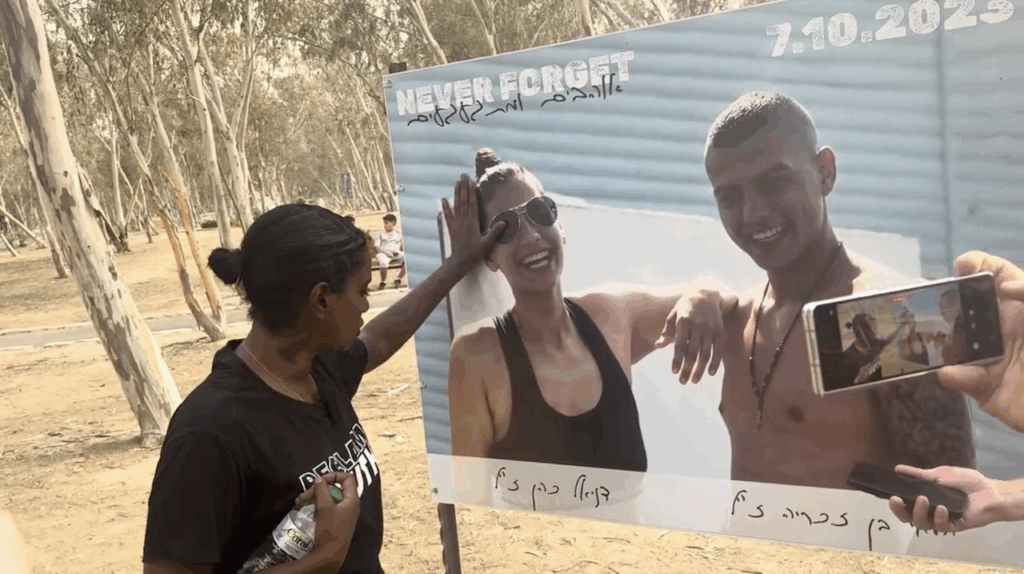
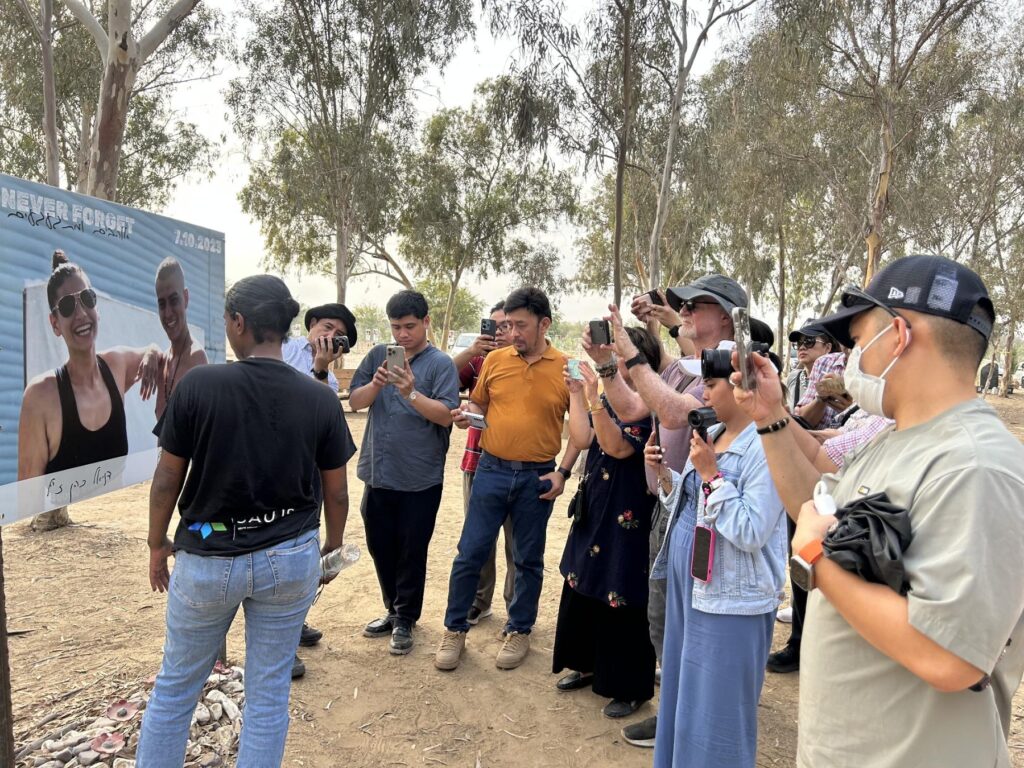
Ms. Tazazo comes to visit the memorial from time to time. She survived the attack, after playing dead. Her friends Daniel Cohen and Yohai Zacharia did not make it alive. They were shot at close range by Hamas terrorists, just beside her, before she passed out due to bullet wounds.
“After months, all the lies, all the protests, our hostages are still there. Two years and it’s crazy. They do protest to us, even with what they did to us? The world doesn’t understand what’s going on? They don’t understand that they (Hamas) are a group of monsters. It’s not about lands; not about Palestine, Israel, Muslim, Jews. It’s not. It’s only about pure hate, like they hate me, they hate people that live in the United States, and every other place that people don’t believe what they believe and do not share how they see the world… you deserve to suffer,” she says in a pained and frustrated voice.
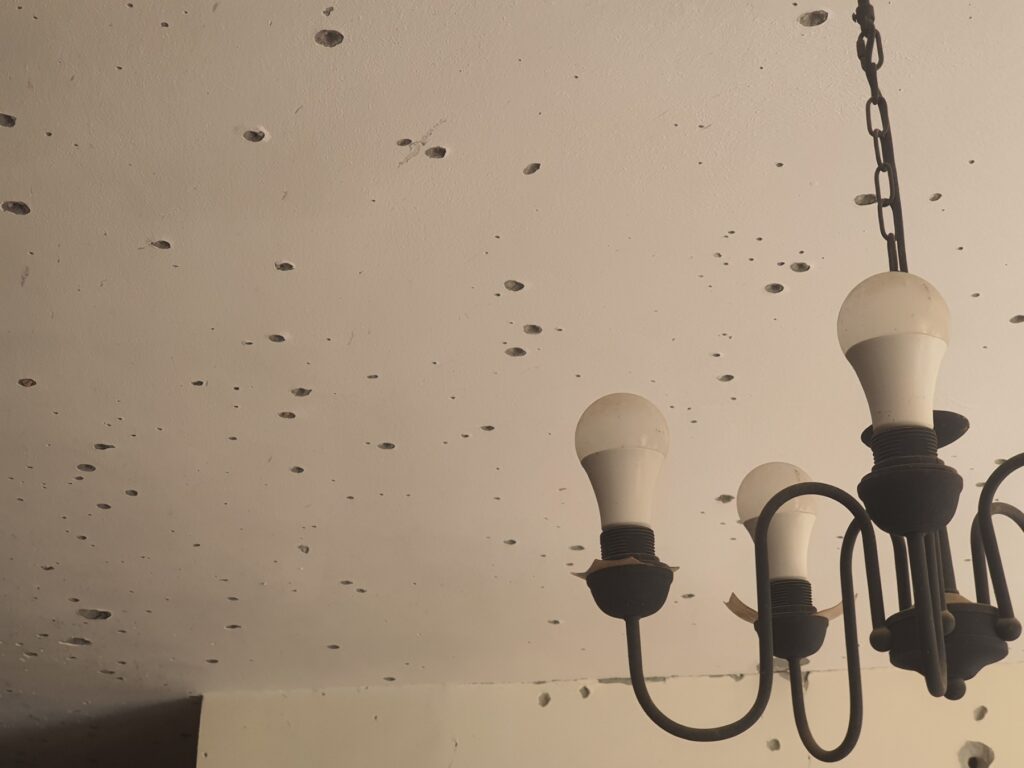
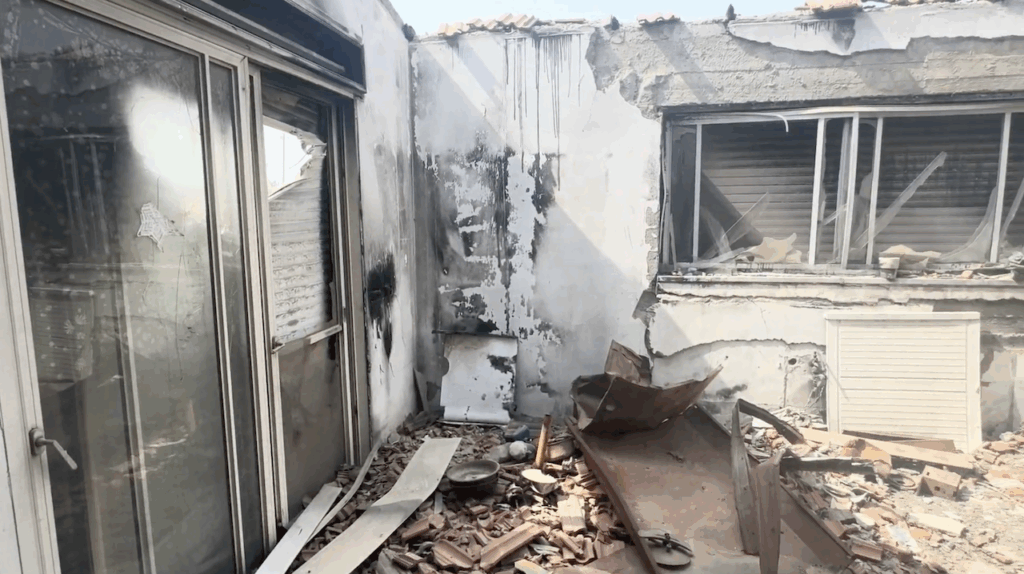
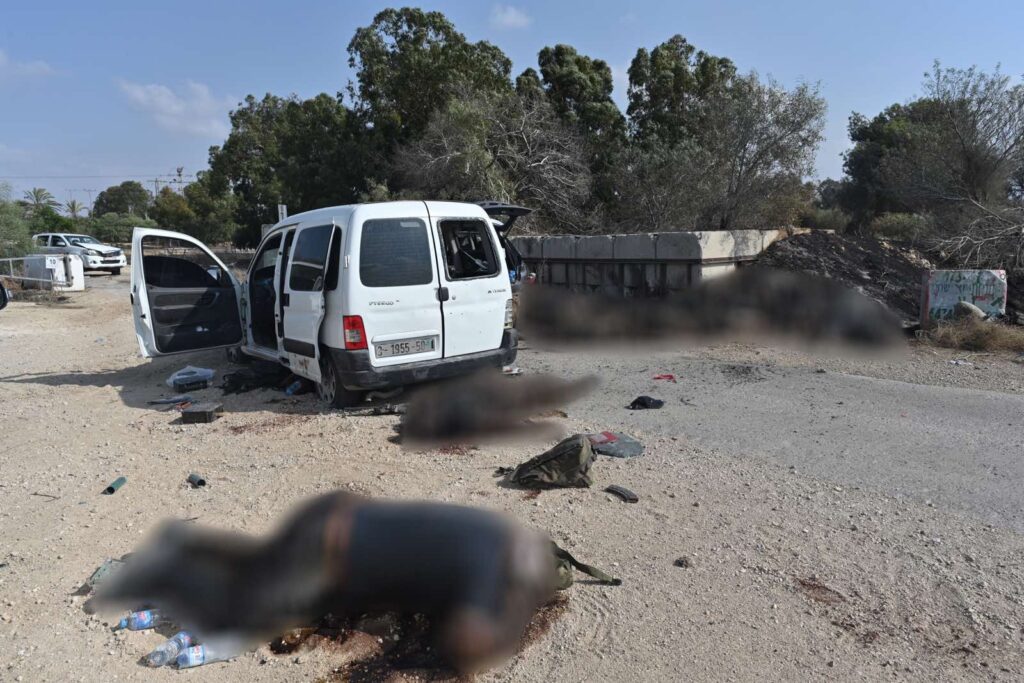
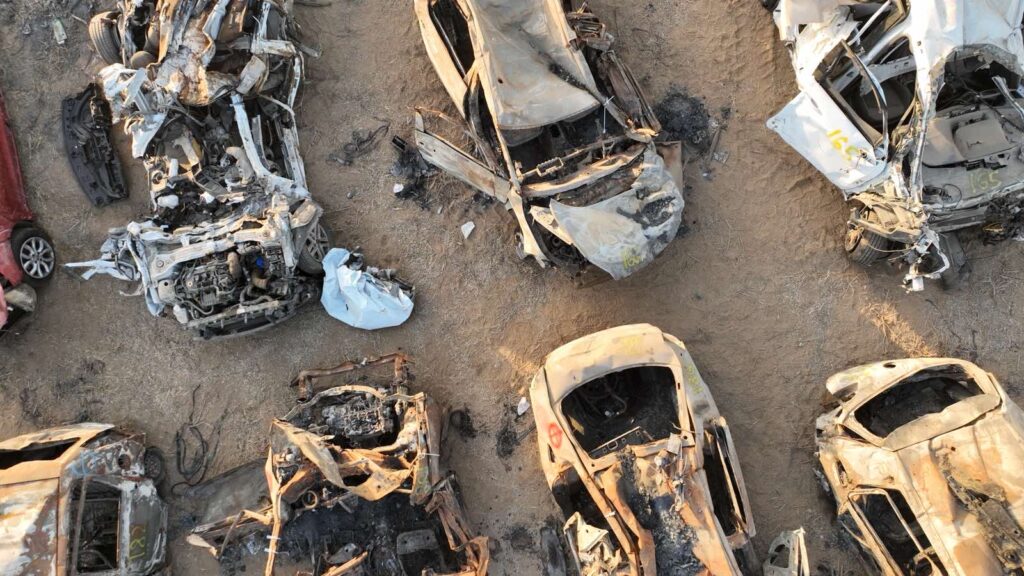
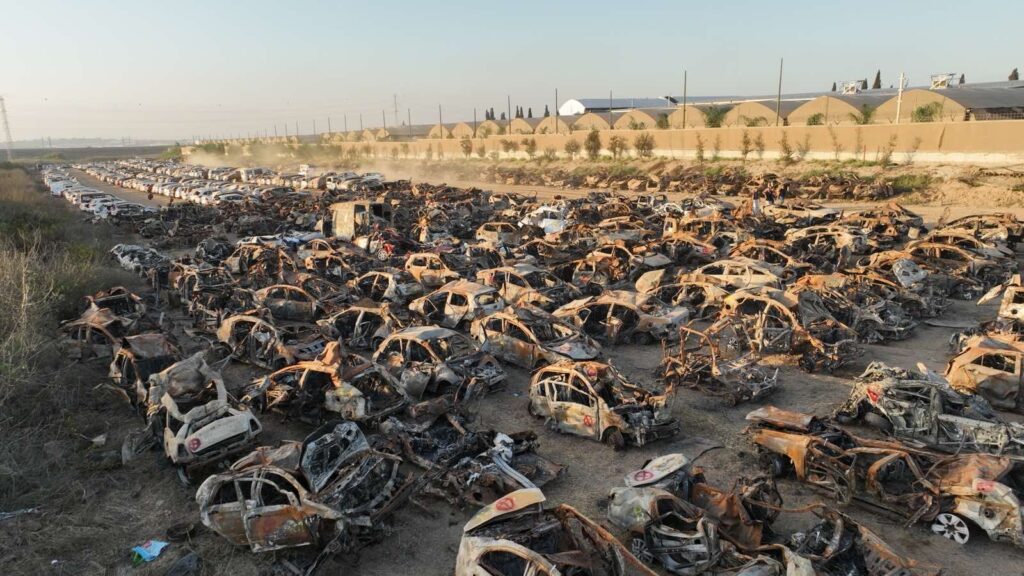
Ms. Tazazo is flabbergasted that the world no longer remembers the hideous crimes committed against Israelis almost two years ago. In her view, it has been acceptable that Jews, especially women, would be brutally raped in ways never before seen nor reported.
“What is more scary is that ‘very strong people’ who are making big decisions do not understand or get it that Hamas are not leaders. We have to remove them, send them to jail. Give the Palestinians good leadership that believe in love, who want to pursue life and not death.”
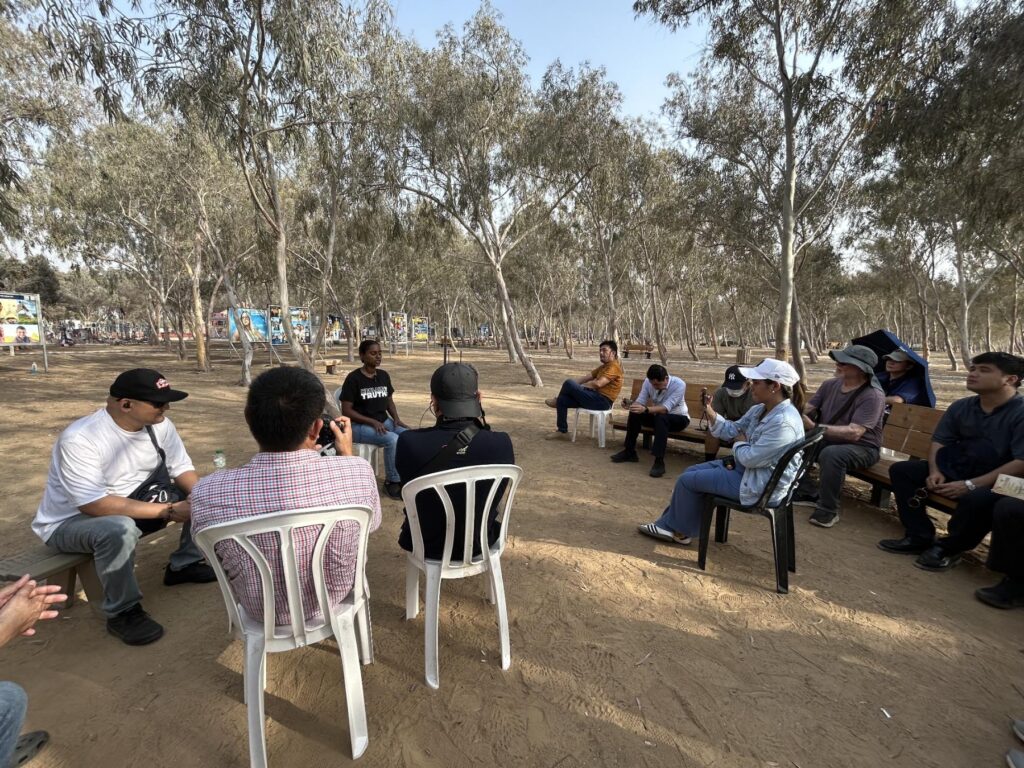
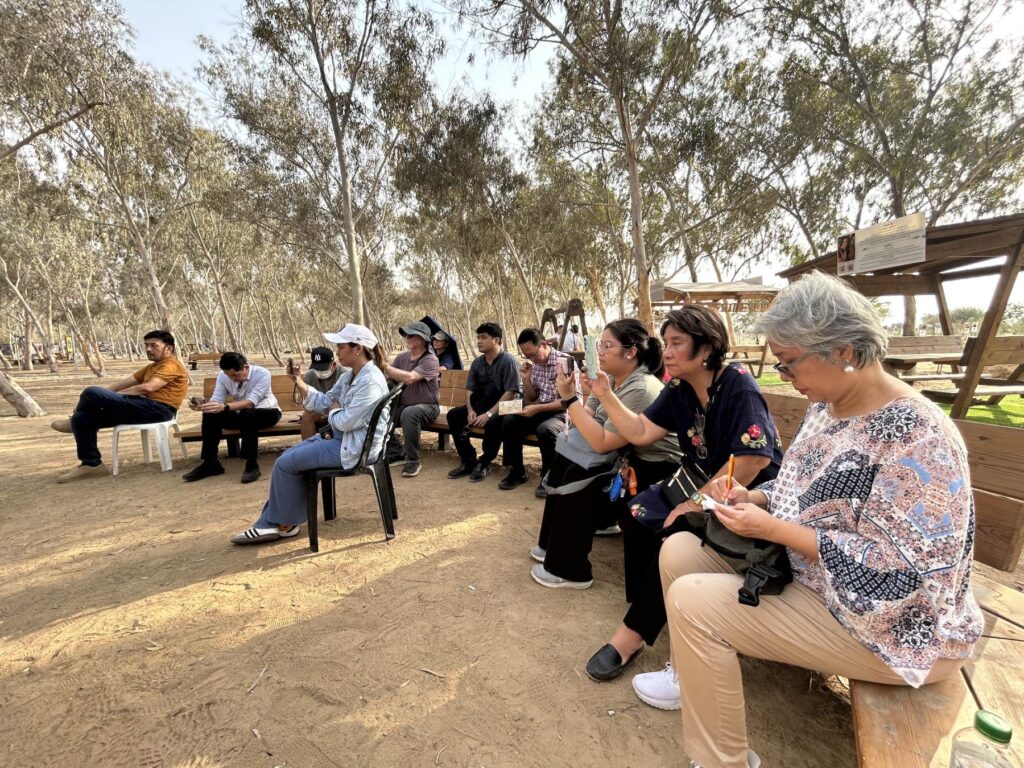
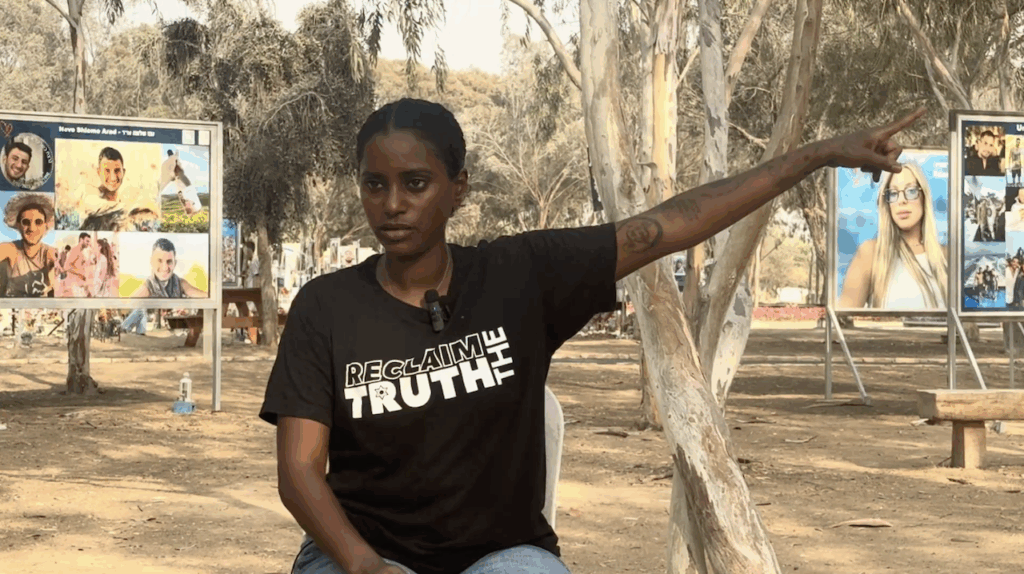
Ms. Tazazo’s reaction comes as she hears about young kids dreaming of becoming “shahid.”
“Until now, you can see kids and ask them what is your dream? They will answer you their dream is to become ‘shahid’. What is ‘shahid’? Terrorists that kill Jews and go to heaven to the 70… I don’t know… virgins.
“They’re hero? (On the day of the attack) bodies on the streets and it’s ok? Shani Louk video, her body on the truck, naked, dead and many people around her. And one of them, I think 17 years old, spat on her. This sickness is not right. We have to stop them and the world does not get it. They support and give money (to Hamas).”
To Ms. Tazazo, the vicious carnage that happened on October 7, 2023 is not only a battle for the current generation of Israelis, but also a fight for the next generation. This struggle is too close to home, as she tries to raise her 11-year-old son.
“I get it that I have to fight for my son, I won’t live in a safe world. A right world. I want to live in a world that if someone wants to kill me, I know that I have the law with me. I don’t choose when to burn, when to live, when to be a Muslim or a Jew. I don’t know. God brought me here.
“They took something from my innocence about the world. So I have to fight for this purity, where my son never loses it. And for all the world I only want to be safe. I just want to be safe, for everyone to be safe.”
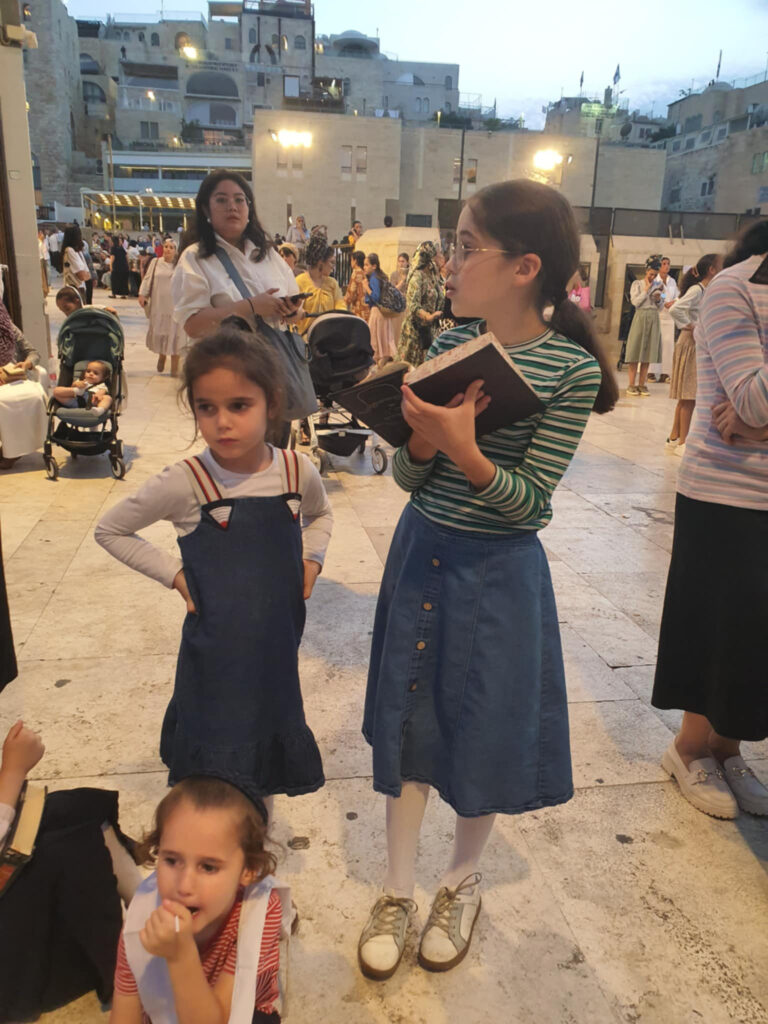
She, however, cannot help but be hurt by what she views as a double standard for Jewish children.
“Where are you, humanitarian organizations? Kids starving there, (you say) ‘we care about the kids’ but you don’t care about the kids that were raised with a lot of hate to the world, because they see dead people and (you are) not shocked for them because they’re used to it? They were killed by their people. Everything’s online, everything’s open. I don’t know why people don’t want to see that and let them (Hamas) be leaders of something again; to go to the UN (and accuse) Israel of genocide. What’s going on? Very scary.”
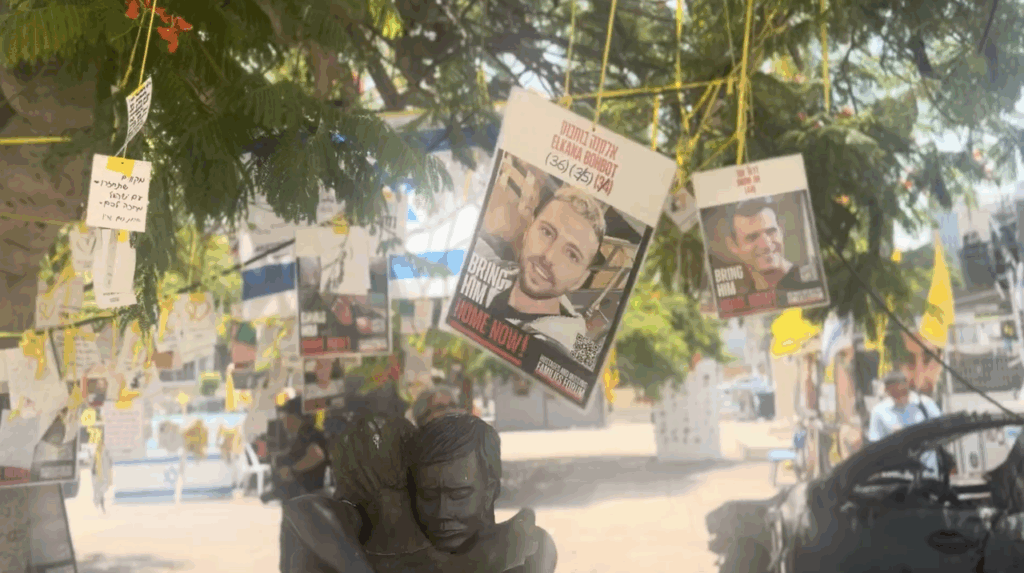
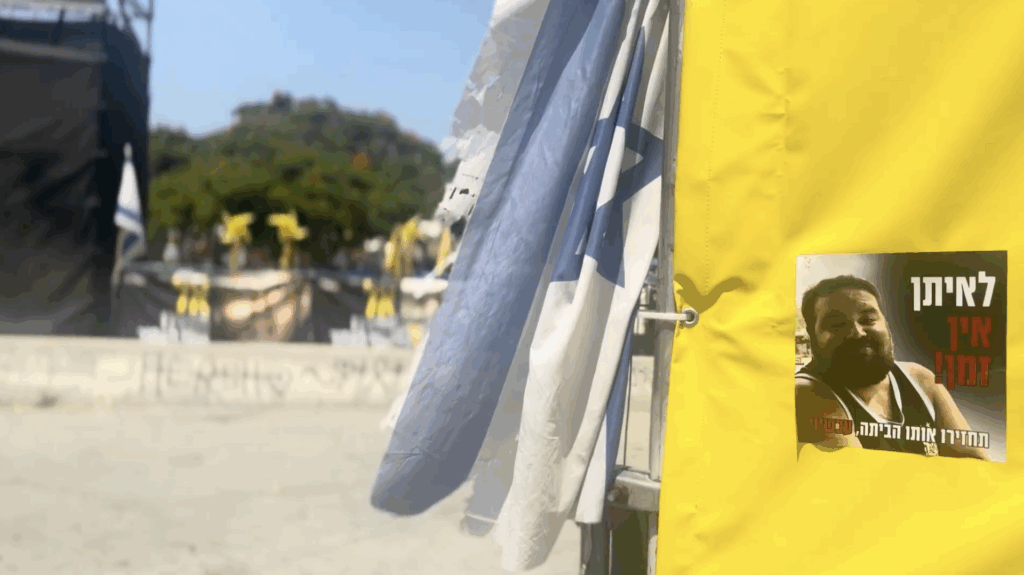
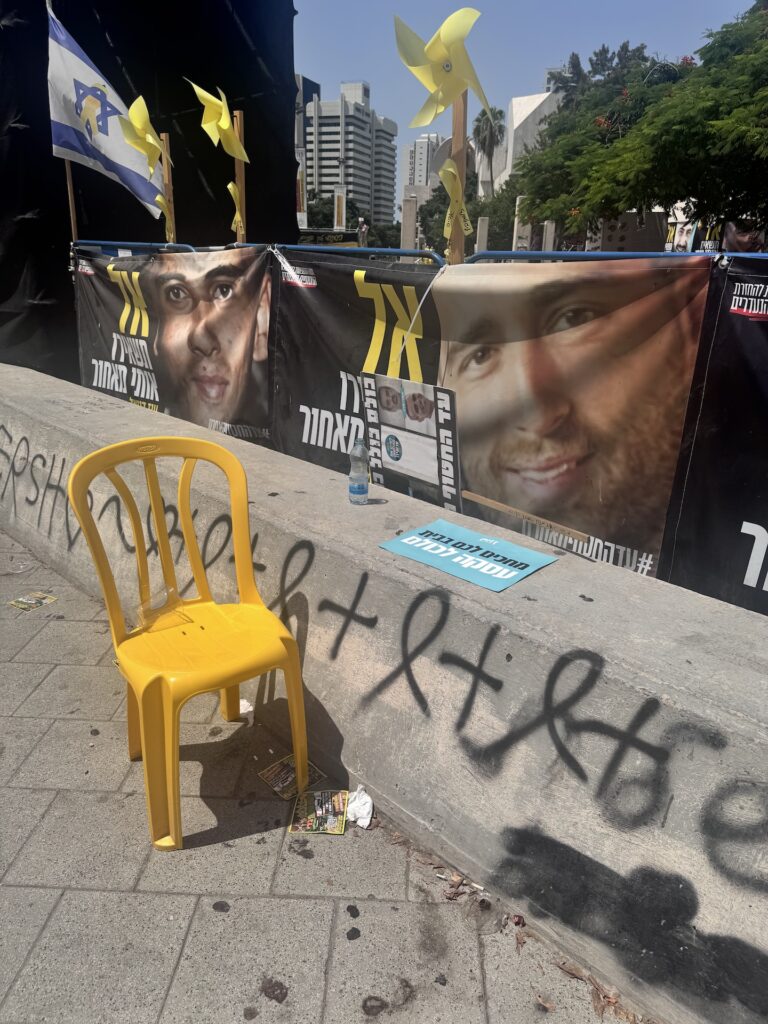

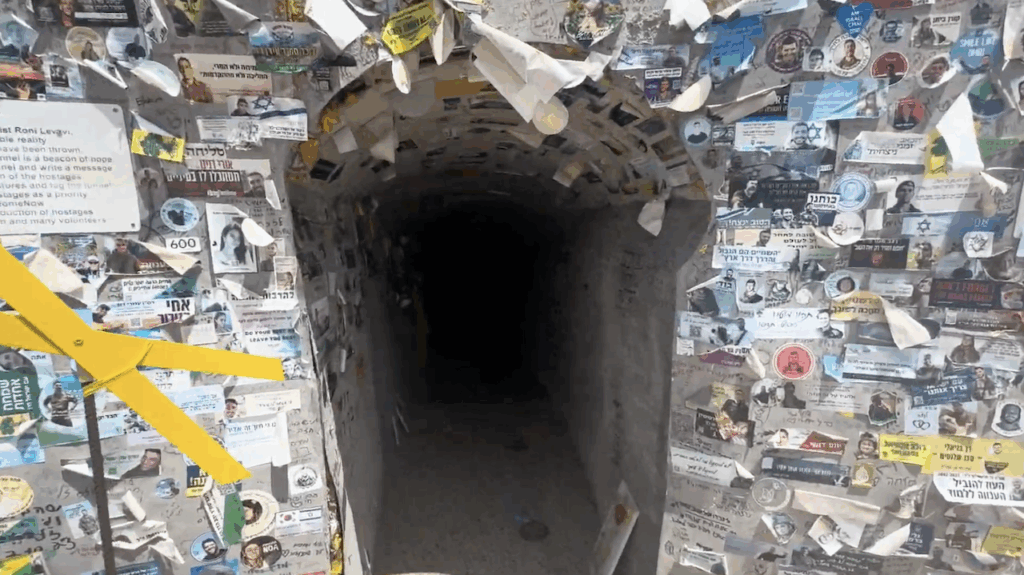
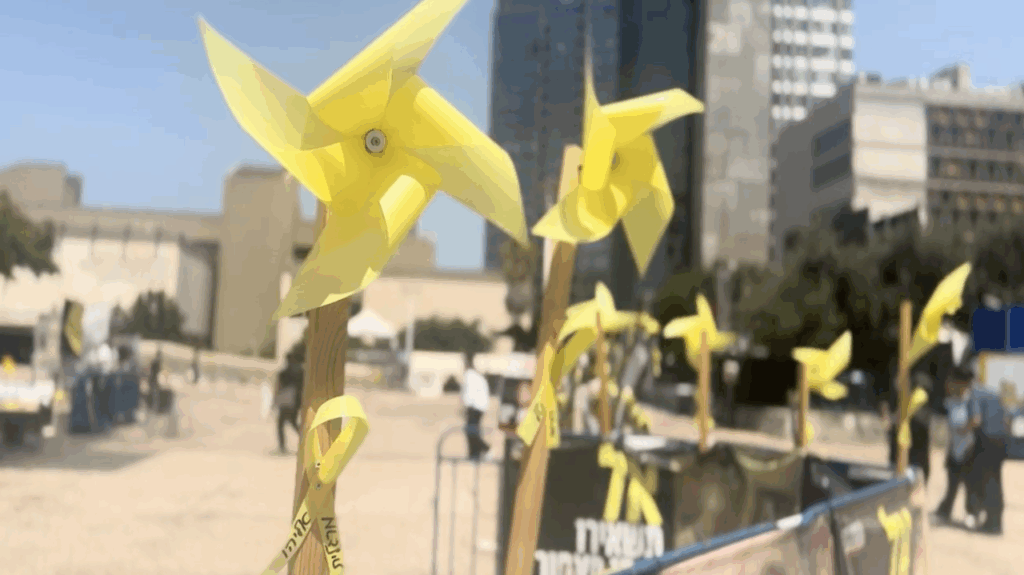
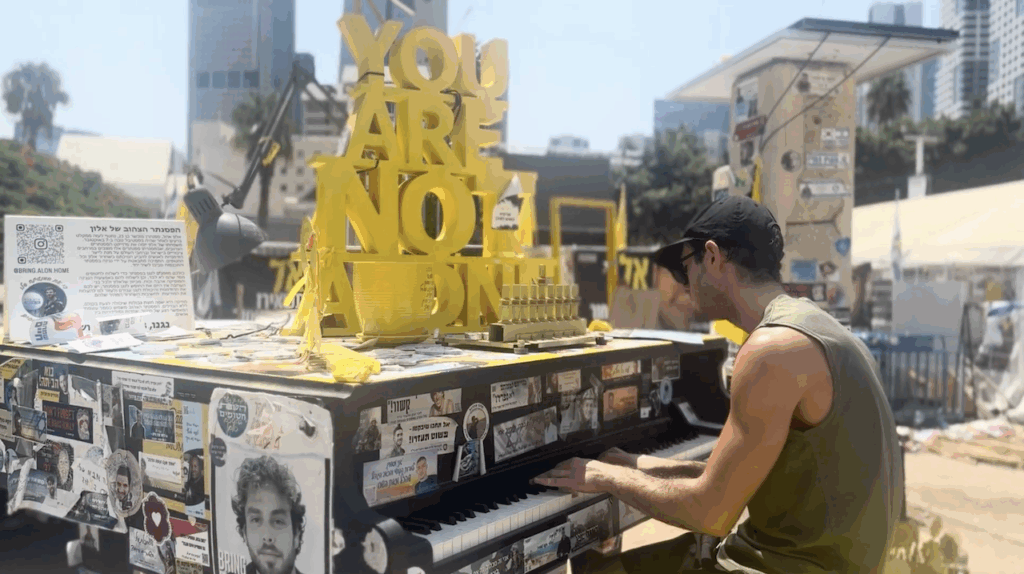
Ms. Tazazo has made it her life’s mission to go around the world and make people realize how Israel has suffered so much, when the monstrous terrorist group killed, raped and kidnapped Israelis and other nationals in Israel.
“I’m going with delegations around the world. I’m trying to talk with pro-Palestine students. Some of them want to listen, some of them don’t want to listen. So I get it that the world doesn’t really understand what Israel is meaning. They really believe we have apartheid here, that because I am black, I don’t have the same rights. It’s like I feel like a regular Israeli. I never felt different. Color? Some may be racist, we have these (kinds of people) in every place. But the country is not like that. Why does everybody lie?
“One of the policemen that work here is a Muslim. He is very important. During the attack, he fought against the terrorists and saved 20 people, by going back and forth (from the crime scene) 20 times. He is a hero.
“We want to kill the Palestines because they are Palestines? This is a lie of the Hamas, but everybody’s buying it. So we have to fight this, before it blows up any further,” Ms. Tazazo says, seemingly exhausted from retelling her ordeal.
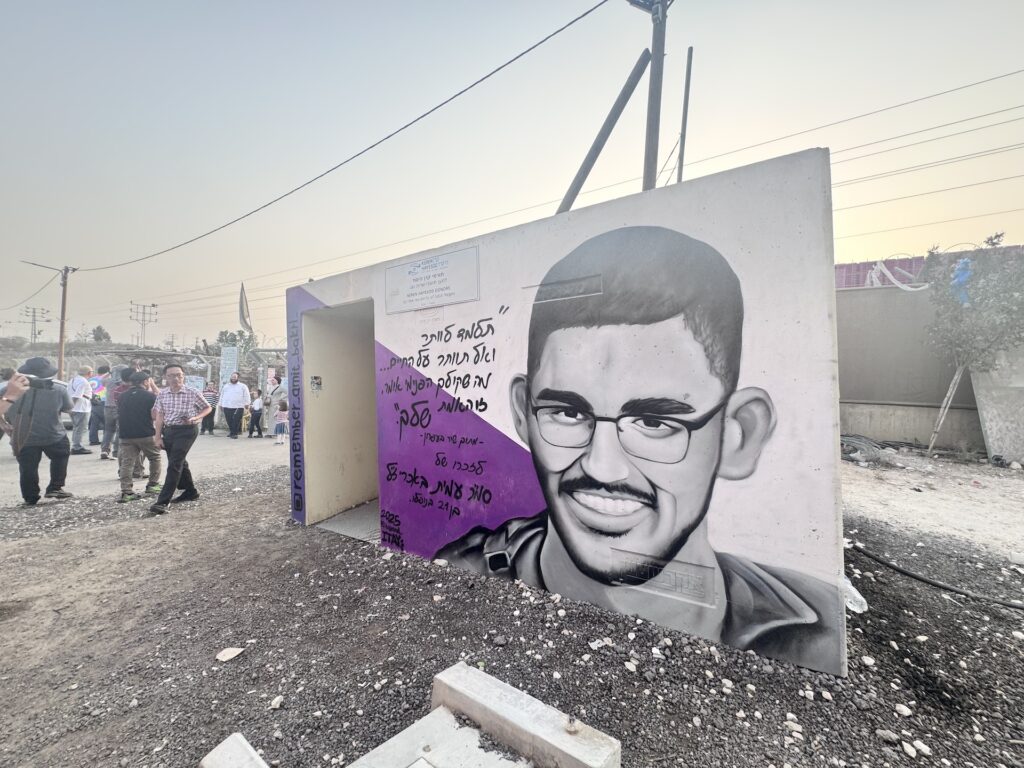
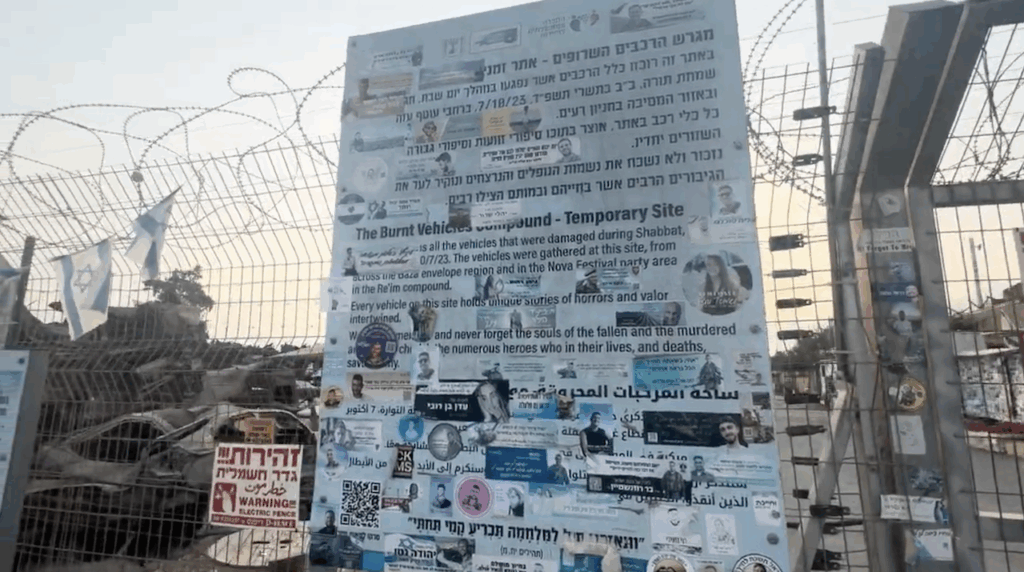


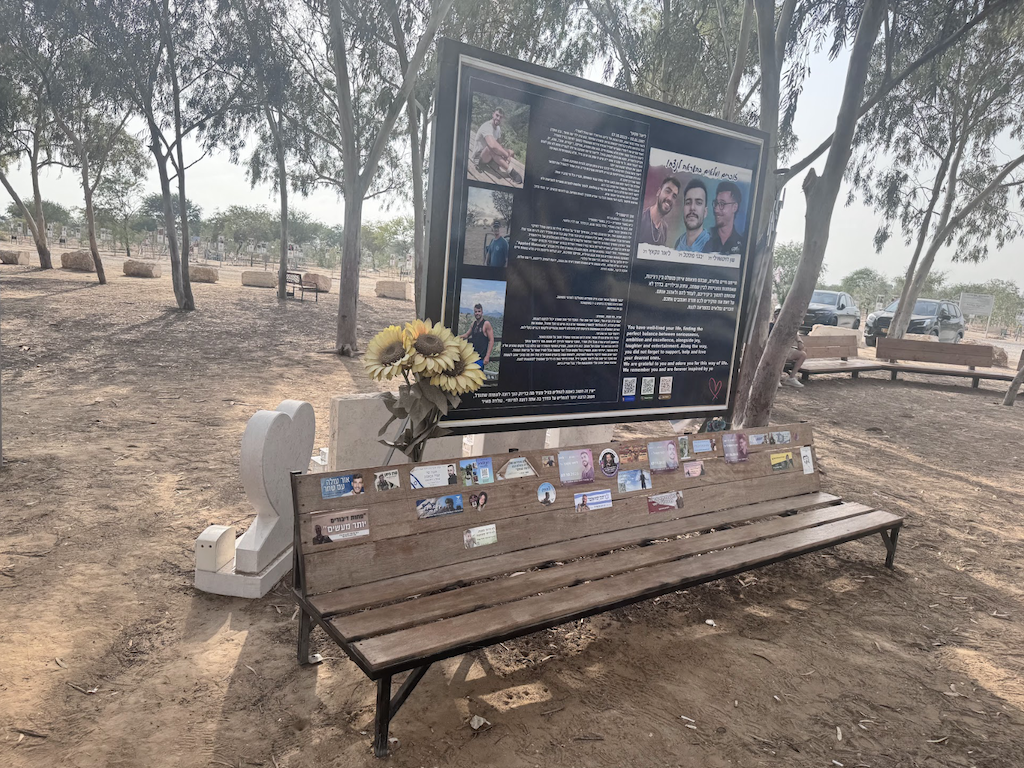
The Philippine media delegation thereafter went around Reim Memorial, the former Nova Music Festival site, and saw how serene the place is, a stark contrast to how dastardly it was desecrated by the Hamas terrorists just almost two years ago.
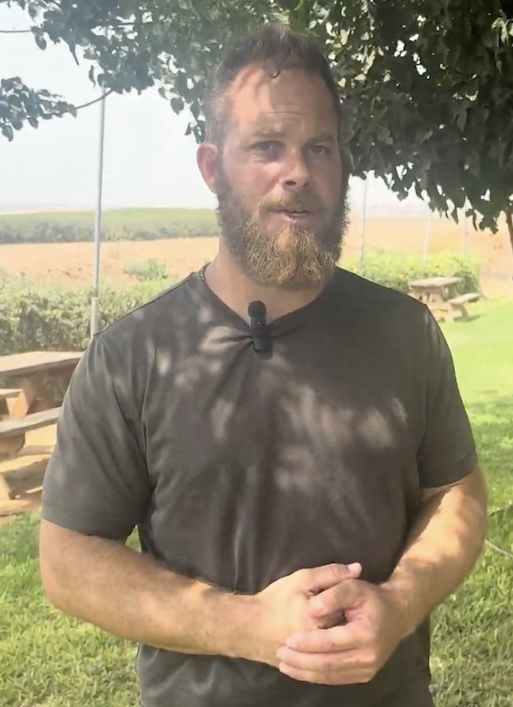
For restaurant and business owner Dvir Dubkin, the October 7 attack was indeed a sad incident.
Five words he said during this author’s solo interview almost knocked her off her feet. Words that struck hard.
“We just want to live,” Mr. Dubkin says, without mincing words.
“The business now is starting to grow, but before, because of the war, tourists did not come to Israel. I can understand. This is my business, but also, I serve in the military, like most of the Israelis. So, I fight with my friends and I cannot do my business at the same time. When we fight, we fight. So the business is closed. So, we lose our business and our future which is the business, but we protect our country and our family. We are all together. So we leave the money aside, we go and do what we have to do.”
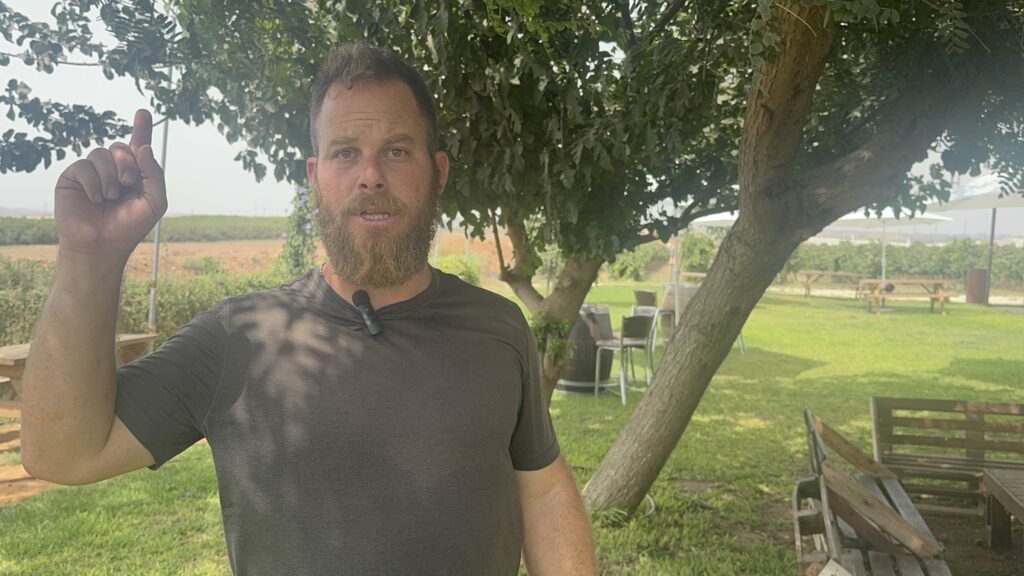
Mr. Dubkin notes this is a reflection of how much Israelis love their country, a virtue that parents teach their kids.
“We teach our kids, because this place… this grass, I put it here, with my father during the war. Because this place, I used to put my Thai workers. We had family business, fish pond, butchery, meat shop, fish shop. It was a business for around 40 years and since the 7th of October, they have been closed.
“I needed to do something new. So I’ve been displaced. But I put everything in order. Now, I do here weddings, private events, tourists who come and see and they listen to our stories on what happened on October 7th; what is going on and I just want to say this. It’s very sad what happened. And still, we have our friends, our brothers and sisters, still hostages. We need to get them out,” he says emphatically.
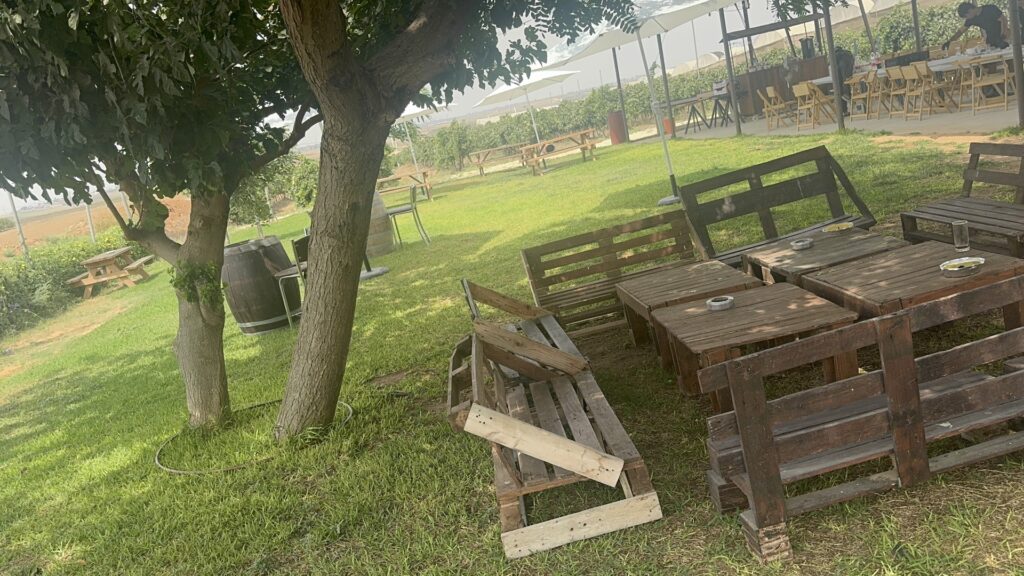
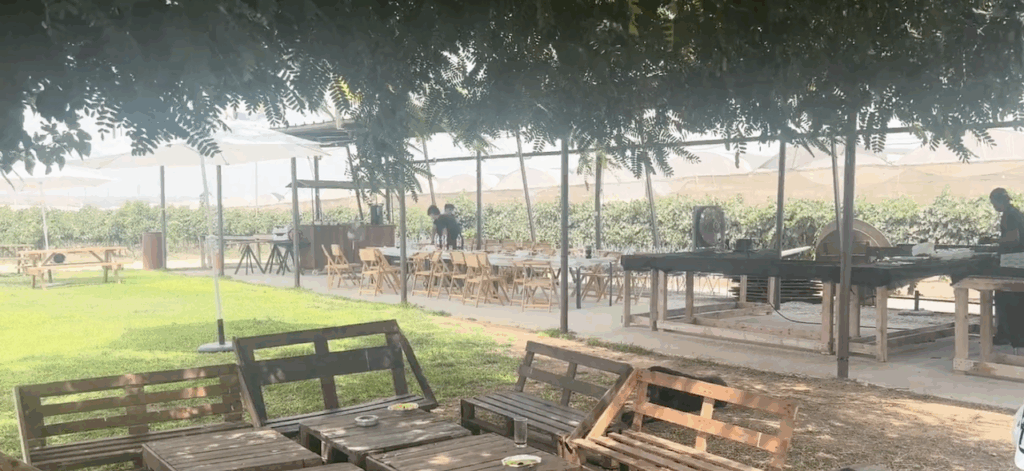
Despite ongoing challenges and heartaches, Mr. Dubkin remains optimistic about Israel’s future.
“We believe in our future. We want to live. We want peace. We believe in our country and our people. We are very strong in our hearts and in our minds. We just want to live. Together, you know Israel is not only Jewish. We have Muslims, we have Christians and we can live together.

“I believe, we get out of this trouble and we’ll have a good life. Now it’s good. We have better life, very strong. Thank you (for) the group that come here, you know it warms our hearts. I feel very happy that I see this place getting alive. People can enjoy a little bit in this place and after, to go around, to hear about the stories of what happened to us here. It’s very sad, but we have hope,” he adds, citing the fact that he used to make wine in this place, before the war.

“I used to make wine here for the wine industry. But everything changed since the war started. I also serve in the military, so I cannot be here all the time,” he notes, with his yard getting full of grapes, hopefully for a rebound of his wine-making pursuit.

In the meantime, while families contend with the reality of sending their loved ones to the war zone, most mothers this author met intimated that they are getting tired of the war. Admittedly, they fear for the safety of their sons and daughters who serve in the military at this time.
It’s a reality that little kids will have to grow up and willingly serve, to protect their country, their families and their countrymen.
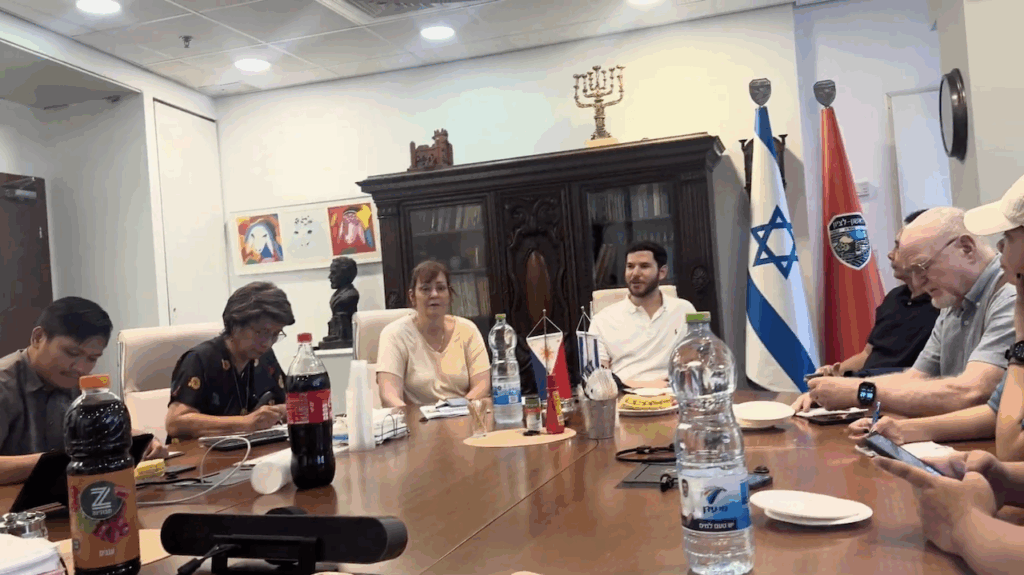
For Nir Dinar, chief of staff of Rishon Lezion’s mayor, kids growing in a country where threats to lives are felt almost everyday, are shaped as they journey through adulthood.

“Most Israelis grew up in this unusual life. When I was six or seven years old, I grew up as a child here in Rishon Lezion in a reality where my mom did not want me to go (ride) a bus. Because at that time, there were suicide terrorists going up buses in Israel. And then a few years later, there were three or four wars with Hamas who threw rockets. In 2014, I joined the military and there was war with Hamas, so I am 30 years old and I think I experienced six or seven wars in my lifetime, which I think most people had in their lifetime, if they went through war at all.
“So we grew up with this feeling that there is uncertainty, danger and something can go wrong. And so I think this shapes you as a person, it shapes your personality and the feeling and the understanding that there is some kind of danger and there’s someone who wants to kill you who’s not so far away, just because you’re a Jewish person living in Israel.
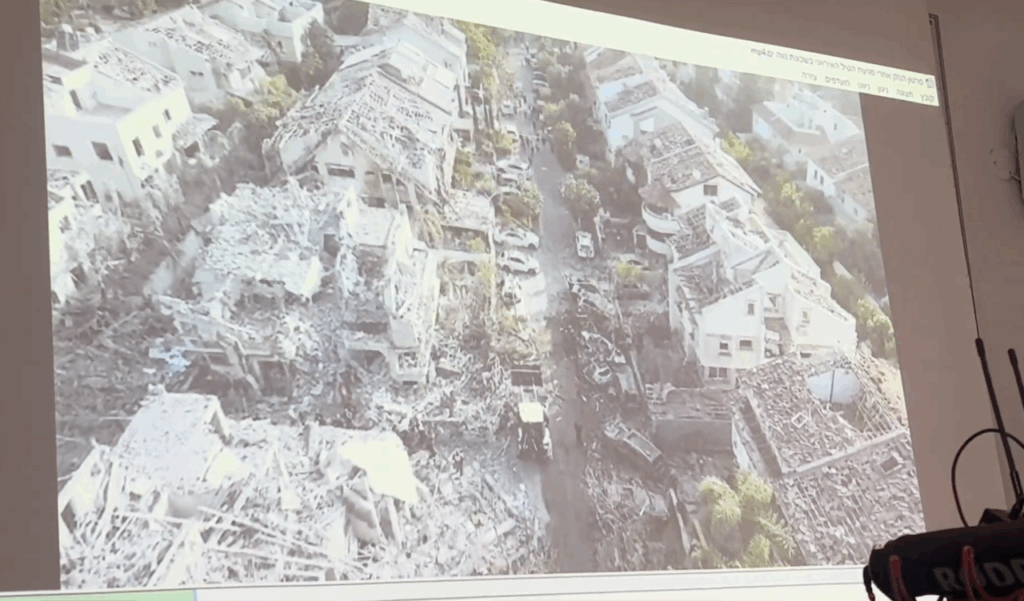
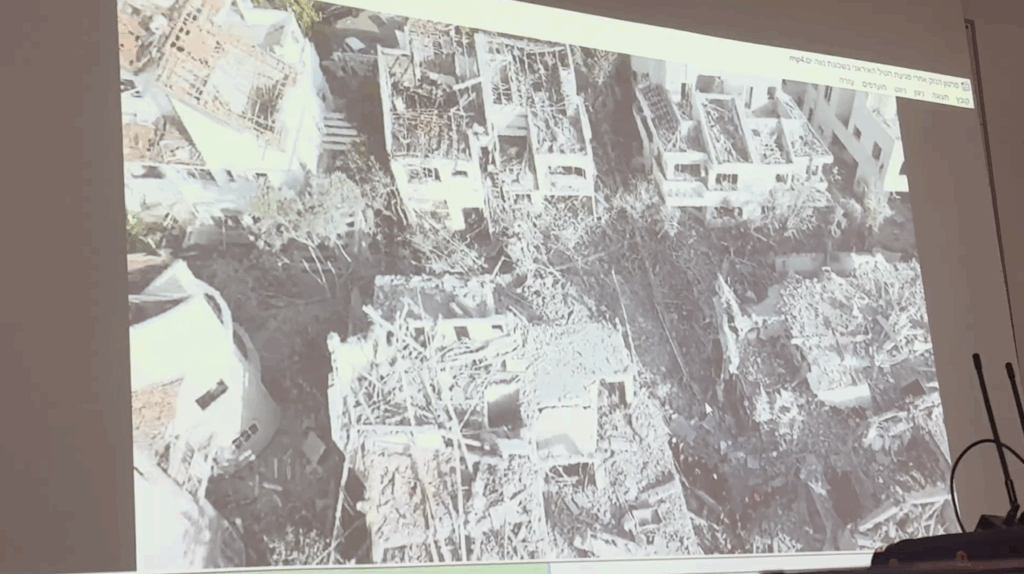
“I do think this last war with Iran is a bit different, because we have seen huge damage,” he says as he led the journalists to a video on the ‘Rising Lion Operation’ in June 2025.
Rishon Lezion was the most badly damaged area at that time, with two casualties and several people injured.
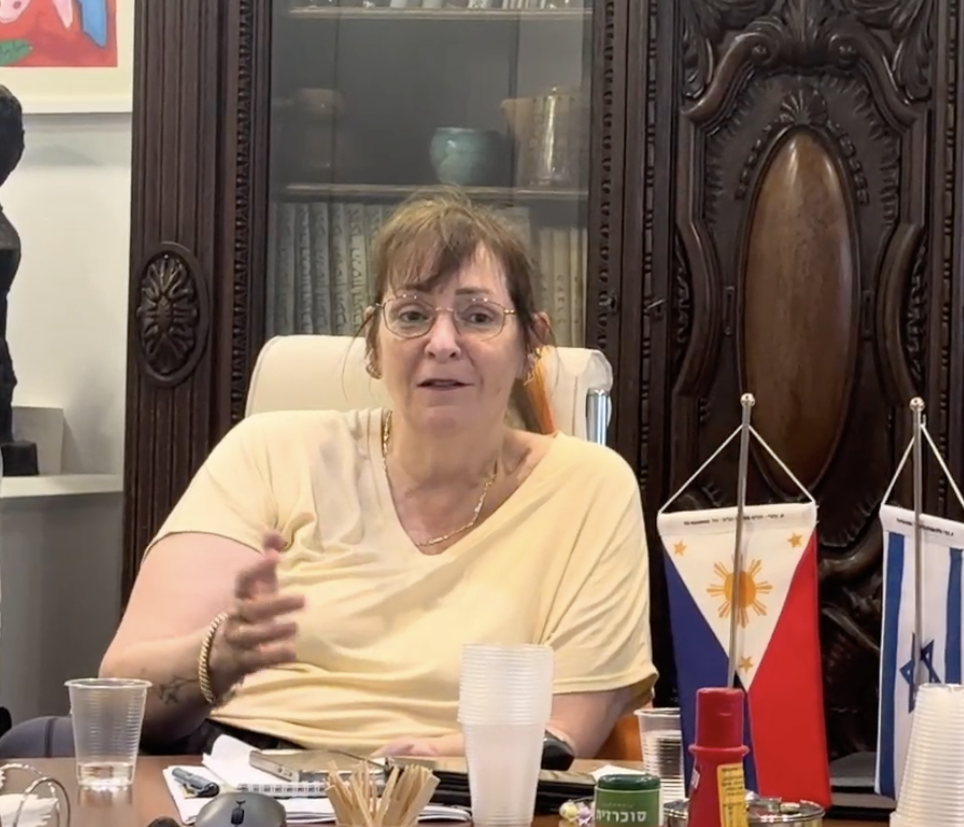
Ms. Anette Ben Shahar, the city’s foreign affairs director, says it’s life as usual in the city, except when the government sends out warning that Israelis should take precautions.
On the other hand, Ms. Ben Shahar says it’s a different story on the foreign relations front.


“Lots of countries have stopped delegations coming in. I’m talking about formal delegations because of the insurance. They say that they do not want to cover the insurance in case, God forbid, something happens to them. It’s not because the friendship has stopped.


“The friendship has even become much stronger between all our sister cities. We have letters of condolences when we lose our civilians, when we got bombarded here and we lost lives. The letters came pouring in, and they’re saying that we must be strong. But the problem is to hold a delegation, I think this is the first big delegation that we’ve had in a while, and I’m honored you came here, thank you very much. It’s not taken for granted. But as a city and my colleagues around, it’s very difficult for sister cities to have a formal delegation to come in because of the status that we are in now, because of the war.
“As you see, now that you’re here, you feel it’s different from what you hear from overseas. But we are still in a state of war. We do have problems.”
Mr. Dinar couldn’t agree more.
“I think there’s a huge problem of uncertainty in the air. Yes now, you came in relatively quiet days.
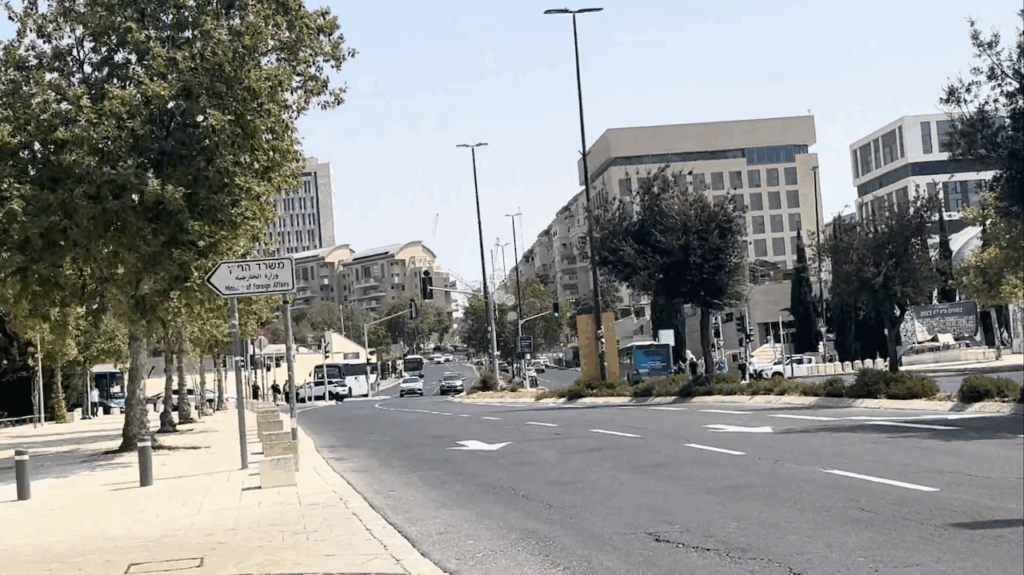
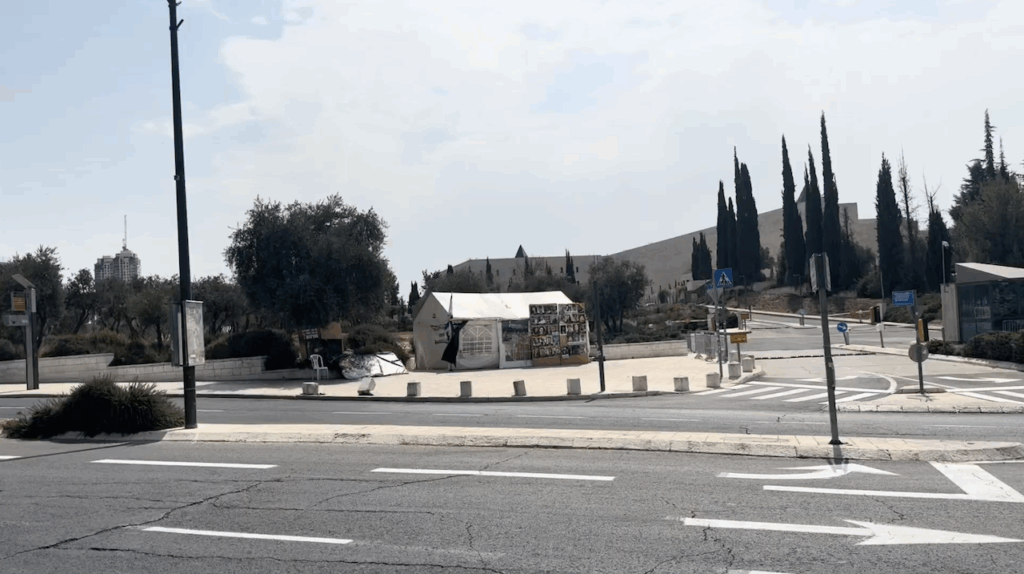
“But if you’re here two months ago, there were no people in the streets, people didn’t go to work, because they need to stay in shelters, there were no schools as parents had to stay with their children. I think the reality of war and uncertainty has been with Israel in the last two years. It’s a very challenging situation. So at the moment when we walk outside, you feel that it’s a normal place, a normal city. Nothing happens.
“But tomorrow morning, you can suddenly hear sirens and there’s a new war coming and people say there is a rocket and then you ask where from. It can be from Yemen, can be from Lebanon, can be from Iran, Iraq, Syria. It can be from everywhere.
“So I think it’s a crazy time we’re experiencing at the moment and this is why we always pray (we can) go back to (the) usual, to be just like a normal country, normal people who can plan a few days in advance. That’s the way it is. It may sound not so important, relative to other people’s problems. But if you want to plan a trip (for instance) to Italy in a month. Not necessarily that the airport is open. It’s a question people ask and it’s not a normal situation,” Mr. Dinar says.
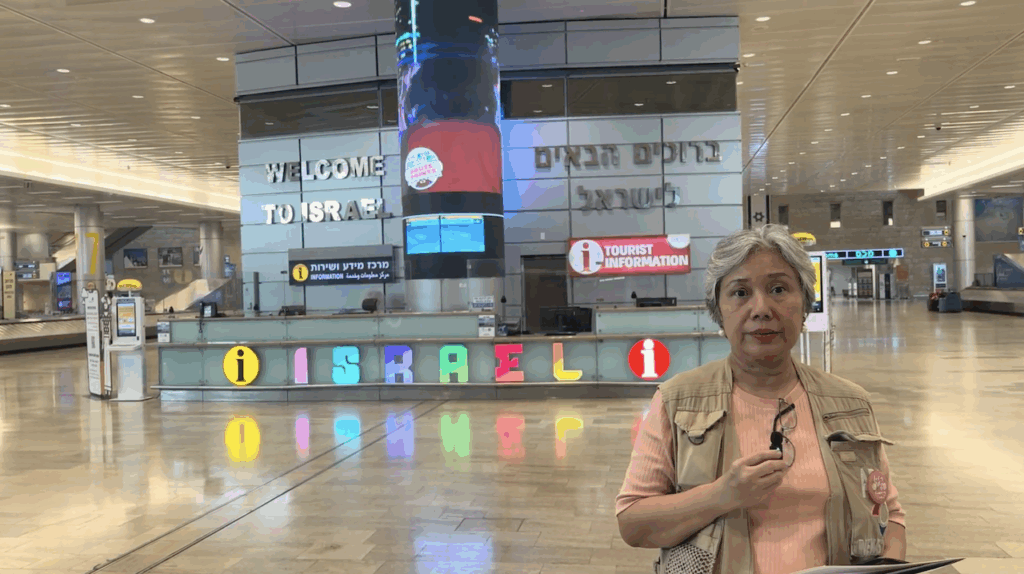
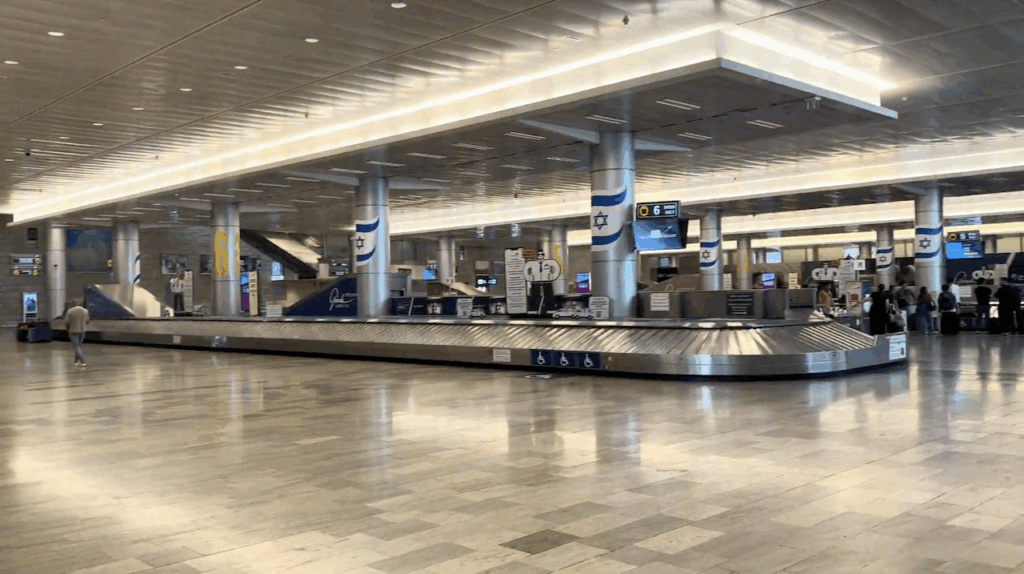
In response to a journalist’s question about the IDF’s difference from their enemies, he says Israel’s edge over their enemies is the accuracy of the weapons its military uses.

“They’re shooting ballistic missiles from thousands of kilometers away and, you know, from that distance, even a small mistake in how you aim causes you to miss your target. If they wanted to hit residential areas, they did it and well done, this is the cost to just Israeli civilians who had nothing to do (with the war), got hit and got killed. If they’re aiming to get to the military bases, they’re not doing a good job. Israel is spending billions of dollars in very accurate weapons. We use airplanes and the best pilots in the world in order to hit (the target) as accurately as possible,” he adds.
Moreover, he points out that the Israeli military does not target journalists nor civilians, as reported in various media sites or in social media.
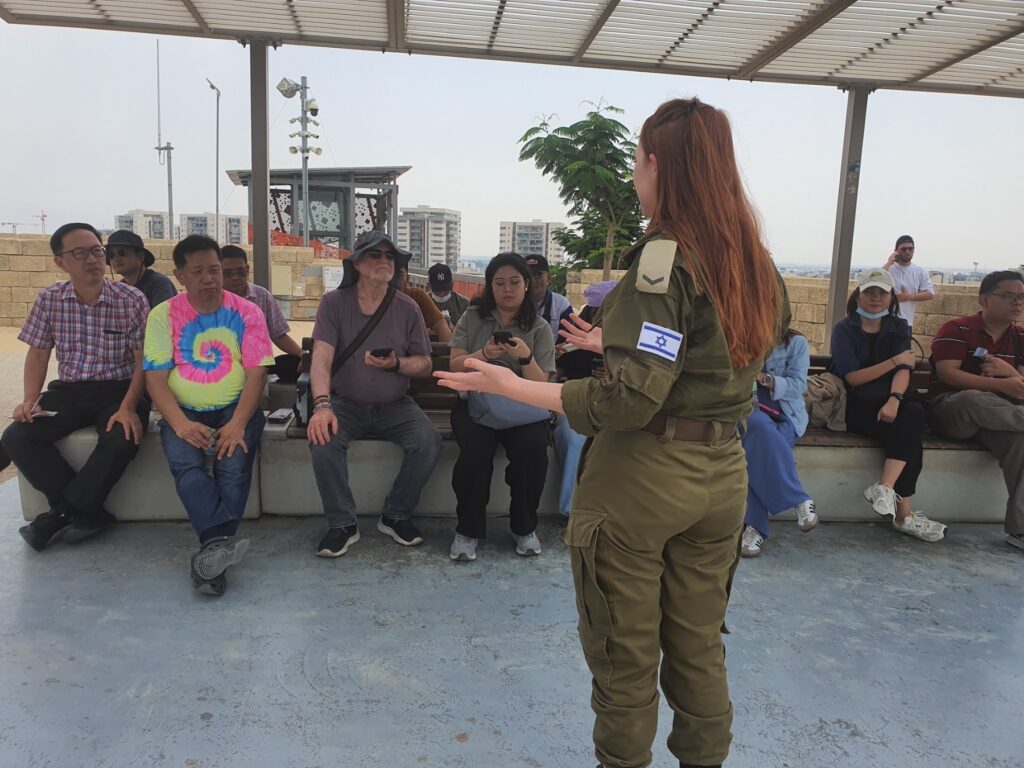
“The IDF is not targeting journalists. We do not do that. Israel is a democracy. We find the freedom of the press an important value. As a spokesman for the military, I myself took hundreds of journalists into Gaza, escorted them. We did everything we can to keep them safe. I can assure you that the IDF is not targeting journalists or civilians if there’s no terrorist or a very accurate intelligence in the area,” he assures.
As more countries seem to favor the establishment of a government in Gaza through some United Nations organizations, the moral clarity Israel is seeking appears to be a question that will linger on in the next generations to come.
It is, however hoped this viva voce will not curtail the basic right of Israelis to live freely and decently in their own promised land.
